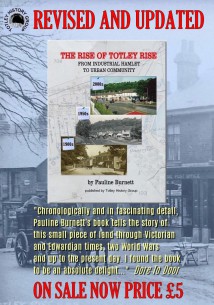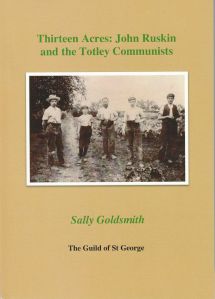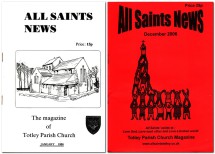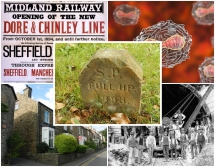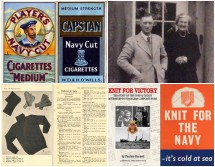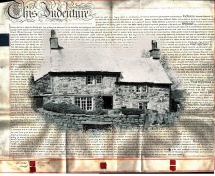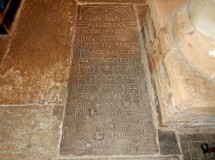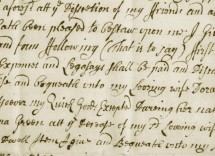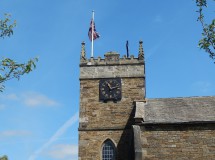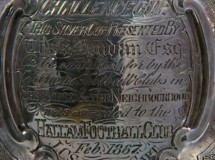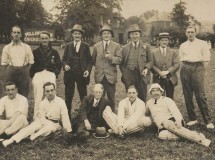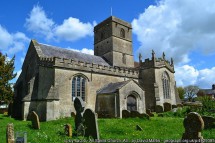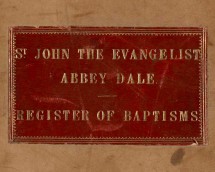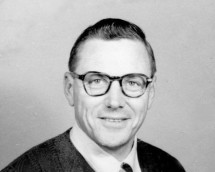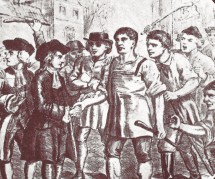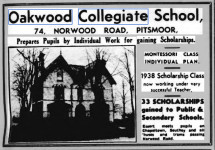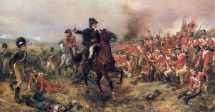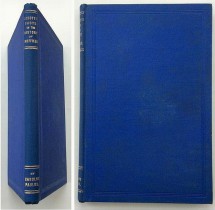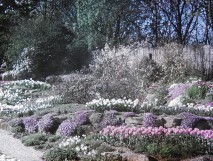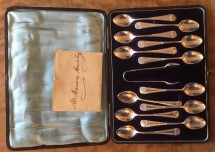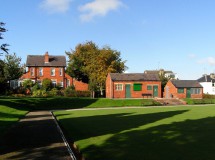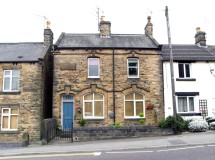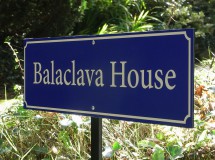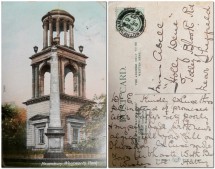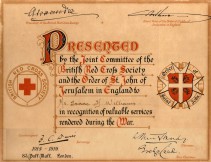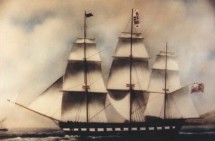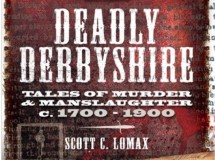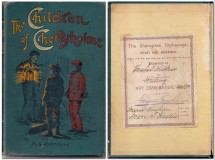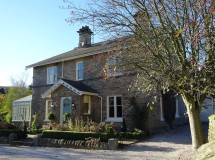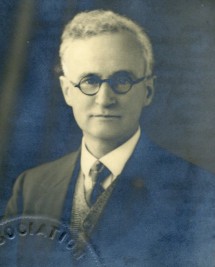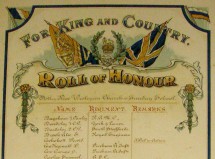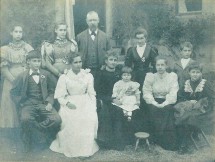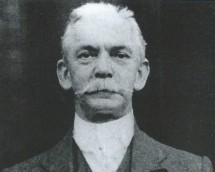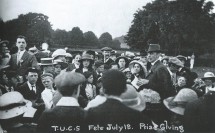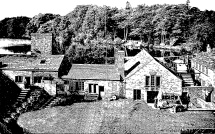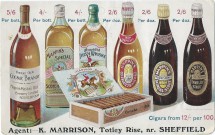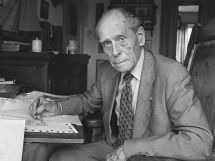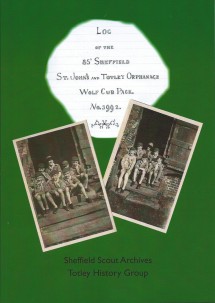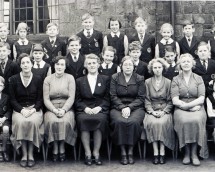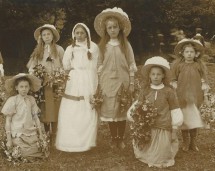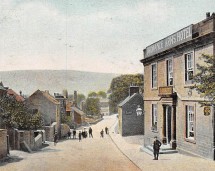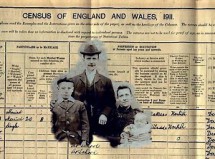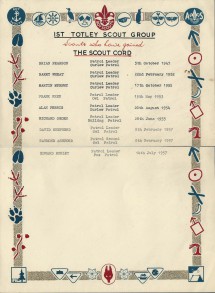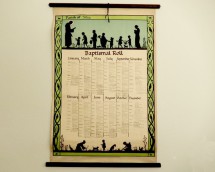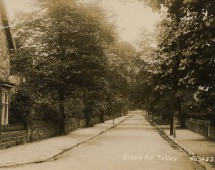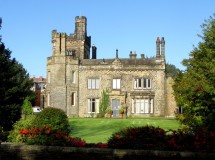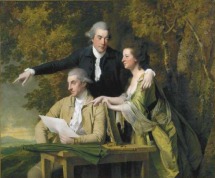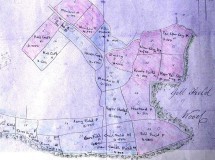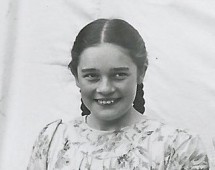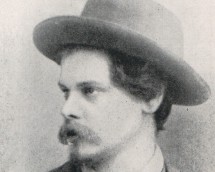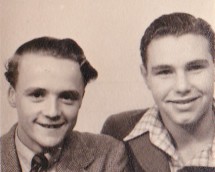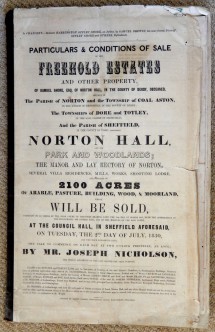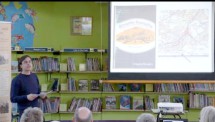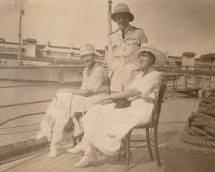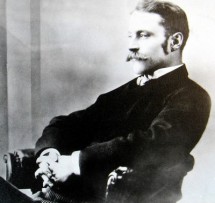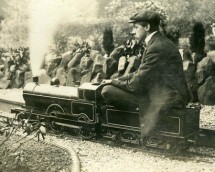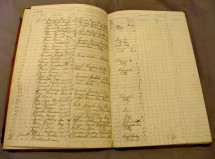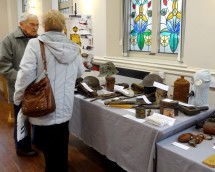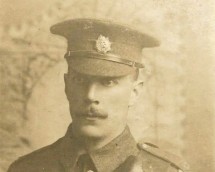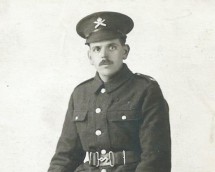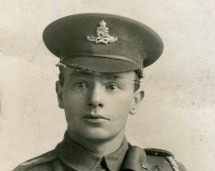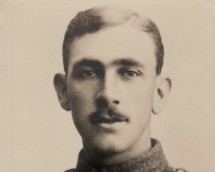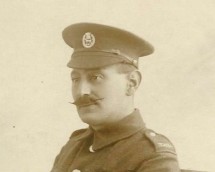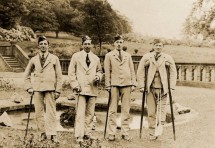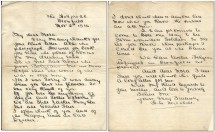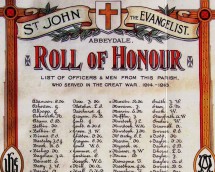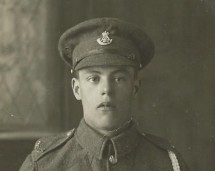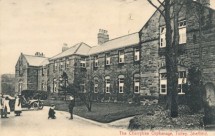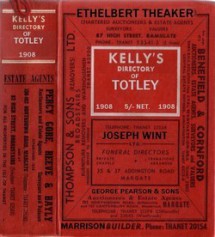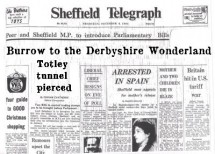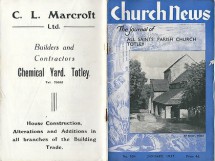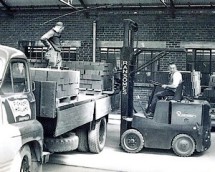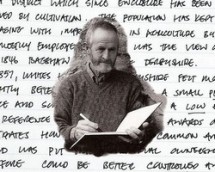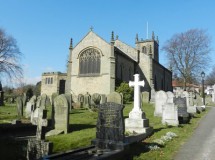Newspaper Archive: 1890s
Thursday 2nd January 1890 Sheffield Evening Telegraph (page 3)
Alarming Accident at Totley
Three Labourers Injured. This Day.
An alarming accident occurred early this morning at the No. 1 shaft, which has been sunk at Totley Rise in connection with the Dore and Chinley Railway scheme. A number
of men are employed by Mr. G. Young, the contractor under the Midland Company, in tunnelling. The depth of the shaft is 126 feet, and the men are usually lowered in a skip by means of an engine
situated a few yards away. This morning at six o'clock four labourers, names respectively Alfred Holmes, of Totley Bents; Alfred Parson, of Twenty Well, Bradway; William Humphreys, of Totley Bents;
and John Taylor, Dore, took their places on the skip preparatory to making the descent. Ordinarily the skip, which acts the part of the cage in a colliery, is raised about a yard before it is
lowered. This morning, however, owing to some cause which has not been ascertained, the engine was not reversed, and the skip, with its contents, was pulled to the head-gear. Holmes, recognising his
danger, sprang to the woodwork near the pulley wheel, and with assistance managed to reach the ground unhurt. His companions were not so fortunate. Parson's head was crushed in a serious manner, and
his face was badly gashed; Taylor sustained severe contusions about the thighs; and Humphrey's ribs were badly bruised. As soon as the nature of the accident was discovered the skip was lowered. Dr.
Thorne, of Totley, attended the injured men, who were conveyed to their homes. Taking into consideration the hazardous nature of the occupation, the accidents which have occurred in this shaft have
been comparatively trifling in their character with this exception. In connection with the Dore and Chinley undertaking, there has been a slight cessation of work during the past few days on account
of the Christmas holidays. The men have now resumed work, and tunneling operations are being carried on as expeditiously as possible.
Saturday 4th January 1890 Derbyshire Times (page 6)
A Child Found Dead in bed
Mr. C. B. Busby coroner for the Hundred of Scarsdale, held an inquest at Mr. Thomas Bowns Cross Scythes Hotel Totley touching the death of Tom Charles Hopkinson age 3
months, son of William Hopkinson railway labourer of Totley. Betsy Hopkinson mother of the deceased said about 1 o'clock on Sunday morning she and her husband and deceased went to bed. The child was
then as usual, she woke up about 5 o'clock and found the child dead beside her. The jury returned a verdict of accidentally suffocated while in bed with its father and mother.
Monday 6th January 1890 Sheffield Independent
A Naked Lunatic on the Moors
As the Sheffield Harriers were hunting, on Friday, in the neighbourhood of Stoke lane, near Grindleford Bridge, Thomas Wainwright who lives in Hermitage street, and is connected with the hunt, saw a
naked man sitting undor a wall. On going up to him he found that he was nearly dead with cold, and that his body was almost blue. He called several men to come to his assistance, and the unfortunate
man was vigorously rubbed. Stimulants were also administered, and eventually he revived. It was then found that he was insane, as in answer to questions which were put to him he stated that his wife
had bewitched him, and had caused him to leave home and wander about the moors. His clothing was found by his side, neatly wrapped up. After being dressed he was taken to the Fox House Inn, where he
was supplied with refreshments. He then said his name was Edward Vaughan, and that he was an engine tenter employed in the tunnel which is being made near Totley, on the Dore and Chinley Railway.
Wainwright took Vaughan to the Highfield Police Station, and gave him into the care of Inspector Bradbury. On Saturday Police-sergeant Platts took him to the Central Police Station, where he was seen
by Mr. J. H. Barber, J.P., and afterwards was taken to the Workhouse. Since being employed on the new railway, Vaughan has lived at Totley with his wife and three children.
Thursday 9th January 1890 Derby Daily Telegraph (page 4)
A navvy hailing from somewhere near Hathersage last Friday was charged at the Town Hall with poaching, he admitted the offence but convinced a strong feeling of pugnacity towards the informant and created a roar of laughter by asking permission from the Bench to take his coat off and give him a good thumping there and then. The magistrate could not see their way to grant this very reasonable request, where upon he informed them that there was the mode of procedure on any civilised country. Derbyshire has evidently much to learn from a navvy's point of view.
Saturday 11th January 1890 Sheffield Daily Telegraph
Sudden Death at Totley Rise
Yesterday morning a man named Henry Booker age 42, miner, of Totley Rise, died suddenly. The deceased had been ailing a considerable time, but had been out the day
previous, and was to have commenced work yesterday morning. He leaves a widow and five children.
Wednesday 15th January 1890 Derbyshire Times and Chesterfield Herald (page 3)
Accident.
On Saturday a chapter of accidents occurred in the tunnel of the Dore & Chinley Railway Totley, the first case happened to a man know by the name of Harry Sloper who
had his head cut and his shoulder injured by a piece of wood falling upon him. The second accident occurred to a man in the crane shaft near the tunnel mouth, a piece of bind fell upon his head and
cut it badly. A third accident occurred in the afternoon and was of a far more serious nature a large piece of bind fell some eight or ten feet struck a man know as Little Punch upon the head cutting
his head in a dreadfull manner. On Wednesday night a man named Williams was working on No. 3 shaft when a large piece of wood fell down and cut two of his toes off.
Damage to a Highway by a Traction Engine.
Mr. Geo. Hodges brick manufacturer Burton-on-Trent was summoned under the provision of the Highways and Locomotive Amendment Act with damaging a certain highway to the amount of £30 by excessive
weight passing along the same, and extraordinary traffic thereon, to wit a locomotive engine drawing a waggon with bricks at Totley. Mr. A. Muir Wilson Sheffield appeared for the overseers of
highways of the township of Totley, Ed. Dalton deposed that he was surveyor of the roads in the township of Totley. The defendant carried on the business of a brick manufacturer at Totley under the
title of Totley Brick Co. and he employed a traction engine. The engine travelled 1,100 yards on the highway. He had estimated the damage at £37 8s 8d. He had not claimed for the full amount of
damage, owing to having been instructed to for £30 only.
Saturday 18th January 1890 Derbyshire Courier (page 2)
A Chapter of Accidents in the Tunnel at Totley
On Saturday a chapter of accidents occurred in the tunnel of the Dore and Chinley Railway at Totley. The first case was that of a man named Harry Sloper. Shortly after
six o'clock in the morning he was at work in the tunnel of number 1 shaft, when a large piece of wood used as a prop fell and struck him upon the head, cutting the scalp a considerable length, and
also injuring him upon the shoulder. A medical man was called in and the wound on the scalp stitched up. A second accident occurred to a miner in the Crane Shaft, near the tunnel mouth, about two
o'clock in the afternoon, when a piece of bind fell and struck him upon the head. He received a nasty cut, but nothing of a serious nature. After putting a handkerchief round his head he was able to
walk to his home. A third accident befell a man known by the name of "Little Punch," a Norfolk man who was working in the tunnel at No. 3 Shaft. It appears that a scaffold had been erected near the
head of the tunnel, and several shots had been fired off. Upon the men going to resume work a large piece of bind which had been blown upon the scaffold by the shots fell down some eight or ten feet,
and caught "Punch" upon his head, cutting a gash from which blood flowed freely. He was taken to his home, where he grew week from the loss of blood, and became unconscious. A medical man was sent
for, and upon examination he found him to be suffering from a fractured skull, and gave but little hopes of his recovery.
Thursday 23rd January 1890 Bath Chronicle and Weekly Gazette (page 2)
A burglar who was disturbed at Mr. Slater's house, Wood Lea, Totley Rise, near Sheffield on Friday morning fired an ineffectual shot at Mr. Slater and escaped after
seriously injuring a constable.
Tuesday 28th January 1890 Sheffield Daily Telegraph. (page 7)
Breaching of Pub Health Act.
Robert Crawshaw, Edmund Sanderson & Joseph Bright 3 Sheffield collectors were summoned along with Thomas Kelner Totley Rise and Tedbar Tinker, Bradway for having a drink on their premises at
Totley Rise and in such a state as to be a nuisance and injurious to health, Mr. Muir Wilson Solicitor Sheffield prosecuted and was supported by Mr. G, Edwards inspector of nuisance and M.J.C. Hall
medical inspector of health. The bench made an order on all the defendants that the nuisance be aborted within 1 month
Tuesday 11th February, 1890 Sheffield Daily Telegraph. (page 4)
To- morrow (Wednesday) at eleven - Rose Bank, Totley Brook, Totley.
Mr. George Talbot is favoured with instructions to sell by Auction, as above.
The Superior Household Furniture Planoforte etc.
As fully advertised in last Saturdays papers. Trains leave Midland Station at 10.22am Buses meet all trains.
Offices 18 and 20 St. James Street, Sheffield
Thursday 13 February 1890 Sheffield Daily Telegraph (page 4)
Sales by Mr. H. Ball
Under Distraint For Rent
This day at two, at the wooden erections situate in Glover Road, Totley (At the back of Totley Gardens). Mr. H. Ball will sell by Auction about 30 Single and Double Iron Bedsteads, Beds, Mattresses,
Bedding, 24 Wooden Chairs, Forms, Tables, and Trestles, large American Stove and Piping, Pots, Pans, Tinware, Gas Fittings, Lamps, &c., &c.
Saturday 15th February 1890 Derbyshire Times and Chesterfield Herald (page 8)
A Policeman Lost on Moors.
Police constable Cameron who has taken Constable Burtford's place at Totley was making his way to Fox House a few nights ago to meet another officer when through being
unacquainted with the district he got off the road and was wandering the moors for several hours. He eventually found his way to Fox House.
Thursday 3 April 1890 Sheffield Evening Telegraph (page 3)
The Action Against the Sheffield Corporation.
Decision Not To Appeal.
At the meeting of the Borough Hospital Committee yesterday. Mr. G. F. Lockwood in the chair, the Town Clerk presented the following report:-"I have to report that the
action brough against the Corporation by the Sheffield Victoria Gardens Co. (Limited), claiming £400 either as rent or damages was tried before the Leeds Assizes on the 1st inst., before Judge Day.
The Judge, after hearing the opening statement of plaintiff's counsel decided that the Corporation ought to have given up possession of the premises at Totley to the Garden's Company on 1st March
1888, disinfected and restored, and counsel for the Corporation, Mr Forbes, Q.C., and Mr. barker, were quite unable to induce him to change his opinion. The following order was therefore agreed
to:-"Judgment for the plaintiffs for £50 and costs if the Court of Appeal concur with the ruling of Mr. Justice Day as to the terms of the agreement. If his construction be held to be wrong the
question as to whether or not the Corporation took an unreasonable time is disinfecting and restoring the premises is to be referred to some gentleman in Sheffield, to be agreed upon by the parties.
If he should find that the time occupied was unreasonable the judgment for £50 and costs is to stand in favour of the plaintiff, if he should find otherwise, judgment is to be entered for the
Corporation with costs. Both Mr. Forbes and Mr. Barker strongly advise an appeal from the decision of the judge, whose construction of the agreement they think is wrong. It will be, of course, for
you to decide whether you will recommend the Corporation to appeal. I doubt whether the question in dispute is of sufficient calue to make it worth while to incur further cost." The committee adopted
the Town Clerk's report, and resolved "That the Council be recommended not to appeal against the decision."
Thursday 3rd April 1890 The Sheffield and Rotherham Independent
Men and Things
There may shortly be a necessity for vindicating the right of the public to a footpath at Dore. This time it is not a landlord who is at fault but - a railway contractor.
About a hundred yards from the Dore railway station, up Bradway lane there was a stile at the end of a public footpath which crossed a portion of Mr. Ebenezer Hall's land known as
the Spoil Bank. The path proceeded though the little wood beyond, where there were a couple of stiles for the convenience of the public. The path continues through Mr. Tinker's brickyard, and thence
in one direction to Bradway, and in another to Holmesfield. When what is known as the south curve at Dore was commenced by Mr. Oliver, the contractor for this end of the Dore and Chinley line, the
footpath was severed. But that is not all. By his direction or that of someone in his employ, a notice was placed at each end of the footpath bearing the ominous intimation, "Trespassers will be
prosecuted." The public have had the use of the path from time immemorial, so that their being trespassers now is absurd. But that is just how public footpaths are lost. A notice like this is
observed by a law-abiding community, and in course of time the path is forgotten. Fortunately this will not be the case at Dore. The matter is being warmly taken up by a gentleman, who on the other
occasions proved a redoubtable advocate of the rights of the residents out in that pleasant suburb; and he is not likely to lack supporters. The attention of the general manager of the Midland
Railway has been called to the severance of the footpath, and the erection of the obnoxious notice boards; and he has requested an immediate report from the engineer of the new line. What may be the
nature of his report it is, of course, impossible to say. The fact that a private resident at Dore has to take this matter up shows how desirable it is that a Public Footpaths Preservation Society
should be established. I urged this some months ago; but, unfortunately, nothing came of it.
Thursday 10th April 1890 Sheffield Daily Telegraph
Wanted young man accustomed to horses, character required Apply T. Wint Totley.
Thursday 10th April 1890 Sheffield Independent (pages 4-5)
Workmen's gardens are a prominent feature in the hillside landscape out Totley way and one of the pleasantest of sights is to witness the pleasure which their cultivation affords, but it is an unfortunate circumstance that many of these amateur gardeners prefer gardening on Sunday to attending church or chapel. Mr. Burton, the navvies missionary, had a talk with one of them on the subject a Sunday or two ago and enlarged upon the wickedness of gardening on a day which should be more profitably employed. The man was an attentive listener and Mr. Burton doubtless thought he was making a convert, but in the end there came this reply. "Well mister I don't know anything about its being wrong to work in my garden on Sunday but I know I get very good crops"
Monday 28th April 1890 Sheffield Daily Telegraph (page 6)
Fatal Accident at Totley.
An accident occurred on Saturday at No. 1 shaft of the tunnel on the Dore and Chinley Railway at Totley Bents, whereby Thomas Cook, 51, lost his life. Cook, who is a
labourer, and native of Ockbrook, near Derby, was working when a heavy piece of timber struck him on the chest, killing him instantaneously. The body was removed to the Cricketers' Inn to await an
inquest.
Tuesday 29th April 1890 Sheffield Daily Telegraph (page 7)
Inquest at Totley
At the Cricketers' Inn, Totley, yesterday, and inquest was held on the body of Thomas Cook, aged 51, who lost his life on Saturday morning at the No. 1 shaft of the
tunnel on the Dore and Chinley Railway at Totley. Verdict of "Accidental death" was returned.
Friday 2nd May 1890 Sheffield Daily Telegraph (page 7)
Accident at Totley
A miner named Maltby was seriously injured in the new tunnel at Totley Bents. A large piece of rock fell from the roof, striking him on the head and cutting it
badly.
Saturday 17th May 1890 Sheffield Daily Telegraph (page 6)
Dore, Totley and Holmesfield Floral Society.
The committee of this society have decided to expand their operations during the present season. The parish of Holmesfield has been added to the area of the society operations and the classes of
exhibits have been much increased in number.
Monday 2nd June 1890 Sheffield Independent (page 5)
Shop Break in at Totley Bents.
The shop of Mr. J. Robertson, clothier, of Bristol at Totley Bents was entered by thieves on Friday night and some shirts and other things were stolen. The shop is a
temporary wooden lock up. Entrance was effected by first breaking into an empty navvies hut which is of wood. Mr. Robertson's assistant who has charge of the shop was away on holiday. The police
informed Mr. Robertson of the occurrence but it is impossible to tell what is missing until stock has been taken.
Thursday 5th June 1890 Sheffield Daily Telegraph (page 7)
Accident on the Dore & Chinley Line.
Yesterday John Parry minor had his right arm severely crushed while working on No. 2 shaft of the new tunnel at Totley bents. He was conveyed to the surgery of the Doctor for the works, who attended
to the injured limb.
Saturday June 7th 1890 Sheffield Daily Telegraph. (page 2)
Wanted labourers (used to excavation work) at new Police Station Totley.
C. Grayson builder.
Saturday 7th June 1890 Sheffield Daily Telegraph. (page 2)
Wanted brick setters and drawers, Twenty Well Brick Works Bradway, near Sheffield.
Tuesday 12th June 1890 Sheffield Daily Telegraph (page 6)
The country trips for poor children are to be resumed to-day. Mr. J. W. Lindsey and friends of the "Robin Club" begin with a contingent from Owlerton and Lower Walkley,
who will be taken to the Victoria Gardens, Totley. The drags are to be supplied by Mr. Jones, of Langsett road, and Mr. Joseph Mountain has made generous concessions for the youngsters'
benefit.
Thursday 31st July 1890 Sheffield Daily Telegraph (page 6)
If you happen to be near Half-way House any time look in at Totley Grange and see a house of Muscat grapes Mr. Earnshaw has got there. It is the finest I have ever seen,
each cluster is as regular in size as if it had been taken down, weighed, and put back again. The quality was superb, not a grape having a fault visible to the naked eye. They made a grand array last
Saturday, and probably by this time the symmetrical display may be somewhat marred, as Mr. Earnshaw was to begin getting them this week. "Totley Grange" gives its name to a variety of tomato - 131
lb. 13 oz. were gathered in three days - which is equally worthy of honourable mention as the Muscats. The gardener has reason to be proud of his produce.
Friday 8th August 1890 The Sheffield Daily Telegraph (page 7)
A man injured by a horse at Totley
William Hudson, coachman to Mr. Matthews, of Brinkburn Grange, had his collar bone broken and was otherwise severely injured while attempting to remove a decayed tooth from a horse's
mouth at Brinkburn Grange yesterday.
Saturday 9th August 1890 Sheffield Daily Telegraph (page 6)
Inquest At Totley
At the Crown Inn, Totley, yesterday, Mr, Busby, Coroner for the Hundred of Scarsdale, held an inquest on the body of William Farmer, who died from the effects of injuries
received whilst in charge of an air-compressing engine on the Dore and Chinley Railway, at Totley, on Saturday last. A verdict of "Accidental death" was returned.
Thursday 14th August 1890 Sheffield Daily Telegraph (page 6)
A Political picnic at Victoria Gardens, Totley, will possess the double advantage of being near home and yet far enough off to be out of the smoke and noise. The Central
Conservatives, inspired by that energetic spirit, Mr. G. T. Earle, are going there early next month. Who was the poetess who sang,
"Come out, 'tis now September,
The hunter's moon's begun;
And through the wheaten stubble
Is heard the frequent gun."
Mr. Earle has also got the idea of going out in September, when the air is taking its crisp autumnal tone, and people can dance and romp about without feeling too much fatigued. There is a fine hall in which to make merry and every facility for recreation. Arrangements are being made with the Midland for excursion fares, and the popular member for the Central is to be there.
Friday 15th August 1890 Bromley and District Times (page 3)
The marriage of Mr. J. Unwin Wing, of Hockenden, St. Mary Cray, to Miss Janet Ashwell Tabor, fourth daughter of the late Mr. James Ashwell Tabor, J.P.,
of Colchester is announced.
Tuesday 2nd September 1890 Sheffield Daily Telegraph (page 2)
Wanted immediately respectable girl as cook and general housemaid and nurse kept. Apply Mrs. Atkinson, Brook House, Totley
Brook near Sheffield 1916
Tuesday 2nd September 1890 Sheffield and Rotherham Independent (page 3)
The Licensing Question at Totley.
Renewed Application.
At the Eckington Brewster Sessions yesterday, the magistrates present being Mr. F. W. Bagshaw in the chair, Mr. J. F. Swallow, Mr. E. Hall, and Major Bowdon, two
applications for licenses for Totley were made. One was for a full licence for a new house contiguous to the Victoria Gardens, for which the magistrates have in previous years refused to grant a
licence, and the other was by the holder of an off licence, who applied for a beer on licence and for a full licence.
The first application was made by Mr. Joseph Binney, on behalf of Mr. Ralph Armfield, formerly of the Adelphi Hotel, Arundel street, Sheffield, who has become tenant under Mr. Joseph Mountain of the house for which the licence was asked. It was opposed by Mr. T. E. Ellison (barrister), instructed by Messrs. Dransfield and Hodgkinson, on behalf of Mr. Thomas Andrews, of Wortley, an owner of property in the neighbourhood; by Mr. H. W. Chambers, on behalf of Mr. Thomas Bownes, of the Cross Scythe Inn, Totley; and by Mr. Henry Anty, on behalf of Mr. John Gill, grocer, the other applicant.
Mr. Binney said his application had nothing to do with the gardens, as the premises although adjoining were perfectly separate and distinct. This was a house erected by Mr. Joseph Mountain which he ventured to describe as a very commodious hotel. Mr. Mountain was bound to acquiesce in the previous decisions of the Bench as to the gardens, and he placed this application entirely up in the necessity and convenience of the immediate neighbourhood. it did not include a large area of grounds, but rather less than an acre, and as to the requirements of the neighbourhood, he should put in a memorial signed by 121 persons - nearly all householders between Green oak Bar and Totley Station. There were but 149 houses in that area; he considered, therefore, the number of signatures was very large. he proposed also to call witnesses from the locality, and this being the first occasion on which the application had been made he hoped the Bench would consider it their duty to grant the licence. Alluding to the opposition, he said if the application were granted he did not believe Mr. Bownes would lose a shilling's worth of custom he deservedly obtained. Although there was room for a carriage to draw up at this house, it was not intended that it should be a house of call for omnibuses or vehicles passing. As to Mr. Wilson's opposition, looking down on opposition memorial which Mr. Wilson was going to put in, he found that the name of Mr. Ormrod, one of the overseers, was conspicuous by its absence, and he was told Mr. Ormrod did not concur in the opposition. He asked, moreover, in what way the overseers were interested. They were simply the representatives of the people, 120 of whom had signed his (Mr. Binney's) memorial, and ought not to step out of their statutory duties. The memorial which Mr. Wilson had shown him started, however, with two deliberate untruths. It said first that there were only 85 houses in the neighbourhood.
Mr. Wilson: my friend must not say it is untrue; we say it is absolutely correct.
Mr. Binney said he would call it misleading. It said that not one of the memorialists' houses were more than 1900 yards from Mr. Bownes'. he should have thought 1900
yards a long distance.
Mr Wilson: Not to go for a drink; men go for miles (Laughter.)
Mr. Binney said he had heard cases in which 1900 yards would have been considered a very great distance indeed. A further illustration of the value of such a memorial
was the second misstatement- that this licence had already been refused by the magistrates. No application for this house or of this sort had ever been made.
Mr. Wilson: it is the distinction between Tweedledum and Tweedledee. (Laughter.)
Mr. Bagshawe observed that no doubt this was incorrect.
Mr. Wilson: It is a fresh application with a wall between.
Mr. Swallow: Is it anywhere near Totley Gardens. (Laughter.)
Mr. Bagshawe: It is a fact that the premises adjoin.
Mr. Binney admitted this, and reviewed the previous applications, pointing out that no application had ever been made for a house apart from the gardens.
Mr. Bagshawe asked if there were any wall separating the house from the gardens.
Mr. Wilson: Only a fence.
Mr. Binney said the reason the wall was not built was because he advised Mr. Mountain that if the magistrates thought that either more or less ground should be taken,
the wall could be placed where it was considered most desirable.
Mr. Swallow: If you took in more you would take it from the Totley Gardens?
Mr. Binney: Yes
Mr. Swallow: then you are applying for the old Totley Gardens?
Mr. Wilson: The other was to make a large Cremorne this is to make a little one.
Mr. Binney objected to the unfair comments about large or little Cremornes. The application was or a distinct and definite area, and the object was to have reasonable space for a yard and bowling green. Mr. Binney further commenting on the opposition memorial, remarked that it verged upon the prophetic in stating that a certain proportion of the population would, after a time, arbitrarily cease - (laughter) - and it wound up with what was sometimes heard on platforms. Assuming a highly moral tone, it said that it was "undesirable, in view of the great efforts which are made for the promotion of temperance, and the prevailing opinion both in the country and in Parliament" - for they were intimately acquainted with Parliament. (Laughter.)
Mr. Wilson: We read the newspapers (renewed laughter.)
Mr. Binney (continuing): "That there are already too many temptations to intemperance." This was from their friend Mr. Bownes. (Much laughter.)
Mr. Chambers: No, no; from the overseers; don't attack me.
Mr. Wilson: The first signature is Mr. Aldred, the vicar of Dore.
Mr. Swallow: How many houses have been built since the last application - five hundred or a thousand, or what?
Mr. Binney said he was going to examine witnesses on that point.
Mr. Bagshawe: What do want an acre of land for?
Mr. Binney said he would take the licence with half an acre.
Mr. Bagshawe: But if the licence is granted can we limit or extend it?
Mr. Binney offered that if the magistrates would grant the licence on condition a wall should be built before the adjourned sitting.
Mr. Chambers: And there is nothing to prevent you knocking it down the week after.
Mr. Binney repeated that if their worships thought the application wrong solely on account of the large are of ground they were perfectly willing to curtail
it.
Mr Swallow: You had better show us that the licence is required.
Mr. Binney proceeded to refer to the opposition of Mr. Thomas Andrews, which he understood was a legal objection.
Mr. Ellison: Partly.
Mr Binney said Mr. Andrews was the vendor of this and other land to Mr. Mountain, and it was to be contended that a covenant in the title deed prohibited the issue of the licence. He contended that the covenant relied on, which he read, in no way prohibited a user of the land for a licensed house, and while they all respected the convictions of persons who thought intoxicating liquors should not be consumed in houses licensed for the purpose, the interference of a gentleman who did not take the trouble to definitely prohibit such a use of property he sold was, to say the least, unjustifiable.
Mr. Ralph Armfield, the applicant, was then called. he said he had become Mr. Mountain's tenant at £60 a year, payable quarterly. The house was quite finished and
ready for occupation as a public house.
Mr. Bagshawe inquired if there was a separate tenant for the gardens.
Mr. Binney replied that Mr. Mountain was the tenant of the gardens as well as owner, and they were managed by his son. There was no resident manager.
Mr. Armfield was examined as to the land adjoining the house, and
Mr. Bagshawe observed that in an ordinary application one never heard of land being associated with a house.
Mr. Binney observed that this was not a place where there could be any amusements except a bowling green.
Mr. Armfield said in answer to Mr. Binney that in his opinion having regard to the residents in the neighbourhood, the house might be made a fairly successful one. In
reply to Mr. Chambers, he said he was a quarterly tenant conditionally on the licence being obtained. He had no lease.
Although you have nothing to do with the Victoria Gardens there would be nothing to prevent Mr. Mountain giving you a quarter's notice and having the whole place in his
hands? - Certainly he could.
Mr. Chambers: And throwing down the fence if he liked.
Mr. Binney: That is a question of law. I should say he would be liable to be prosecuted if he did.
In further cross-examination, witness said he thought another licence was necessary in that neighbourhood. He believed five or six houses had been built since the last application.
Mr. Muir Wilson cross-examined the witness as to the number of licensed houses on the road from Sheffield. He also pointed out that Mr. J. W. Wilson, brewer, was a
signatory to the applicant's memorial, and suggested that he would not want the house as he would have his own beer.
Mr. Armfield: I don't know.
Then there is Mr. J. F. Atkinson, junior warden of the Cutlers' Company. He is not likely to require your house? - I don't know.
You think he would? - Yes I feel sure he would use it.
Mr. Wilson: Then there is Mr. Frederick Sibray. he is not a man that goes to public houses?
Mr. Binney: He has signed at all the events.
Mr. Wilson: I could get signatures for a road to the moon if I went the right way to work. (Laughter.)
Mr. Joseph Mountain was next examined. He said there were four or five new houses.
Mr. Swallow asked then was it not a waste of time to go on with this. They had to go upon the requirements of the neighbourhood.
Mr. Binney urged that this application was on a different footing to any previous application.
After some further conversation, Mr. Bagshawe said he thought while the Bench were glad to hear any fresh application, they were bound to apply the same test in each
case - the requirements of the immediate locality. Unless Mr. Binney could show any other or special ground it was hardly worth going on.
Mr. Binney said he had six witnesses, but the Bench intimated that their view of the case was not likely to be altered, and
Mr. Bagshaw stated that the Bench felt that upon the same ground on which they had refused former applications they were bound to refuse this.
Mr. Anty then applied on behalf of John Gill, grocer and off-beer licence holder, for an indoor beer licence. the application for a full licence he withdrew. He contended that for the accommodation of the working classes in Totley such a house was needed, and it was better they should have a place into which they could go and sit down and rest than that they should send for beer and sit in rows upon a wall to drink it. (Laughter.)
Mr. Bagshaw said they knew there was a good many navvies in the district now, but they could not grant a temporary licence, and he believed it would be in the
applicant's interest that this licence should be refused, for he had now the Post Office, which he would lose, and beerhouse, instead of resting places, were apt sometimes to become restless places.
(Laughter.)
The application was refused.
Thursday 4th September 1890 Sheffield Daily Telegraph (page 2)
To be Let, the New Queen's Temperence Hotel, at Totley, fitted up in a most superior manner.-Apply Joseph Mountain, Totley
Thursday 11th September 1890 Sheffield Daily Telegraph (page 2)
Country House Moor View Totley six Rooms entirely to itself: low rent -
Apply Post Office Totley
Saturday 20th September 1890 Yorkshire Post and Leeds Intelligencer (page 9)
To Be Let or Sold - The Victoria Gardens, Totley, near Sheffield. The Pavilion is one of the largest in the provinces; also new hotel adjoining, which will be sure to be
licensed; stables and every convenience; 10 acres of ground, freehold - Apply Proprietor, Gardens, Totley.
Tuesday 30 September 1890 Sheffield Evening Telegraph (page 4)
Lady Parachutist at Totley Gardens: Unable to Ascend
Miss Maude Brooks, of Liverpool, who successfully made a parachute descent at Totley gardens a fortnight ago, was announced to go though a similar performance yesterday,
but to the great disappointment of the large number of people who attended, she was unable to accomplish the task by reason of a high wind, which made it altogether impossible to keep the balloon
under control when inflated. Lieut. Lempriere, of Birmingham, who has been an aeronaut for 12 years, during which time he has made several descents by means of a parachute, was in charge of the
arrangements. The balloon had a capacity of 20,000 cubic feet, and the work of inflating it was commenced soon after eleven o'clock. At that time there was a stiff breeze blowing, and it seemed
evident that unless it abated before evening the proposed ascent would have to be abandoned. As the afternoon wore on this became more and more clear. The balloon swayed violently to and fro, and it
was with the utmost difficulty the assistants managed to keep it to the ground. Towards half-past five the breeze increased to half a gale, and with every gust of wind it seemed as though the huge
contrivance would either be blown from its fastenings or rent in pieces. However, when sufficiently stored with gas an attempt was made to attach the car to it. Here the real difficulty commenced.
the wind was so strong that the assistants were utterly unable to manage the balloon, and the aid of some twenty bystanders had to be solicited. By that time Lieut. Lempriere had almost given up all
hope of making the ascent. As each bag of ballast was taken from the cordage the balloon became more unmanageable, dragging on the ground and threatening every moment to take leave of the gardens. It
was turned completely upside down, the valve which should have been just above the car, being out of sight at the top. In the attempt to put it rights it broke away from those who held it and drifted
a few yards from the enclosure amid a scene of great excitement. It caught and snapped in two a couple of saplings, and then came in contact with a pole and was rent in three or four places.
Instantly the gas began to escape, the balloon rapidly collapsed, and all hope of seeing Miss Brooks descend from the clouds - at least that day - was destroyed. On the whole the spectators took
their disappointment without much grumbling. To make up in some measure for her non-appearance as a parachutist Miss Brooks afterwards favoured the company in the pavilion with an exhibition of
dancing. Lieut. Lempriere states the balloon will require an expenditure of £12 before it will be fit to use again.
Wednesday 1st October 1890 Sheffield Daily Telegraph (page 2)
Wanted at once a strong lad used to driving and grooming
Apply between 9am and 10am - 6pm 7pm
Dr Thorne The Glen near Dore and Totley.
Saturday 18th October 1890 Sheffield Daily Telegraph (page 6)
Death
October 10th at Derby, Grace Eleanor, infant daughter of Percy Rickard, Totley near Sheffield, aged 6 months.
Monday 12th January 1891 Sheffield Daily Telegraph and District News (page 6)
An Ambulance Class for Totley.
Mr Oliver, contractor for the Dore and Chinley Railways, has made arrangements for the establishment of an ambulance class for the instruction of men employed on his
works, also for the working men in Dore and Totley. The course of lessons will commence tomorrow night at the Mission Room at Totley Rise, Dr. Thorne of Beauchief will have charge of the
classes.
Monday 12th January 1891 Sheffield Daily Telegraph (page 6)
Totley
On Friday evening the children attending the National School Totley, were entertained at tea in the schoolroom by the kindness of Mr & Mrs Milner of Totley Hall. After tea the contents of a well
loaded Christmas Tree were distributed by Mr. Milner each child received a useful present.
Saturday 14th February, 1891 Sheffield Daily Telegraph (page 6)
Fowl stealing at Totley
On Thursday morning Mrs. Ashton of the Cricket Inn Totley Bents discovered that 5 couples of fowls had been stolen from the roost during the proceeding night. The marauders must have had a light and
understood the business well, for they had picked all the best young ones out and the heads of several had been left in the roost. The case was reported to the Police.
Saturday 28th March 1891 Sheffield Independent (page 3)
Gala at the Victoria Gardens
There was a gala yesterday at the Victoria Gardens, Totley. Unsettled weather and a piercingly cold wind militated against the attendance. The amusements were provided
by a company of music hall artists.
Thursday 16th April 1891 Sheffield Daily Telegraph (page 6)
A Bakewell correspondent sends me an interesting note, In November, 1888, whilst a number of navvies were at work preparing for the new line which runs through
Totley Brook Estate, he engaged two of them to remove for him an old sun dial. In doing so they came across a wooden box containing a sealed bottle, which had been placed there by
himself. In the bottle was a manuscript which, with the sun dial and stone pedestal, was brought to him at his then residence, Totley Brook Cottage. The manuscript recorded the death
of a favourite cat, which had been worried by a dog, and buried there. The site of the sun dial and grave of the cat are now included in the cutting of the Dore and Chinley line. "The original
manuscript," says my correspondent, "serves as a 'movable' relic to remind me of the many hours spent in tilling my garden plot (59) which extended to the brook side. The Totley Brook Estate was laid
out by the late Mr. Edmund Sanderson in 1873, and was for many years one of the most beautiful spots in the county. The stream was celebrated for its trout, whilst its banks were a haunt for the
kingfisher, woodpecker, and many other rare and beautiful birds. With kind regards from an old Sheffielder, Farewell."
Tuesday 19 May 1891 Sheffield Independent (page 3)
Gala At Totley
Many persons spent their holiday at the Victoria Gardens, Totley, where the attractions were numerous. At frequent intervals during the afternoon the Sheffield Harmonic
Brass Band, conducted by Mr. A. N. Swift, played selections of music in the grounds and music was also performed in the pavilion by the Yorkshire Hand Bell Ringers who in addition to giving examples
of handbell ringing, rendered selections on dulcimers and musical glasses, besides giving piano-forte solos, songs and recitations. Amongst other amusements outside the pavilion were flat races, a
steeplechase over six hurdles, and sack races, in all of which good running was witnessed. The winner of the steeplechase received a handsome clock and the other winners were rewarded with money
prizes. In the evening the Sheffield Harmonic Brass Band and Coopers Reed and String Band together played selections for dancing.
Wednesday 27th May 1891 Sheffield Independent (page 6)
Accident on the Dore and Chinley Railway at Totley
A young miner, known by the name of "Lincoln", was seriously injured early yesterday morning while following his employment in the new tunnel at Totley Bents. He was
knocked down by a loaded wagon, and, falling across the rails, the wheels passed over his right leg just below the knee. He was attended by Dr. Thorn, who, after examining his injuries, ordered his
removal to the Sheffield Infirmary.
Friday 5th June 1891 Derbyshire Advertiser and Journal (page 3)
Totley: Accident
On Monday an accident of an alarming nature occurred at a new bridge in course of construction near Dore and Totley Station, on the new Dore and Chinley Railway. The
contractors have placed a large steam derrick crane to lift the materials into position. It slipped out of gear and the jib fell to the ground, breaking it in two. The foreman (John Limb) and J.
Jones, a labourer, had a most miraculous escape. They were standing together directly under the falling jib, when hearing a warning cry they stepped apart, and it fell between them, thus escaping a
terrible death.
Saturday 20th June 1891 Sheffield Independent (page 7)
Blasting Accident at Totley
An accident of a shocking nature occurred in the new tunnel at Totley Bents, yesterday morning, whereby a miner, named Prince, received severe injuries to the head and
left arm. He drilled and charged two holes in the rock, and successfully fired one shot; but the other not going off he went back to see the cause. It suddenly exploded, and portions of rock struck
him. He was removed home, and Dr. Thorne was soon in attendance. Prince's right eye is very badly injured.
Wednesday 24th June 1891 page 7 Sheffield Daily Telegraph
Accident to a Miner at Totley.
Yesterday Richard Howard a miner in the new tunnel at Totley Bents, was severely injured by falling backwards off a scaffold in the tunnel. First Aid was promptly
rendered by Mr. Williams a member of the St. Johns Ambulance Soc. who had him removed to his residence where he was medically attended.
Friday 10th July 1891 Sheffield Independent (page 6)
Gross Outrage at Dore
On Wednesday evening a young woman in the service of Mr. Matthews of Brinkburn Grange Totley while going from Abbeydale Road, to Dore by way of Bushywood was attacked by a man in the
dress of a navvy who threw her down three times tearing her dress and bruising her in a shameful manner. They had a terrible struggle and she succeeded in getting away from her assailant and returned
to Brinkburn Grange where she gave the alarm. The coach man and several others started in the pursuit but failed to find the man. The police have the matter in hand.
Monday 20 July 1891 The Sheffield and Rotherham Independent (page 6)
Fatal Accident at Totley
On Friday evening, a shocking accident occurred at Totley to a young man named Frederick Bell. He was in the employ of the Totley Moor Fire Brick Company as an engine
driver, and was in charge of a stationary hauling engine, used for working a steep tramway. The deceased got the signal to start the engine to haul a set of wagons up. After they had proceeded a few
yards they stopped. One of the men employed in loading the wagons then went to see the cause of the stoppage, and he found that Bell had fallen into the machinery, and that he was crushed between two
large cog wheels. He was extricated as soon as possible, but was dead. It is supposed deceased was trying to lift the engine off the centre and was carried over the fly wheel, and, being a cripple,
he was unable to extricate his clothes from the cogs. The body was removed to the Cricket Inn.
Friday 31st July 1891 Sheffield Daily Telegraph (page 7)
Accident to a Mason at Totley
William Sheldon age 37 of Dronfield, stone mason, was seriously injured yesterday afternoon while engaged in the erection of a new tunnel face near Totley station. While
engaged in a company with a number of men putting the foundations in a large piece of timber fell from the side of the cutting striking him on the forehead, he was rended unconscious and remained so
for about an hour and a half. He was then removed to his home.
Friday 31st July 1891 Sheffield Independent (page 6)
Accident on the New Railway at Totley.
Yesterday a stonemason named William Shelton, of Dronfield, was seriously injured while following his employment on the new railway, near Totley Station. He was engaged
with others at the new tunnel entrance, and while engaged in the foundations a large piece of timber fell from the top and struck him on the forehead, knocking him down. He became unconscious and
remained so a considerable time. He was removed to his home as soon as possible.
Inquest at Totley
At the Crown Inn, on Wednesday, an inquest was held as to the death of a miner named Bandy Wheeler, whose sudden death was recorded in these columns on Monday. Mrs. Matthews, at whose hut he died,
identified the deceased, and stated that her husband fetched the deceased into the hut on Saturday night, and he remained there until he died after a fit of coughing on Sunday morning. -Verdict,
"Died through failure of the heart's action." -The Coroner complimented Mrs. Matthews for her kindness to the deceased.
Another Fatality at Totley
About six o'clock on Wednesday evening , an accident, which terminated fatally, occurred to a miner, named John Milward, about 45 years of age, who was engaged in the new tunnel at Totley Bents. He
was engaged with others working on a scaffold, when a heavy piece of timber fell from the top of the tunnel and struck him on the head, rendering him unconscious for a considerable time. On becoming
conscious again, he complained of great pains in the head. He was removed to his home at Holmesfield as soon as possible, but he died about two o'clock on Thursday morning.
Saturday lst August 1891 Derbyshire Times and Chesterfield Herald (page 8)
Totley, Sudden Death - Early on Sunday morning a miner about 45 years of
age known by the name of Bandy Wheeler, was found in a dying condition under a haystack at Totley Bents. He was removed to a hut close by, but died in a few
minutes. He has been in the neighbourhood about three weeks, during which time he has been drinking and sleeping out.
Monday 3rd August 1891 Sheffield Evening Telegraph (page 3)
The Fatal Accident at Totley Tunnel
An inquest was held at Cowley Bar [Owler Bar], near Dronfield, on Friday by Mr. C. G. Busby, coroner, on the body of Samuel Millward, aged 37 years, who followed the
occupation of a "tunnel miner's labourer" at Totley. After hearing the evidence bearing upon the matter of the accident the jury returned a verdict that the deceased died from injuries from
being suddenly struck by a wooden beam in the railway tunnel at Totley on the 30th of July.
Wednesday 19th August 1891 Daily Mercury.
Police Constable John Burford who for about 4 years was stationed at Totley and has since been at Quarndon & Swadlincotes, has been promoted to the rank of sergeant
and transferred to Parwich in Ashborne district. Burford was stationed at Parwich for 8 years in the early part of his service.
Saturday 24th October 1891 Derby Times Chesterfield Herald (page 3)
Sudden Death
Mrs. Smedley wife of Mr. W. Smedley farm bailiff to W.A.Milner Esq., Totley died very suddenly on Tuesday morning she was attending some cooking operation in the kitchen when she suddenly fell down
and died in a few minutes.
Wednesday 4th November 1891 Derby Mercury (page 3)
Serious Burning Case.
A serious case of burning occurred at Totley on Friday, Mr. Walter Hattersley, farmer & milk dealer, was boiling some tar in an iron pot over the kitchen fire when the pot overturned and the tar
was all ablaze in a moment filling the room with with flames and setting fire to the furniture. Before Mr. Hattersley could escape from the room he was badly burnt about the face hands and arms, he
was removed to the Dispensary at Sheffield . The furniture was all burnt and considerable damage done to the room. 3 children escaped by jumping through the bedroom window.
Tuesday 1st March 1892 Sheffield Daily Telegraph (page 7)
Unseemly Row at Totley
Charles Henry, Totley, miner; Thomas Elliott, Totley, labourer; and William Jowett, Totley, labourer, were charged with assaulting at the Cross Scythes Inn, Totley. on
13th February, John Edward Greenwood Pinder. Cross summonses were also taken out. Mr. Arthur Neale appeared for Pinder. Thomas Elliott and William Jowett were ordered to pay the
costs and to find two sureties, themselves and two others in £5, to keep the peace. The other cases were dismissed.
Tuesday 1st March 1892 Sheffield Independent (page 3)
Assault at Totley
Yesterday, at the Dronfield Petty Sessions, John Edward Greenwood Pinder, farmer, of Totley Bents, charged Charles Henry, miner, Thomas Elliott,
labourer, and William Jowett, labourer, all of Totley, with assaulting him at the Cross Scythes, Totley, on the 13th ult. Cross-summonses were taken out for a similar offence on the same date by the
three defendants against the complainant, Pinder. After a long and patient hearing the defendants, Thomas Elliott and William Jowett, were ordered to be bound over in sureties of £5 to keep the peace
and pay all costs
Monday 12th March 1892 Sheffield Daily Telegraph (page 6)
Suicide of A Dore Farmer.
Yesterday morning much consternation was caused at the Dore & Totley Agricultural Show by the report that a local farmer named Mr. Joseph Flint had shot himself, Mr. Flint was upwards of 60yrs of
age married and lived at Causeway Head Road Dore and was well known throughout the neighbourhood. Lately he had suffered from illness and been cast/down in consequence of the bad hopes he entertained
concerning the coming harvest. Yesterday morning he went upstairs about 10 am and the family were startled a few minutes after by the report of a shot hurrying upstairs a member of the household
found that Mr. Flint had shot himself in the side with a double barrelled gun. Mr. Aldred was soon in attendence and rendered that unfortunate man every assistance. He seemed to rally but in the
afternoon had a relaps and died suddenly. The news was received with surprise in the village.
Mr. Douglas Vickers of Brinkburn Grange Totley has been elected a director of Park Gate & Iron and Steel Co. in place of Ald. R. Sellard deceased. Mr. Vickers is also a director of Messrs. Vickers Sons & Co. Ltd. Sheffield.
Monday 4th April 1892 Sheffield Independent (page 6)
Accident in the Tunnel at Totley
On Friday a miner's labourer named Punch, residing at Dronfield Woodhouse, was seriously injured by falling through the scaffold on which he was working. He was removed
to his residence, but on examination of his injuries it was considered advisable to remove him to the Infirmary at Sheffield.
Tuesday 19th April 1892 Sheffield and Rotherham Independent (page 6)
Band Contest At Totley
Encouraged by the successes of previous brass band contests at the Victoria Gardens, Totley, the managers had another there yesterday, and it attracted a very large
attendance. Thirteen bands notified their intention to compete, and the management of the contest was placed in the hands of Mr. Charles Harvey, Mr. Henry Coward, Mus. Bac., Oxon., being appointed
judge. That this arrangement was approved of by the members of the various bands, and that they had confidence in the genuine character of the competition, was shown by every band attending and
performing its selection. The names of the competing bands were:- Britannia Iron Works (Gainsborough), Dannemora Brass Band, Spital Hill Brass Band, Rotherham Temperance, Hucknall Torkard Excelsior,
Mexbro' Plant Brass band, Sheffield Temperance, Gleadless Church Brass band, Batley Old Band, Lindley Brass Band, Hasland Brass band, Parkgate Temperance, and Crookes Brass Band. Only amateur bands
of not more than 24 players were allowed, and the order of playing was decided by drawing lots on the ground. The contest was splendidly managed by Mr. Harvey, only two or three minutes being allowed
to lapse between the end of one band's performance and the beginning of that of another. Although snow fell heavily during the great part of the time the players doggedly kept their places, and were
evidently not to be "choked off," however bad the weather might be. Meanwhile, for six and a half hours, Mr. Coward shivered alone in his fireless tent, which could scarcely be seen through the
thickly falling snow, with the thermometer nearly at zero. His decision was awaited with much interest, and he awarded first prize (£16) to Batley Old Band, who played the last, their selection being
an arrangement of Mendelssohn by Gladney. One of the chief features was a rendering of the song "I'm a roamer." The second prize (£8) went to the Lindley Brass Band, who played the fourth in order,
their selection being from the music of Meyerbeer. the third prize (£4) was awarded to the Dannemora Brass Band, whose choice was a selection from Verdi, arranged by the late Mr. J. M. Fordie.
Amongst other bands who played remarkably well were Hasland, Crookes, Sheffield Temperance and Rotherham Temperance. The awards gave general satisfaction,even members of the bands who failed to win
prizes expressing agreement with Mr. Coward's decision.
Wednesday 4th May 1892 Derbyshire Times and Chesterfield Herald (page 3)
Scaffold Accident at Totley
On Saturday morning John Avery, bricklayer, was engaged with others bricking up the arch of the new tunnel, when one of the supports of the scaffold broke, causing Avery
to fall about 20 feet, and a quantity of bricks, planks, &c., fell on him, injuring him in a serious manner. First aid was rendered by members of the St. John Ambulance Class, and he was conveyed
to the surface and removed to his home in Bradway.
Saturday 7th May 1892 Derbyshire Times (page 7)
Norton Annoying Fellow
Passengers on the Midland Railway, George Thorpe, hay dealer of Totley was summoned that he being a passenger on the Midland Railway did use obsene language contrary to the By Laws of the company at
Norton on the 16th March. Evidence was given to show that defendant annoyed other passengers by using a very obscene language. Fined 40s and costs in all £3. 2s 6d or in default one month.
Monday 9th May 1892 Sheffield Daily Telegraph (page 6)
Fatal Accident at Totley.
On Saturday a man named John Morley a labourer of no fixed abode met with a shocking death at Totley by being knocked down and cut in two by an engine and train of wagons belonging to Mr. T. Oliver
contractor for the Dore and Totley Chinley Railway. The overland route from Dore Station to the works at Totley Bents passes over the highway near The Crown Inn, Totley Bents and the crossing is in
charge of a man named Gardner, who'ss duty it is to open and shut the gates for vehicular traffic, foot passengers being accommodated with a step stile at the side of the gate. About 8am an engine
and train of loaded waggons was coming from the tunnel and going to the tip at Totley Bents, the deceased was going to his work at Dore and being very deaf did not hear the approaching train. Gardner
seeing the danger shouted and signalled to the deceased but without avail and at great personal risk attempted to rescue the unfortunate man only just escaping with his own life. The engine struck
Morley, it hurled him a considerable distance and falling across the rails the engine and 3 waggons passed over him. The driver reversed the engine but it had then passed over the body completely
severing his trunk.
Police Constable Jones had the body removed to the Crown Inn where an inquest will be held tomorrow. The deceased was alone to blame.
Wednesday 11th May 1892 Sheffield Independent (page 6)
The Terrible Fatality at Totley
Mr. C. G. Busby, coroner for North Derbyshire, held an inquest at the Crown Inn, Totley Bents, yesterday, on the body of a man names John Morley, who, for several weeks,
had lived at Totley, and who was killed on Saturday by being run over by a locomotive on the Dore and Chinley line. The accident happened a few yards from the Crown Inn, where a temporary line
crosses the highway. On each side of the line there is a gate, and it is the duty of a man named Alfred Garner to keep the way clear upon the approach of an engine. The deceased, who was very deaf,
was walking in the direction of Dore, on his way to work. He did not see or hear the approach of an engine and a number of wagons. Garner shouted to the deceased, waved his hands, and, in his
endeavour to save the man's life, he was violently struck by the engine in the back, and narrowly escaped being run over. The deceased was knocked down by one of the buffers of the engine, and, after
being pushed along the rails for six or eight yards, his body was run over by the engine and three trucks, and completely cut in two. No blame whatever attached to the driver of the engine, as he was
unable to come to a standstill before the accident occurred. Both the Coroner and the jury commended the praiseworthy conduct of Garner. A verdict of "Accidentally killed" was
returned.
Saturday 21st May 1892 Derbyshire Times and Chesterfield Herald (page 5)
The Dore and Chinley Railway: Progress of the Work
The progress in the Totley Tunnel on this line (the Midland Company's new route from Sheffield to Manchester) is now very satisfactory, and for the last week has been
the highest recorded, as much as 63 lineal yards of completed brick lining have been finished in six working days. This is a result it would be a hard matter to surpass, when the circumstances under
which it is accomplished are taken into consideration. There is much difficulty experienced in carrying on the work of this tunnel, as a length of 5,000 yards has to be constructed without a shaft or
communication of any kind between the ends, and at a depth of 700 to 800 feet from the surface of the ground. For this reason, all the debris from the work has to be brought to each end of
the tunnel by horses and further dealt with by locomotives, the bricks and other material for the lining having to be conveyed back in the same way. There are about 1,300 men and 50 horses employed
on this length of tunnel, and all air has to be provided by means of compressing-air engines, there being, of course, no natural ventilation at all. In addition to this much of the work of excavation
and brick lining has to be carried on in a deluge of water from the roof at the Padley Wood end, all the men there having to work in waterproof clothing. The tunnel is rather over three and a half
miles in length. Up to the present time, about 3,500 yards have been completed, and about 5,317 yards of the advance bottom heading driven. There now remains 2,700 yards on the tunnel to be lined
with brickwork, and a little over half a mile to drive before the two headings join. Strenuous efforts are being made by the contractor to push the work forward, and it is hoped this great
undertaking may be completed by the end of next year. The engineers of the work are Messrs Parry and Storey of Nottingham and Derby; Mr Thomas Oliver, of Horsham, being the contractor.
Saturday 4 June 1892 Sheffield Daily Telegraph (page 4)
Norton Rural District Council
The usual bi-monthly meeting of this Council was held yesterday, at the Boardroom of the Ecclesall Guardians, under the presidency of the vice-chairman. Mr. E. Dickinson.
A letter was received from Mr. Hanbury Thomas, general manager of the Sheffield Gas Light Co., stating that the extension of his company's mains to Dore would be commenced shortly. A further letter
was read from Ald. Hamer Chalmer, stating that the tenants and property owners in Devonshire Road, Dore, would agree to bear the expense of supplying and fixing lamps in that road on the condition
that the Council pay for the gas and the lighting of such lamps. A letter was read from Mr. P.S. McCallum, estate agent to the Midland Railway Company, stating that it would be useless his meeting a
deputation from the Council as suggested, as his company's engineer had already given instructions for the land desired by the Council to be used in the extension of their railway works at
Dore.
Saturday 4 June 1892 Sheffield Independent (page 4) extract
Mr. Richard Woodcock, Deceased,
Valuable Leasehold Saleshops, in Broad Street and Duke Street, Park, Sheffield, and Freehold Building Land at Totley.
To be Sold by Auction, By Messrs. Nicholson, Greaves, Barber, and Hastings, at their Estate Sale Room, High street, Sheffield, on Tuesday, the 21st day of June, 1892, at 4.30pm., subject to
Conditions:
LOT 2. - Valuable Corner Freehold Building Plot, on the S.E. side of Brinkburn Vale road, Totley, and at the junction of that road with Devonshire road. Contents (including part of roads) 3365 square
yards. For further particulars apply to the Auctioneers; or to W.M. Irons, Solicitor, 10, St. James' street, Sheffield.
Tuesday 7th June 1892 Sheffield Daily Telegraph (page 7)
The Victoria Gardens Totley
Thanks to the recent rains the Victoria Gardens Totley looked at their best yesterday and the crowds of people who visited this popular resort were charmed not only by the grounds themselves but by the fine view of the country which is to be had from them. The amusements outside were plentiful and the management had arranged an excellent programme in the large pavilion. Dancing was indulged in at intervals and a must enjoyable day was spent.
Tuesday 14th June 1892 Sheffield Independent (page 7)
Stealing a Horse & Cart.
Henry Sturgess, hawker, Sheffield was charged with stealing a horse and cart value £13 the property of Arthur Malkin at Totley on June 6th. According to the evidence
prisoner rode with prosecutor to Totley Gardens while prosecutor was in the garden prisoner sold the horse and cart for £1. Committed to Derby Sessions.
Monday 20th June 1892 Sheffield Independent (page 7)
Shocking Death At Totley Tunnel
A fatal accident occurred on Friday morning in the tunnel in course of construction on the Dore and Chinley Railway at Totley. A miners' labourer names Frederick Walter
Spafford, of Lincoln, was engaged with another man taking down the centres on which the arch of the tunnel is built, when, without any warning, one of the heavy ribs fell over, striking the deceased
on the back of the head, smashing in the skull and jamming the poor fellow against a heavy cross beam, where he hung suspended by the head until liberated by a number of men who were summoned to
extricate him. He was removed to the surface as soon as possible, but expired in a very short time. The body was removed to the Cricketers' Arms, Totley Bents.
Wednesday, 22nd June 1892 Sheffield Independent (page 5)
Fatal Accident At Totley
An inquest was held yesterday at the Cricket Inn, Totley Bents, concerning the death of Frederick Walter Spafford. - Verdict, "Accidentally killed by a rib accidentally
falling on the deceased's head whilst following his employment in the tunnel on the Dore and Chinley Railway."
Saturday 2nd July 1892 Sheffield Daily Telegraph (page 2)
Wanted 2 young men used to Farm work able to plough to live in. Mr Andrews Totley Sheffield.
Monday 4th July 1892 Sheffield Daily Telegraph (page 3)
Alarming Accident to a Wedding Party at Totley
Yesterday morning an unfortunate accident occurred to Mr. John Edward Greenwood Pinder, of the Grouse Inn, Totley Bents, and his bride, who were
returning from their marriage ceremony at Dore Church. When turning into the yard at the Grouse Inn the horse swerved, overturning the vehicle and throwing all the occupants on to the ground, the
bride receiving severe injuries to both knees. The rest of the occupants escaped with a shaking; but a little child, belonging to one of the employees on the Dore and Chinley Railway, was severely
injured by the overturned vehicle falling upon it, cutting it badly about the head and crushing it inwardly.
Tuesday 12th July 1892 Sheffield Daily Telegraph (page 2)
Midland Railway.
Dore and Chinley Railway Contract No 1. Wanted good steady Tunnel Bricklayers very high wages (£4 and £5 ) per week can be
earned payment by the length. Apply on the works to Thomas Oliver Contractors Office Totley near Sheffield.
Thursday 28th July 1892 Sheffield Independent (page 1)
Totley, Holmsfield and District Agricultural and Horticultural Society
President T. B. Mathews Esq.
The 1st great show will be held in the Victoria Gardens Totley on Monday 22nd August 1882 when prizes will be given for Horses, Cattle, Pigs, Poultry, Dogs Vegetables
Fruit and Flowers.
Special class for Jumpers open to all England.
Special class for Hunters open to all England.
DANNEMORA BAND
Entries close on Monday August 15th 1882 prize list now ready
Harry Anderson Secretary.
46, Campo Lane, Sheffield
Tuesday 2nd August 1892 Sheffield Daily Telegraph (page 6)
Parachute Descent at Totley
The Victoria Gardens at Totley were numerously patronised yesterday afternoon, one of the great attractions being the promised spectacle of a balloon ascent and a
parachute descent by Miss Maud Brooks. Naturally such an event drew a great crowd, and though was highly satisfactory from one point of view, the fact that a very large proportion of people, with
foresightedness which characterises many holiday-goers, found they could see a great deal without indulging in the modest expenditure required to enter the gardens was not so gratifying to Mr.
Mountain, upon whom the enterprise had entailed a heavy expenditure. During the course of the afternoon the balloon sailed safely away, and there being considerable wind travelled very quickly. Miss
Brooks made her spring, and floated gracefully and gently to earth, alighting at Holmesfield without injury. Thence she journeyed back by road to Totley. The balloon sailed on, and was picked up
uninjured at Chaddesden.
Tuesday 2nd August 1892 Sheffield Independent (page 8)
Parachute Descent at Totley Gardens
The chief feature of the gala at the Victoria Gardens, Totley, yesterday was a balloon ascent and parachute descent by Miss Maude Brooks, who is described as "England's
original parachute queen," and happily the feat was accomplished successfully. Although the event was announced to take place at five o'clock, it was not until just after six that the ascent was
made. Throughout the afternoon a huge balloon was being filled with gas, and towards the time for starting the wind, which was then rather strong, swayed it violently to and fro to such an extent
that occasionally considerable difficulty was experienced in keeping it from the tops of the shrubs which were near. About a quarter of an hour prior to the start Miss Brooks made her appearance, and
was warmly cheered. She is only small in stature, but evidently possesses extraordinary nerve. Another cheer followed her a few minutes later, as the balloon was freed, and she was borne upwards with
great rapidity, the parachute hanging loosely down from the side of the balloon. When, it is estimated, nearly a mile from the ground, she was seen to drop from the balloon, and a moment afterwards
the parachute opened, and she descended steadily and gracefully. She alighted in the centre of a field near Unstone, quite safely. The balloon disappeared into the clouds, and was at one time given
up for lost, in consequence of Miss Brooks' inability to open the valves, and so let the gas escape. A telegram, however, was received during the night, which stated that the balloon had fallen at
Chaddesden, near Derby. The other attractions in the gardens were not numerous, principal among them being performances on the double trapeze by Miss Maud Brooks and Mons. Francis. The Dore and
Totley Brass Band played selections at the intervals.
Friday 2nd September 1892 Derbyshire Times and Chesterfield Herald (page 7)
Serious Accident in the Tunnel at Totley
A labourer known by the name of "Ginger Harry," and employed in the new tunnel on the Dore and Chinley Railway at Totley, was engaged with others on Friday morning placing a large piece of timber in
position for the support of the roof, when a large piece of rock fell, striking him on the right leg, cutting the flesh to the bone, and fracturing both bones of the leg. After first aid had been
rendered the injured man was conveyed to the Infirmary at Sheffield.
Wednesday 28th September 1892 Sheffield Daily Telegraph.
Drainage at Dore
To the editor of the Sheffield Daily Telegraph
Sir, May I draw your attention to the sanitary state of the Rolling Mills property a long row of brick cottages extending from the mill dam near the new Midland Railway
line to the Post Office at Totley Rise. How is it the local sanitary authorities will not reconstruct the drainage and why does not the local government board intervene.
Yours NISI PRUIS
Tuesday 4 October 1892 Sheffield Daily Telegraph (page 7)
Stealing a Jacket and Vest
William Rowley navvey Totley was charged with stealing a jacket and vest valued at 10s the property of Joseph Sanders a blind man with whom he had lodged at Totley. Committed for 6 weeks hard
labour.
Theft 2 years ago in Totley.
William Jones alias Watson who had been apprehended by Police Constable Lees after being at large for 2 years was charged by James Coates Totley with stealing on January 10th 1888 a watch. He was
further charged by James Daniels with stealing at the same time a purse containing 15s 6d prisoner pleaded guilty to both charges and was sentenced to 4 months imprisonment.
A Drunken Carter
George Bartholomew hut keeper of Totley Bents was charged by superintendent Faulkner with being drunk whilst in charge of a horse and cart at Totley Bents fined 2s 6d and 10s 6d .
Tuesday 4th October 1892 Sheffield Independent (page 7)
Damage To Roads At Dore
Mr. Frederick Bustin, surveyor of highways, Dore, summoned Mr. Thomas Oliver, contractor for the Dore and Chinley Railway, for damaging the highways at Dore by excessive
weights and traffic thereon, in using a locomotive engine drawing wagons with railway material, to the amount of £790. 5s. 6d. Mr. Wilberforce (instructed by Mr. D. H. Porrett) appeared for Mr.
Bustin, and Mr. Ellison (instructed by Mr. J. Newton Coombe) appeared for the defendant. The case excited great interest and lasted from one o'clock till half-past six. Ultimately the Bench ordered
Mr. Oliver to pay £684 and £5 expenses.
Friday 7th October 1892 Sheffield Independent (page 7)
Deaths
Mountain.- Oct 6, at the Victoria Gardens, Totley, Elizabeth, the wife of Joseph Mountain, aged 58 years.
Tuesday 25th October 1892 Sheffield Daily Telegraph (page5)
The Dore and Chinley Line: Piercing the Totley Tunnel
After four years' unceasing labour the great barrier of earth separating Sheffield, in a railway sense, from the land of promise beyond has been pierced. Yesterday
morning, through a hole only large enough to permit a man to emulate the manner of progress adopted by the serpent, the burrowers in the hills dividing Totley from Padley woods were at length able to
meet and grasp each other by the hand in effusive congratulation of successful labour. In the present undertaking of the Dore and Chinley Line the workers have gone straight from end to end, never
diverging, so far as calculations can be relied upon and civil engineering skill assure, one hair's breadth from the course set down. The exactitude of the method pursued is justified in the result
attained. When yesterday morning the gangs of workmen met by squeezing their bodies through loosened earth the workings are exactly in line. The point too is about the furthest that could have been
selected from the light of day- it is two miles from the Totley mouth, and one and a half from the Padley entrance. The setting of the line is a work which has presented unusual difficulties, and
special appliances have been requisitioned. The result is, therefore, all the more praiseworthy. The tunnel itself is one of the longest yet constructed in the British Isles. It gives way in point of
length to that below the Severn; but its formation in the preliminary stage was attended with features more embarrassing. For instance, it was possible to survey in a straight line over the waters of
the Severn; but the "eternal hills" could not be subjected to a process of looking through until the work of tunnelling had been accomplished. The portion of the Totley tunnel which is without
shafting is longer than any similar length on the Severn. There are only four shafts in the present tunnel, and these are all situated within the first three-quarters of a mile. This leaves a
distance of two miles and three-quarters without any communication with the atmosphere above. In the extreme height of the hill may be found the cause. At the highest point, where the hill is 1,360
feet above the sea level, there is a depth of soil of 750 feet before the bore is reached through which travellers are to speed to the glorious landscapes of Derbyshire or the grim centres of
commerce further away. Two and three-quarters of a mile underground is considered too great a distance to be left without fresh air beyond that which is obtained from either end. A ventilation shaft
is therefore to be sunk, if possible, at some middle point, by which the necessary air can be secured.
Mr Percy Rickard, M.I.C.E., is the resident engineer who has had sole charge of the line, so far as the present works are concerned, since a commencement was made in September, 1888. He, naturally looking forward zealously to the time of "reaching through," was one of those who was early on the spot yesterday morning to join the party who met at the junction. For the last few days the miners from the Padley end have heard the sound of their brother burrowers working towards them from Sheffield, but it happened that when the last piece had been broken through and a hole made through a distance of 30 feet, the Totley workers were deprived of hearing their friendly hallos returned because the Padley men had taken the option which is permitted to them and refrained from working on Sunday. They were, however, "on the job" at six o'clock in the morning, and both parties striving to reach the other it was not long before they managed to penetrate the intervening space and grasp hands. The operations connected with the tunnelling have been attended with many incidental difficulties, but those occasioned by the inrushes of water have undoubtedly proved of the most serious nature. The piercing had to be conducted through water bearing strata, and the men employed were compelled to work in macintoshes. The rocks which were struck were full of water, and there was nothing miraculous in the fact that this water, when the rocks were struck, filled the workings in most speedy fashion and taxed the engineering resources most acutely. The last great inrush was in November, about 11 months ago. A natural reservoir was tapped, and the rush of water drove the men from the workings. It came with great force, fully 5,000 gallons pouring into the headings which, owing to the varying levels at this point, formed a great basin for it. The drainage works were insufficient to cope with this flood, and the work of extending the "bore" was practically suspended for two months until the flow had subsided with the aid of the permanent drains put down. About 1,000 men have been regularly employed on the contract up to the present; but it was not possible to make progress as rapidly from the Padley end as from the Totley entrance. This was in a measure because men were scarcer the further they went from town, and was also due to the the bad air encountered in the shale seams, where combustion was bad, and consequently where men could not work long. One or two small seams of coal have been discovered, but these are not considered to be of any value, and the prevalence of shale generally seems to point to its existence in other parts, though whether in sufficient amount to prove of commercial advantage is another matter. The altogether disagreeable character of the work in some portions of the tunnel may be gauged by the fact that for men at the Padley end wages as high as 8s. per day were paid with bonuses from 3s. weekly and upwards as inducements to work full time. Still it was not possible to get as many workers as were desired who would put in a thorough good week's work.
Now that the junction has been made progress will, it is anticipated, be on a somewhat more rapid scale. The delay in the conveyance of ballast and materials to the Padley end and, caused by its having to be transported by traction engine over the hill, will be one item in which a great saving of time will be secured, and it will, now that there is a road through to Totley, be easier to get workmen. Over and above all these considerations the fact that the tunnel has at last been pierced is one which brings most comfort of mind to the officials in charge of the perilous undertaking. The thirty feet, at the rate of progress made, will soon be cut away, and the "spoil" as the debris is termed, brought out to the light of day and deposited beside much other which is lying, an unpicturesque addition to the landscape, on a piece of ground above the hill. Each fresh inroad into the solid earth in the progress onward is designated a heading, usually of small compass, the larger space required by the capacity of the tunnel has to be made by the workmen. These headings have, of course, varied in length according to the nature of the soil which required to be shored up. The boring operations have been conducted by drills worked by compressed air - the air being brought from the outside in four-inch pipes. As the air escaped it acted as a useful means of ventilating the workings. Gelignite, a powerful explosive, has been used throughout with much satisfaction. Each charge exploded loosened some 40 or 50 tons of shale. The tunnel will be 20 feet in height from the crown of the arch to the rails, and the breadth of 27 feet will be accommodation for the double line of rails which is being laid. It is being lined with brickwork. The face is of Staffordshire brindles, and the others are mostly procured from Totley Moor and the Twentywell Works. Over thirty million bricks have been used in the work, two-thirds of which has been completed. Near Padley stone was more readily obtainable than brick, and was used for the walls, but even there the arch was also built of the useful brick. The gradients are steepest at the Totley end, the line ascending from that point. The greatest is one in 100, and the least one in 175. After leaving the highest point the line descends to Padley on a uniform gradient of 1 in 1,000, and at the Padley end the train will be exactly 76 feet higher than on its entrance to the tunnel at Totley Bents, a mile and a quarter from Dore Station. The contractor for the first ten miles of the line, which, of course, includes the tunnel, is Mr. Thomas Oliver of Horsham. Messrs. Parry and Storey (of Nottingham and Derby) are the engineers appointed by the company. Mr. Percy Rickard is the resident engineer, and Mr. J. Lean, M.I.C.E., the engineer for the contractor. Although the work has not been carried out without fatalities, these have been, considering its nature, of a very small number, and - a matter of some satisfaction to those who have been responsible for the supervision - without any reflection being cast upon the management. Recourse has in no case been had to the Employers' Liability Act. In about nine months' time the whole of the work on this division will be completed. The Cowburn tunnel is to be finished this year, and as the remainder of the works on the line from Dore to Chinley - 20 ½ miles - is in a forward state, it is not unlikely that in about twelve months hence the whole line may be open for goods traffic.
Tuesday 25 October 1892 Sheffield Independent (page 3)
Dore & Chinley Railway: The Totley Tunnel Pierced
At seven o'clock on Sunday night the tunnel between Totley and Padley Wood was pierced; in other words, the men who for three years and more have been slowly making
their way under Totley Moss were able to see and converse with their fellows who began their labours on the hillside at Padley Wood. That they were coming to close quarters was known several days
before, for the working of the drills could plainly be heard on either side, and it was hoped the connection would have been made last Tuesday, so that the intelligence might be communicated to the
directors of the Midland Railway then meeting at Derby. But unfortunately this expectation could not be realised. This piercing of the Totley tunnel completes the most difficult portion of what may
justly be regarded as a brilliant piece of engineering work, bravely carried on amidst many and apparently insurmountable difficulties. The tunnel, with the exception of that which crosses the
Severn, is the longest in England. It is a little more than three and a half miles in length; the Severn tunnel is four miles and a quarter. But strange as it may seem to those who are not engineers,
it is much more difficult to "set out" a tunnel on land than it is if much of it, like the Severn for example, is under water. Engineers, however, are in the habit of regarding difficulties as merely
obstacles to be overcome. To "set out" a tunnel under nearly four miles of such a country as that which intervenes between Totley and Padley Wood, and to do this with such absolute accuracy, that the
connection between the two ends was found to vary not one bit, is no ordinary thing. How this was accomplished was by means of observations taken from temporary observatories, one of which was
created near Beauchief Hall, several on the moors above Totley, and another on the high ground on the opposite side in the direction of Eyam. The connection was made by a shot fired by the men at the
Totley end, and yesterday morning Mr. P. Rickard, the resident engineer, passed through to Padley Wood.
The railway, which as almost everyone knows, is to connect the Midland main line at Dore with the company's system at Chinley, and thus provide a quick route from Sheffield to Manchester, was commenced in September 1888. The work was to have been completed in four years, and that time expired last month; but the difficulties experienced in the making of the tunnel have been so great that the contractors will not be able to hand over the railway till probably a year hence. But five years for the construction of a railway through such a country, though the line is only some twenty miles long, is considered good work. The mile and a half which intervenes between the station at Dore and the entrance to the tunnel is far advanced and a portion of the permanent way laid. So too is much of the line on the Chinley side. The tunnel has been the main difficulty and now that a connection between the two ends has been obtained, the work can be pushed forward with rapidity. The connection was made at a point a little more than two and a half miles distant from the Dore end of the tunnel, and a little less than a mile and a half from the entrance at Padley Wood, at at a depth of eight hundred feet from the surface. Though not as long as that under the Severn, the Totley Tunnel has the distinction of being actually the longest between shafts; that is to say there is no other tunnel in this country which extends for nearly three miles without a single shaft. The grouse on the moor above Totley are responsible for this; for when the line was being laid out the late Duke of Rutland insisted upon there being no shaft to frighten his birds! Perhaps the present duke will be less solicitous for the welfare of his grouse; at any rate one ventilating shaft is to be made somewhere about the middle of the tunnel. What makes the tunnel a veritable triumph that from first to last the work has been carried on in spite of obstacles that to any but an engineer would seem insurmountable. Chief amongst these was the presence of enormous quantities of water. As with the Ancient Mariner, so it was here: there was "water, water, everywhere." Totley Moss resented the intrusion of the navvies with their drills and picks, and endeavoured to drown them out. Much of the rock through which they made their way is water-bearing strata, and every stroke of the pick and twist of the drill seemed endowed with the miraculous power of the wand of Moses, for the water literally gushed out. On several occasions the men have tapped immense quantities which for a time flooded them out and even placed their lives in jeopardy. The most serious of these mishaps occurred about a year ago. Then a natural reservoir was suddenly pierced, and discharged its contents at the rate of 5000 gallons a minute. It was a case of life and death with the men for a time, but they escaped. Then for a couple of months or so scarcely anything could be done, but at length the water gradually subsided and operations were once more fully resumed. As it is the tunnel is now discharging 1200 gallons of water per minute from the Totley end, which finds its way into the Totley brook; and about the same quantity runs out at Padley Wood. This may be taken to be the normal flow. In order to get rid of the water expeditiously a culvert, much of which is already constructed, will be made throughout the entire length of the tunnel. The coal measures and the millstone grit are the strata through which the tunnel is made. Some thin seams of coal have been met with; none of them, however, would pay for working. The tunnel has been driven by means of drills worked by compressed air, the air being, of course, utilised for ventilation. Some idea of the vastness of the undertaking which the construction of such a tunnel as this involves may be gathered from the fact that about 30,000,000 of bricks will be required to line it and that for nearly four years from 1000 to 1200 men have been toiling in the bowels of the earth, the work never ceasing day nor night. Much of the lining has already been done, for this work was carried on as the headings were being driven; and now all that remains to complete the tunnel is to finish the lining and culvert and to lay the permanent way.
We have on several occasions described the route of this railway, but it may be briefly given here. Coming out of the tunnel at Padley Wood, the line runs along the Derwent Valley, passes through Hathersage, crosses the Derwent at Bamford, and enters the Edale Valley near Hope. Then it runs through the Cowburn Tunnel and joins the Midland line at Chinley, a mile and a half distant from the end of the tunnel. A station will be erected at Grindleford, Hathersage, Bamford, Hope and Edale. The Derwent is spanned by a bridge with a 100-foot span, and there is a viaduct at Hathersage with seven arches. A much longer and loftier viaduct - a splendid piece of work - is a feature of the line at Chinley. The cost of the line will be about a million pounds. This seems a big sum for 20 miles; but no railway of that length has so much tunnelling as this. The line was laid on by Messrs. Parry and Story, M.I.C.E., Nottingham, and the resident engineers are Mr. Percy Rickard, M.I.C.E., at the Dore end; and Mr. G. E. Story at the other. The railway is being made by two contractors. Mr. Thomas Oliver being the contractor for the first ten miles, and Mr. J. P. Edwards for the other ten.
Tuesday 25th October 1892 Sheffield Daily Telegraph (page 7)
Accident in the Tunnel at Totley
A blasting accident occurred to a labourer named Jones, residing at Dronfield Woodhouse, and employed in the tunnel under Totley Moss, on Saturday night. A round of holes
had been charged, and the men sent away to places of safety except those left to fire the fuse. As soon as the firemen had set the fuse alight the unfortunate man returned for his jacket, and before
he could get to a place of safety the charges exploded, cutting his head and face in a shocking manner. He was removed to the Sheffield Infirmary.
Tuesday 1st November 1892 Sheffield Independent.
A Lenient Bench.
Four tramps named Thomas Stead, Edward Jones, James Balgor, and Isaac King were charged with doing wilful damage to some oats, the property of Geo. Renton of Totley to
the value of 5/- on the 30th inst. Police constables Bower and Vardy having received many complaints as to tramps sleeping in out buildings by the residents of Totley have been on the lookout for
such offenders. On Sunday evening last they visited a barn in the occupation of Geo. Renton and found the four prisoners all under the influence of drink asleep under some oats.
On all the prisoners were found pipes tobacco and matches. To pay 5/- each and allowed one week to find the money.
Monday 7th November 1892 The Citizen
Marriage of Miss Florence Monk
On Saturday afternoon, at the Church of St. Margaret, Westminster, S.W., with full choral service, the wedding took place of Mr. Herbert William Wrangham Wilberforce,
barrister-at-law, of Brinkburn Grange, Totley, Sheffield, and second son of Mr. Edward Wilberforce, of Spring Grove, Isleworth, and the cousin of the present Bishop of Newcastle, and
Miss Florence Monk, third daughter of Mr. Charles James Monk. The ceremony was conducted by the Right Rev. the Lord Bishop of Newcastle (Dr. Wilberforce), cousin, assisted by the Rev. William
Wilberforce, uncle of the bridgegroom. Etc...
Saturday 7th January 1893 Sheffield Daily Telegraph (page 4)
Dore and Totley High School
Mrs. Shrubsole begs to inform her friends that she now occupies Ardendale, a large detached house in close proximity to the school building and most charmingly situated.
Mrs. Shrubsole is therefore able to offer accommodation to several additional boarders to whom she can ensure every home comfort. Applications for the coming term should be made as early as possible
to the principal who will be happy to forward prospectuses and admission form.
Saturday 12th November 1892 Derbyshire Times and Chesterfield Herald (page 3)
Accident to the Scotch Express near Sheffield.
A Flock of Sheep Run Into. Fourteen Killed.
A flock of sheep, the property of the executors of the late Mr. Sampson, of Beauchief, strayed onto the Midland Railway between Beauchief and Dore and Totley stations on
Monday morning, and the 4 a.m. express from Sheffield ran into them near Tyzack's Dam. The driver pulled up at Dore and Totley station, and informed Mr. Millard, the stationmaster of the occurrence.
He at once proceeded to the scene of the accident, where he found that fourteen of the sheep had been killed and terribly mangled. Mr Millard ran back to Totley station and blocked the down line. He
then went towards Beauchief, and was just in time to prevent the 4.25 a.m. from Sheffield from running into the remainder of the flock. Had it not been for the prompt action by Mr. Millard, the
greater part of the flock would have been killed. On examination it appears that the sheep had got under the fence that divided the line from the late Mr. Sampson's land.
Monday 16th January 1893 Sheffield Daily Telegraph (page 8)
The Small-pox at Totley
Several fresh cases of small-pox have occurred at Totley and Totley Rise during the past week, chiefly among the people who are employed on the Dore and Chinley Railway.
As there is no means of isolating the infected parties, there is every probability of the disease spreading throughout the village.
Thursday 26th January 1893 Sheffield Daily Telegraph (page 8)
Small-pox at Totley
A special meeting of the Sanitary Authority was afterwards held, and Mr. W. A. Milner (the vice-chairman) reported that, along with the Medical Officer of Health and the
Clerk, he called upon Mr. Thomas Oliver, contractor for the Dore and Chinley Line, at his offices, Dore, on Thursday morning last, with regard to the cases of small-pox existing at Totley, and
pointed out to him that the only cases that had occurred were amongst the navvies, who had come to Totley to seek employment under him. Mr. Oliver admitted this, and offered to lend the Authority one
of his huts situate above the No. 4 shaft on the condition that they would bear the expense of removing same to a suitable isolated plot of land. He estimated that the cost of such would amount to
about £10.
The authority considered Mr. Oliver's offer, and also several other likely schemes for the erection of an Infectious Hospital, and it was resolved to postpone any definite action until their meeting on Wednesday next. In the meantime, however,they decided that Dr. Dale, the Vaccination Officer of the district, should attend every Saturday at Dore schoolroom at four o'clock p.m., and at Totley schoolroom at five o'clock for a period of one month, for the vaccination of infants and the re-vaccination (free of charge) of any ratepayer or inhabitant of Dore and Totley.
Saturday 25th February 1893 Sheffield Daily Telegraph (page 4)
Sale By Mr. E. H. Brown.
Tuesday February 28 1893 at 1'o clock, Totley Bents, Totley Nr. Sheffield
To Contractors, Builders, Joiners and others.
Mr. E. H. Brown has received instructions from Mr. Joseph Smith who is leaving the neighbourhood to sell by auction, as above, a large Wooden Hut, size 60ft by 20ft and
14ft 6ins rise, with corrugated Zinc Iron Roof, most completely fitted and to accommodate 20 personnel; also Cart Shed, Piggeries etc.
The above would make a very good Hospital and is close to the workings of the Dore and Chinley Line, and purchaser of same may let it remain, if required, at a very low
ground rent.
If not sold on one Lot to be divided into suitable Lots at the time of sale.
Auctioneers Offices: Knifesmith Gate, Chesterfield.
Saturday 11th March 1893 Sheffield Daily Telegraph (page 4)
Re: Edward Bown a Bankrupt.
Desirable plot of freehold land situated near Totley Gardens.
To be sold by Auction by Mr R Clift Horner at his Auction Rooms St. Peters Close Sheffield on Tuesday 14th March 1893 at 4pm. Subject to the general conditions of sale
of the Sheffield district Incorporated Law Society and to the Special Conditions to be then produced.
All that plot of freehold land containing 449 superficial sq yds or thereabouts forming part of the Green Oak Estate and situate in the fronting to a new road leading
into Mickley Lane in the township of Totley and is within 200 yds of the Abbeydale Road.
For further particulars apply to the Auctioneer or to Clegg and Sons Solicitors, Figtree Lane Sheffield.
Saturday 1 April 1893 Derbyshire Times and Chesterfield Herald (page 7)
Totley - Serious Offence Rightly Dealt With
Maria West, married woman, Totley, was summoned, by Mr. Thomas Geo. Edwards, Sanitary Inspector for wilfully exposing without disinfecting, some clothing which had been
exposed to small-pox at Totley on the 6th March. Mr Edwards stated that there had been 60 or 70 cases at Totley. The woman had had a case at her lodging house and had thrown the
infected bed-clothing into the lane, taken it back to the house and then thrown it into the lane again. Mr Beard relieving officer gave evidence of a similar character, and other witnesses were
called. The defendant did not appear and she was fined £2 and 25s. costs or a month in gaol.
Thursday 20th April 1893 Sheffield Independent (page 5)
Nine deaths from small pox have occurred at Totley amongst the navvies employed in the making of the new railway. I am told none of these men have ever
been vaccinated. Only 2 or 3 of the permanent residents have contracted the disease, they had undergone vaccinations and have recovered. It is supposed the disease was brought by some navvies who had
been working on the ship canal at Manchester.
Monday 24th April 1893 Sheffield Daily Telegraph (page 4)
The Dore and Chinley Railway: From Dore to Bamford (Special)
Partridge shooting begins in September. Along with the crack of the sportsman's gun will be heard among those lovely vales below the roar of the railway as the goods
trains rush along the metals on the new route to Manchester. When September comes the men who have been struggling against the natural obstacles which have opposed their path - the road for the
railway - will have successfully surmounted all difficulties, concluded the burrowing of the hills, and bridged all streams. That is, of course, in all things provided that the present rapid rate of
work is maintained. In the piercing of Totley Tunnel on October 24 the greatest labour of all was overcome, but the piercing per se was merely a trifle compared to the work which remained to be
accomplished after tunnelling parties from Padley and Totley joined hands at a point two miles from Totley and one and a half from Padley. Water has been as powerful an enemy as earth down there in
the darkness some seven hundred feet below the surface. Compared to the entire length of the bore there is not a great deal to finish in the building of the tunnel; but the work cannot now proceed so
fast by reason of the more limited number of faces for the men to work at when the "headings" have been driven in, and breaking up of the soil commences in the section to be excavated and
brick-lined. The sections open for treatment become less numerous as the work proceeds. Still, over 5,800 yards have been thoroughly finished out of a total length of 6,200 yards, and it is,
therefore, evident that the time is fast approaching when the walk through the tunnel will be a much more pleasant operation than it is at the present moment. Even now in some parts where the
permanent way has been laid, and the ground is dry, it is delightfully cool compared to the intense heat of an almost tropical sun which is burning outside. Daylight is left behind at the entrance,
which is built of Derbyshire stone, and with a slight pretence to architectural dignity inscribed "Totley Tunnel, 1893." But as the darkness gets deeper, and we step along the track of Mr. Rickard,
the resident engineer, and endeavour to peer ahead by the flickering light of a tallow candle held securely in an impromptu holder of soft clay, the cold becomes positively chilling. This cold breeze
was long looked for and ardently desired by the workers only a few months back when foul air conspired with perilous inrushes of water or steady and persistent inpourings to make the labour a
harassing and unhappy one. Now that the breeze has come it brings with it the pure air of the valleys beyond and dispenses with the aid of the compressed air machines on the hill overhead by which
men were enabled to breathe in the fastnesses below. On the present visit the bad air is only approached when nearly three-quarters of a mile have been travelled. It feels warmer at a point where a
screen has been erected to divert the air up one of the shafts. Here too, there is stabling for over 20 horses. Work beyond this cannot be conducted with the small locomotives, and that done by the
horses is perilous enough for their drivers, owing to the confined spaces in which they have to move, and the speed which the animals maintain in drawing out spoil. There is a sound of splashing
water which in the darkness sounds ominously like that of the "natural flows" which have been the engineer's trouble. the culvert which drains the tunnel has been made deep, if not wide, and the
water is rushing along it at a rate of 700 gallons, even in this droughty season. The splashing water here is, however, that used in washing the horses. It is the time of the changing of the shifts,
and the animals, as they submit to the plentiful stream from the hose-pipe, appear to need it badly and to relish it greatly. The men are returning, too, stopping now and again to scrape off their
boots and clothes the weight of superfluous clay gathered at the face. Only one awkward point has been passed. It is where, to give greater strength to the sides of the tunnel, and to resist the
great pressure, an invert is being built. This is a precautionary measure, and, as its name implies, is accomplished by building an inverted arch below the surface, and then filling up to the height
of the roadway. the men, some of them, are waiting to reach the surface of the hill overhead by a readier method than that of the exit at Totley. At the fourth ventilating shaft - and the largest -
is a large cage used for taking away spoil and bringing in building materials. It is a short journey to the top. One emerges again into the burning sun in a region given over to "spoil," the debris
taken from the tunnel. Here are numerous huts built for the workmen, the houses for the winding engine, the electric light motor, and the compressed air engine now chiefly used for drilling
operations.
The contract for the new railway is divided into two portions. Mr. Thomas Oliver, of Horsham, is the contractor for a little over ten miles - that is from Dore to Bamford. The complete line will be slightly over 20 miles long, and at either end a south junction. Mr. Percy Rickard, M.I.C.E., is the resident engineer for Messrs. Parry and Story, of Nottingham and Derby, the engineers appointed by the company for the line. Mr. J. Lean, M.I.C.E., is the engineer for the contractor. At the Totley end this south junction is by way of a tunnel 900 yards long. The cutting by which it is approached is the deepest on the whole line. It is cut one side of the hill, and is 130 feet deep. This tunnel, known as Dore South, has been completed for some time past. Its interior dimensions are identical with the Totley - 20 feet high from the crown of the arch to the rails, and 27 feet wide. Passengers direct from Sheffield will not encounter it. It is the junction with the Chesterfield line. The first tunnel they will pass through will be the famous Totley, in comparison with the one at Dore South Curve is altogether insignificant, though in the making there was at times quite as much trouble and peril. A point which does not strike the lay mind is that the deeper the tunnel the easier the work in certain respects, and that the nearer the surface the more carefully has the operation of tunnelling to be carried forward than when there is a fairly solid compact mass above. On this first ten miles there are these two tunnels, and 28 bridges of one description or another. Some are merely narrow iron footways; others are roadways and aqueducts. There is one aqueduct at Totley Brook. The longest bridge is across the Derwent just below Sickleholme. It has a span of 100 feet clear, and is the longest bridge on the whole line. The heaviest cuttings on the present contract are those approaching Totley Tunnel, and at Hathersage, for the station yard, 22,000 and 18,000 yards respectively. Drainage works are rather numerous, about forty culverts in all have been built.
There are to be three railway stations on the present portion of the line. The longest reach of metals, without a stop, is from Dore To Grindleford Bridge, a distance of over five and a half miles. After that, Hathersage is reached, and then Bamford, the intervals between the stations after Grindleford is left being under two miles. The final arrangement of the stations on the Sheffield side of the hill is a matter which may, possibly, be affected by the new junction, which will take place at some point beside the present Dore and Totley station. As an index to the present position of affairs, it may be mentioned that six miles of a single line have been laid. This index gives, however, only a poor idea of the possible progress, for when once the roadway is ready, the laying down of the metals is merely child's play, in these days of railway engineering enterprise. It will not be long before the whole line is completed, and, at any rate, when partridge shooting commences, the officials are confident, as already stated, that the line will be open for goods traffic. It will be a later date before passengers are booked for the Wonderland of Derbyshire. Stations are to be got ready, and much more is done than is needed in the conveyance of the ordinary articles of commerce. The navvies will have sped to another sphere of labour or gone where sods are yet unturned and where railway enterprise is yet slumbering. By this time next year the line will be, for every purpose, a well accomplished fact - another length added to the network of steel rails covering the surface of England.
Wednesday 26th April 1893 Manchester Courier (page 8)
Smallpox in Derbyshire.
A serious epidemic of small pox is ragging in the Derbyshire Village of Totley about 6 miles from Sheffield. There have been 13 deaths 4 of which occurred this week.
There are now 50 cases and altogether 130 persons have fallen with the disease, which is spreading to the adjoining village of Dore a residential suberb of Sheffield.
The disease brake out among the navvies employed on the Dore & Chinley Railway work and until the present week was confined to the navvies and their
families.
Wednesday 26th April 1893 Manchester Evening News (page 2)
The continuance of fine weather has given rise to uneasiness in many places in regard to the spread of small-pox. The vigorous methods adopted by the
authorities in Manchester appear to have so far held the disease in check. The position indeed is more reassuring than it has been for some time but in several large towns and in a great many small
ones there is unfortunately ground for grave anxiety. The danger in all cases is that of contagion. Where the efforts of the local authorities have been directed to isolation the results have usually
proved satisfactory but where infected persons have been allowed to heard together under unhealthy conditions as at Totley near Sheffield the results have been disastrous.
The importance of prompt and complete isolation can hardly be impressed too strongly on local authorities. They not only owe it to themselves but to the entire
community.
Wednesday 26th April 1893 Sheffield Independent (page 6)
Small-Pox at Totley
Overcrowding and Insanitation
Startling Disclosures
The pretty little Derbyshire villages of Dore and Totley are just in a deplorable condition regard to health and sanitation. Picturesquely situated, and swept by the
sweet and bracing air of the adjacent moorlands, it would be difficult to find a more beneficial and desirable summer resort for the holiday maker, or a more charming residential suburb for the busy
city manufacturer. As such their popularity is constantly growing. It is extremely unfortunate therefore, that owing to the ravages of the most dreaded and loathsome of all diseases, people are being
compelled to shun this beautiful locality as they would a plague spot. In justice to Dore, it must be said of the epidemic of small-pox, which has been raging for four months, is practically confined
to Totley only in one or two cases has it spread to the sister village. That fact, however, affords small consolation to the inhabitants of Dore The villages are contiguous; they have a railway
station and many other things in common, and it is impossible to avoid the intermingling of numbers of persons belonging to either village. If the inhabitants of Dore have not small-pox actually in
their midst they have it close by, and the danger of infection is ever present. Moreover, if the unwelcome visitation be not quickly stamped out sure to spread over a constantly increasing area, and
as the warm weather approaches, the development of other and equally serious evils must be anticipated. It cannot be said that the epidemic shows signs of dying out, or that the sanitary authority of
the Ecclesall Union, which is responsible for the health of the inhabitants, are adopting measures calculated to achieve that end. They are, it is true, taking certain steps which they ought to have
taken three months ago but at no time in the history of the visitation appear to have once risen to the gravity of the state of affairs or to a full sense of their own responsibility. To their
default in this respect the spread the infection is undoubtedly due. Needless to say the authority are coming in for some severe castigation. A chorus of indignation, both loud and deep, is going up
from the inhabitants of both villages at the alleged apathy and neglect of the authority, and some of them do not hesitate to lay at the doors of the authority responsibility for the deaths which
have occurred. One tale is good, however, until another is told, and later on the authority's side in the controversy will be presented. At the same time so serious are the complaints of negligence,
and so grave have been the consequences of the infection, hat in the interests both of the public and of the sanitary authority, we think the whole circumstances ought to be fully and impartially
inquired into by the Local Government Board. Such an inquiry can only result in good. If the authority can show that the law does not confer them the powers necessary to deal effectually with the
disease, r that there have been insuperable financial difficulties the way, the disclosure would doubtless lead to an amendment of the sanitary laws. On the other hand, if the authority have clearly
neglected ploy the powers conferred upon them, it is desirable that their default should be made public as a warning to other bodies. Therefore the best thing the aggrieved ratepayers can do is to
invite the Local Government Board to send down an inspector, and then if the authority are guiltless in the matter they can rely upon being amply exonerated from blame.
Small-pox appeared in Totley four months ago. it is supposed to have been introduced by a navvy who came from Chesterfield, but there is a general belief that the disease was originally brought from Warrington. The present cases number about 50; nearly 100 persons have had the disease and recovered; and 13 of the sufferers have died. With few exceptions, the disease has been confined to the navvies employed on the Dore and Chinley Railway, and only adults - three men and two women - have succumbed. The remainder were children - mostly infants. Overcrowding is the primary evil. Has prompt measures been taken to stop this the disease would probably have given little trouble. But lodging house keepers have been allowed to set the overcrowding laws at defiance, and the natural consequence is a state of insanitation which almost beggars description. Some of the statements made in letters on the subject the Independent, or which were told to our reporter during a visit to Totley yesterday, are difficult to believe in these days when so much attention is paid to sanitary regulations but he saw enough in the course of a stroll around the village, pioneered by S.V. Trevethwick who takes a leading part in the agitation against official apathy - to convince him that there has been no exaggeration. The way in which men and women, girls, boys and children are herded into rooms far too small, not only invites the worst forms of infection but must undermine and destroy every sense of decency and morality and the absence of means to get rid of sewage and house refuse has caused some of the dwellings to get into a state of filthiness which cannot be described in a newspaper. The navvies have been blamed for their dirty habits and utter neglect of precautions against infection. But people with the cleanliest instincts would sink amidst such surroundings as these live in. Fancy 60 men living in a house just large enough for an ordinary family; going to bed as they go to work in shifts! A case of this kind is vouched for by people whose veracity and knowledge are unimpeachable. The writer was shown one house consisting of two bedrooms and an attic, and the ordinary downstairs apartments in which 41 navvies are lodging with the landlord, his wife and family; and another house of the same character, in which live 19 adults and eight dogs. There are plenty of other cases which the occupants of a single house number from 20 to 30. Of course all the lodgers cannot be in the house at one time, and the lodging house keepers adopt on an enlarged scale the domestic arrangements enjoyed by Box and Cox in that well known farce. In the majority of cases the men have occupied their beds in two shifts, and in some three. In the latter case the beds have been occupied throughout the day and night without an hour's break. As soon as one set tumble out a second tumble in, and they in turn are succeeded by the third contingent. It must be remembered that these are great, strong, perspiring men, who consume large quantities of animal food and drink; that no adequate arrangements are made for drainage or the cleansing of middens; and that many houses are actually unprovided with water. A long row of houses beside the main road at Totley Rise are in a fearful state. The writer walked along the road in the rear of these buildings and was shown the ill-smelling slops and sewage flowing in the sluggish stream from the back doors to the bottom of the uncultivated gardens, where the ground is kept in a chronic state of soddenness. The backs of others of these houses smell vilely, due to the over -full middens and the prevalence of house filth and garbage. This would be a pestilential spot indeed were it not for the beneficent influence exercised by a charcoal furnace at the back. It is bad enough as it is. Nearly every house is infected and it would pay the authority to close the whole row. The story of the filthy state in which one man died and was borne to the grave is most melancholy. As to the moral side to the overcrowding question, plenty of instances are to had of bedrooms being occupied by both sexes. In one case three married couples are sleeping in one bedroom, and in another a married couple occupy a bedroom common with several grown-up young men and women. In neither case is anything in the shape of a curtain or a partition provided. There are 40 houses in Green Oak, only one of which is free from small-pox. The workmen's huts, erected by the contractor for the railway workmen at Totley Bents and elsewhere, an in an equally bad state those already described. If the predicated cholera visitation all come it will go hard with Totley The disease would scarcely find a more congenial place to settle in, as a well-known resident puts it, the people would die off like rotten sheep. It is against this second, and what would undoubtedly prove a more terrible scourge that the people of Dore and Totley are anxious to protect themselves. It is a matter that concerns Sheffield equally with Dore and Totley Already there are in Sheffield cases of small-pox traceable to these villages Many people carrying on business in Sheffield live at Dore or Totley, and there is a constant and close communication between the two.
Coming to the question of culpability or otherwise of the Authority, the members of that body do not pretend to say that as much has been done to grapple with the disease as ought to have been done. They simply plead that they have done their best in a great emergency, and under exceptionally difficult circumstances. Here was a tiny village invaded by some 700 temporary residents who were only partially provided for, in the matter of housing, by the contractor. They admit much more could have been done had they had ample finance at their disposal, but that has not been the case. They say they could have prevented overcrowding by turning some hundreds of people homeless into the roads. The last-named is no excuse Had they done this the result would simply have been to compel the railway contractor to provide more houses for his men. It would not be a case of evicting helpless women and children but strong men with money in their pockets, who could have left the village. The contractor would have then have provided the houses which the ordinary supply of the village did not do. Why do not the authority compel the contractor make the provision by this means? A piece of neglect which will be difficult to explain is the omission to provide means for isolating patients. The authority might have built a temporary hospital for the purpose, but the disease was allowed to rage for three months before any step was taken to do this. A week or two ago a small place was erected at the expense of the contractor which will not hold half th patients. The only reason for not building a temporary hospital before is the cost. That, however, is no excuse. Public sentiment will never sanction in these days the sacrifice of human life for the sake of mere pounds, shillings and pence. No system of regular and constant supervision inspection of the infected houses has, so far as can be gathered, been instituted. When a case of small-pox was reported the healthy occupants were ordered to leave the house. Some did and some did not. With many the order was practically optional. Then again, when patients were convalescent - a time when the disease is most liable to be communicated to others - hey went about the village shaking hands with friends and receiving congratulations. Those whose places had been filled on the railway works during their illness went away by rail to seek other employment, probably spreading the infection in other directions One man was seen to book to Sheffield with the disease visible upon him. A message was sent to Sheffield after him, and was the means of having him arrested and taken to the Lodge Moor Hospital. A woman who had scarcely recovered from the disease went to Sheffield by rail on a shopping expedition. A gentleman told the writer that while riding to Dronfield one day he became aware from the conversation that several of his travelling companions were small-pox convalescents, and he unceremoniously quitted the compartment, at some risk to life and limb. A railway porter at Dore Station, who lives at Beauchief, was attacked by the disease on Friday, and was taken to Lodge Moor. It is fair to assume he is a victim to the absence of isolation. As soon as the new hospital was opened a navvy visited it to shave a patient and after the lapse of a few days he also became an inmate. It must of course be admitted that the Sanitary Authority have a difficult class of people to deal with Navvies are sadly reckless as to their health or even their lives, and it is no trifling matter to undertake to compel hundreds of them to conform to the strict regulations necessary for coping with epidemic small-pox. Advice and appeals have been utterly disregarded. Still the authority must have known what to expect when the railway works were commenced and they ought to have taken steps to meet the additional sanitary requirements of the increased population. The authority are crying out for wider sanitary districts than the limits of a single parish, so that they may have more extensive funds to draw upon. It is further charged against the authority that they neglected to close the day schools until last week, although they made the schools a vaccination station where people from infected houses have assembled to undergo inoculation. The authority have published plenty of posters urging the advisability of revaccination and isolation, and warning sufferers legal consequences of exposing themselves. If their advice had been universally carried out things might not have been so bad, but it has not, and the means to enforce it have been lacking. Directions are now being given for draining some of the houses where there is the most need of it, and convalescent patients are not moving about so much as before, because the contractor keep(s)open their places for them owing to the difficulty of obtaining methods The authority are spending about £14 in nursing destroying bedding and other necessary things. A trained nurse from the Navvies' Mission is on duty at the hospital and all the nurses who can be spared from the Ecclesall Workhouse are engaged i the same work. Many of the patients must, however, ve had few comforts and many privations during their illness. It is fair to mention that scarcely any of those who have been attacked with small-pox had been vaccinated; but it is a matter of great satisfaction that considering the circumstances - the overcrowding and insanitary dwellings, the recklessness of the people and the alleged apathy of the authority - loss of life has been so comparatively small. It is not yet too late to put in force more rigorous measures or stamping out the disease before it assumes a still more serious aspect.
Saturday 29th April, 1893 Sheffield Independent (page 5)
To be let: desirable residence, Green Oak, Totley, nr Sheffield with Stabling Ornamental and Kitchen Gardens and Land rent £120 a year.
Apply Joseph Bright and Co. 35, Norfolk Street, Sheffield.
Wanted: Well Sinker, at once
Apply Stanley, Balaclava House, Victoria Road, Totley, or 150 St. Mary Road, Sheffield.
Friday 5 May 1893 Sheffield Independent (page 6)
Anti-Vaccinators Fined
Before the Stipendiary yesterday, Sam Butler Ward, colliery deputy of 454, Coleridge street, Attercliffe, was summoned for neglecting to have his child vaccinated. - Mr.
Edwards, who appeared for the defendant, said Mr. Ward did not believe in vaccination. The members of the Anti-Vaccination Society had seen so many instances of vaccination causing small-pox - The
Stipendiary: Not lately. -Mr. Edwards: Yes I saw five such cases at Totley last Thursday. - A fine of 10s. and costs was imposed - Arthur William Shepherd, commercial traveller, was summoned for the
same offence. - The defendant said he objected to vaccination on principle - In this case a fine of 10s. and 7s. costs was also imposed.
Saturday 6 May 1893 Sheffield Independent (page 5)
Small-Pox at Totley
The epidemic of small-pox at Totley shows signs of abating, and the medical men in the district believe that the worst is now over. Since our last article on the subject
was published only about a dozen fresh cases have been notified, and there have been two deaths, one of a navvy aged 47, and the other of an infant. The navvy was an occupier of a house, in which
lodged 20 navvies and three distinct families. He was not vaccinated. The strictures which have been passed upon the sanitary authority for alleged neglect to put in force the necessary regulations
for preventing the spread of the epidemic have had good results. The sanitary arrangements are still defective but something has been done in the direction of remedial measures, and for these small
mercies the inhabitants are duly grateful. For one thing the authority have set on a gang of men to empty the ashpits The overfull ashpits which were to be founds at nearly every cottage in the
village where lodgers were taken in, formed an abominable nuisance, and doubtless assisted to foster the disease. The appointment of an assistant inspector is also a step in the right direction, but
the work of maintaining a thorough system of inspection and visitation would keep several active men fully employed. The services this official is rendering at the present time are valuable and
practical and deserve recognition. He visits infected houses for the purpose of giving advice, applying disinfectants, and destroying the clothing and bedding which have been used by patients, he
makes arrangements for having refuse and filth cleared away, and performs a hundred and one other necessary duties. The nurse from the Navvies' Mission and a resident female who is acting in that
capacity are also carrying on a work of visitation, by which they render valuable aid to the medical men, and add greatly to the comfort of the sufferers. These are, however, independent of the
sanitary authority. The epidemic is, we learn, costing the authority an expenditure of something like £30 a week.
The authority are now about to carry out some scheme - on a small scale - for supplying some of the houses with means of disposing of the sewage, or else they are compelling owners property to
provide it. We understand that at least one proposal for a complete drainage system for the district has been submitted to the authority, but on account of the great expense which it would involve
the authority did not see their way to entertain it.
The number of deaths which have occurred is 16, six of them being adults, and all were unvaccinated. The vaccinated patients have fared better than those who have not undergone the operation but
there are not wanting instances of unvaccinated people having the disease in a very mild form. Cleanliness is an important factor, the want of that virtue being responsible for the greater part of
the evils which have been experienced at Totley. The medical men say that fleshy people and those addicted to the use of stimulants are most liable to attack, and are the greatest sufferers. Several
instances have occurred of women suffering from small-pox coming safely through the ordeal of childbed, although the infants have died. The lesson of the Totley outbreak seems to be that small-pox
has lost its old terrors to a very large extent. It is most gratifying to learn that the adult deaths ave not exceeded half a dozen out of 150 patients, whose dirty habits, insanitary
surroundings, and unsavoury homes are calculated to foster small-pox in its worst form.
An effort is being made to obtain an inquiry into the sanitary condition of the district by and inspector of the Local Government Board. Mr. Bolton, M.P. (the member for the division), was first
communicated with and supplied with copies of the Independent containing the article on the subject, and letters of complaint from correspondents and he was asked to put a question to the
President of the Local Government Board with regard to the matter. Mr. Bolton has replied, however, that the usual course for one or more ratepayers to communicate direct with the Department. This
will be done. An enquiry is popular with the bulk of the inhabitants of Dore and Totley.
Saturday 6th May 1893 Sheffield Daily Telegraph (page 6)
Small Pox Epidemic at Totley
It is satisfactory to know that the measurers taken by the Authorities to prevent the spread of the epidemic at Totley have so far met with success that only one death has been reported during the past week, and that the number of patients have not been increased by more than 1 or 2 during the same period. The hospital erected is still full and there is plenty of work for the nurses engaged for cases which cannot be admitted to hospital. In the destitute cases the nurses are provided free and in addition medical attendance and extra are paid for by the Rural Sanitary Authorities. The new hospital with 20 beds is now completed, and will be ready for occupation on Monday there is still grave dissatisfaction amongst the inhabitants of Totley with regard to the drainage and an earnest hope is expressed that the scheme in had to remedy what appears to be a great evil maybe pushed forward with all reasonable speed.
Saturday 6th May 1893 Sheffield Daily Telegraph (page 6)
Dore & Chinley Railway.
We understand that the construction of this line at the Dore end is so far completed that a material reduction will shortly be made in the number of men employed. It is
expected that nearly 300 navvies will be leaving the neighbourhood in the week or two.
Saturday 13th May 1893 Manchester Evening News (page 4)
Death of a Balaclava Hero.
Mr. David Stanley of Balaclava House, Totley near Sheffield one of six hundred who charged the Russian ranks at Balaclava died yesterday. There are now only 3 men who took part in the famous charge
resident in Sheffield. Sgt. Major Dickenson and Larry Marsh of the 17th Lancashire and Trumpeter Davis, the last named has his trumpet carried from under his arm by a shot and his horse killed under
him early in the attack.
Wednesday 24th May 1893 The Sheffield and Rotherham Independent
Death of Mr. Joseph Mountain.
Mr. Joseph Mountain, of Totley Rise, died yesterday, after a long illness. The death of his wife seven months ago affected him a good deal, and this was followed shortly
afterwards by the bursting of a blood vessel on the brain. He subsequently suffered from dropsy and heart disease. Mr. Mountain was born at Easingwold, a village near York. Thirty-five years ago he
came to Sheffield as an apprentice to Messrs. Pitt and Sons, plumbers, Waingate. Some years afterwards he commenced business for himself in the same street, and carried on a large and profitable
trade. Whilst residing first at Millhouses and then subsequently at Beauchief and Dore, he entered into extensive building operations at each of these places, and also at Totley, and for a time was
exceedingly successful. But in 1883 a reverse came; and he had pretty much to begin the world afresh. The Victoria gardens, at Totley, which was one of his speculations, proved a most unfortunate
venture. Mr. Mountain entered the Town Council in 1870 as one of the representatives for Brightside; and ten years later he was made an alderman. he was, too, chairman of the Highways Committee. The
year after his elevation to the aldermanic bench, his friends in the Council nominated him for the Mayoralty in opposition to Ald. Hunter, by whom he was defeated by only three votes. In 1883 the
state of his affairs necessitated leaving the Council, and since then he has lived in comparative retirement. Mr. Mountain was 60 years of age. The funeral takes place at Dore at three o'clock on
Thursday afternoon.
Wednesday 24th May 1893 Sheffield Daily Telegraph (page 8)
Death of Mr. Joseph Mountain.
Many of our readers will hear with regret of the death of Mr. Joseph Mountain, which occurred at three o'clock yesterday morning at his residence, Totley Rise. Mr.
Mountain, who will be remembered as having for several years taken a prominent part in public affairs, suffered for some years from heart disease. Ten months ago his wife died rather suddenly, and
two or three weeks later he was seized with an apoplectic stroke. Afterwards dropsy set it, followed three months ago by a second stroke. His health gradually failed, and when a third stroke occurred
seven or eight days ago it was evident that the end was near. He was never thoroughly conscious after the last seizure. On Saturday the illness took a very acute turn, which increased on Sunday, and
the end came early yesterday morning. Dr. Perason, of Glossop road, was the medical attendant.
Mr Mountain's career was a rather chequered one. Commencing life without advantage he succeeded by speedy application, and a considerable amount of enterprise in making what would generally be regarded as an ample fortune. he bought land extensively and built extensively, an had the value of his properties remained intact, he would have been in a position of affluence. But, unfortunately, there occurred an enormous depreciation in the value of land and property in the vicinity of Sheffield, and Mr. Mountain was one of the chief sufferers. He was part owner of the Ferham estate, near Rotherham, and at the time of purchase the speculation was considered likely to be a very advantageous one. But against the strongly expressed wish of Mr. Mountain, no steps were taken to utilise the estate when it was first purchased and soon afterwards, the decline in local industries setting in, there was little, if any, demand for building land in the locality. Subsequently, the whole burden of and responsibility for the estate thrown upon Mr. Mountain, who was unable successfully to fight against overwhelming difficulties, and accordingly in August 1883, chiefly, if not entirely in consequence of the liability which his connection with the Ferham estate entailed upon him, he filed his petition. The estate was liquidated by arrangement, general sympathy was expressed for Mr. Mountain, and at the first meeting of creditors his discharge was unanimously granted. With characteristic energy Mr. Mountain resumed his regular business, and worked hard until laid aside by illness.
Mr. Mountain entered the Town Council in 1873, in conjunction with Mr. F. Brookfield, representing Brightside Ward. He was re-elected in 1876, when he had Mr M. Hunter as his colleague. in May, 1879, he was raised to the aldermanic bench, defeating Mr. W. J. Clegg by 25 votes to 24. In 1881 he was nominated for the Mayoralty, but failed to secure election, Mr. Hunter having a majority of three votes. In September, 1883, in consequence of the state of his affairs, his connection with the Council ceased.
One of Mr. Mountain's enterprises was the construction of pleasure gardens at Totley, his wish being to render profitable a building estate which for some years had been practically unproductive. A limited company was projected, but the application for shares not being sufficient, the scheme fell through. Mr. Mountain thereupon undertook the work on his own account and the grounds were opened to the public at Whitsuntide, 1882 [?]. They were, however, unsuccessful, and unhappily for Mr. Mountain, never became popular.
Mr. Mountain, who was 60 years old, leaves a grown-up family of two sons and three daughters.
Friday 26th May 1893 Sheffield Daily Telegraph (page 8)
Funeral of Mr. Joseph Mountain.
The mortal remains of Mr. Joseph Mountain, who died on Tuesday, were interned yesterday afternoon in Dore churchyard. The funeral was of a very quiet character. The
mourners were Mr. J. S. Mountain, Miss Mountain, Miss F. Mountain, Mr. J. A. Mountain, Mr. and Mrs. D. H. Porrett, and Mrs. W. Mountain. The funeral cortege was joined by the Master Cutler (Mr. J. F.
Atkinson), Ald. Bromley, Mr. M. J. Stevenson, Mr. E. W. Symes, Dr. Pearson (the deceased gentleman's medical adviser), Mr. H. Martin, Mrs. W. Moore, Mr. T. Walters, Mr. H. B. Atkinson, Mr. A. Massey,
Mr. S. Cheevers, Mr. G. Slater, Mr. H. Lawson, Mr. G. Hoyland, Mr. H. Leve, and Mr. C. Keyworth. The funeral service was conducted by the Vicar of Dore (Rev. J. T. F. Aldred.) Floral tributes wee
sent by members of the family, Mr. and Mrs. D. H. Porrett. Mr. M. J. Stevenson, Mr. E. W. Symes, Mr. and Mrs. Atkinson, the Misses Porrett, Mr. and Mrs. Walters, and Mr. and Mrs.
Cheevers.
Thursday 8 June 1893 Derby Daily Telegraph (page 3)
Small-pox in North Derbyshire
Handsome Donation by the Midland Railway Company
A meeting of the Rural Sanitary Authority for Ecclesall and District was held on Wednesday at the Workhouse, Ecclesall, under the presidency of Mr. W.A. Milner, J.P. Dr. A.K. Gale,
the medical officer of health, reported that during the past month 40 cases of small-pox had been notified, that four deaths (all unvaccinated persons) had occurred from that disease at Totley, and
that the number of cases appeared to be considerably on the decrease The clerk (Mr. T.W. Smith) reported that he had been in communication with the chairman of the Midland Railway Company respecting
the outbreak of small-pox amongst the navvies at Totley, pointing out the great expenditure incurred by the Sanitary Authority for these men, who were only casual contributors to the rates, and the
directors of that company very generously forwarded a cheque for £200 towards such expenditure and informed him that they had sent a similar cheque to the Derbyshire County Council to be distributed
amongst the districts affected by the epidemic introduced by the navvies employed in the construction of the Dore and Chinley Railway.
Tuesday 11 July 1893 Sheffield Daily Telegraph
Notice - H. Udall begs to inform the Public that he has taken the Cricket Inn, Totley Bents, and is prepared to cater for large and small parties. Messrs. Ward and Co.'s
Celebrated Beers and Spirits in Stock.
Tuesday 22nd August 1893 Sheffield Evening Telegraph (page 3)
The Duke of Rutland at the Dore and Totley Show.
A deputation from the committee of the Dore Totley and Holmesfield Agricultural and Horticultural Society waited upon the Duke of Rutland this morning at his residence
Longshaw Lodge. The deputation consisted of Mrs. F. Bustin secretary and Messrs. G. Slater and J. North members of the committee. The object of their visit was to ask the Duke of Rutland to kindly
give his presence for a short time to there forthcoming show on Thursday next. The Duke who received the deputation in a very courteous manner, said he had an engagement for that day but if it was
possible he would attend the show. In the latter event the Duchess would accompany him.
Wednesday 6th September 1893 Sheffield Independent (page 7)
Sad Burning Fatality at Totley Bents
On Monday evening, at No.4 [Shaft], Totley Bents, Rosetta Lawes [aka Rosetta Law], aged 15, daughter of George Lawes, was burnt to death. The mother left the girl in bed,
and was out of doors when the accident occurred. The girl, who was only half-witted, was fastened down in bed, but managed somehow to get out, and into the kitchen, where a candle was burning on the
table. There she set fire to herself. Dr. Thorne was soon in attendance, and did all he could for the poor girl, but she died in about three hours.
Friday 8th September 1893 Sheffield Daily Telegraph (page 7)
The Sad Burning Case at Totley
An inquest was held on the body of Rosetta Lawes [aka Rosetta Law], aged 15, daughter of George Lawes, No. 4 [Shaft], Totley Bents, who was burnt to death on Tuesday
night. The girl, an imbecile, was left fastened down in bed while the mother went outside, when she managed to get out of bed and into the kitchen, where a candle was burning. She set fire to
herself. "Burnt to death by accident" was the verdict.
Saturday 9th September 1893 Sheffield Daily Telegraph (page 8)
Miss Crossland, Norwood House School, Totley Rise, near Shefield. Comfortable Home for two young Children as Weekly Boarders. 6889.
Thursday 28th September 1893 Sheffield Daily Telegraph (page 7)
Revolver Accident at Totley.
Another object lesson on three or four lads ranging in the age of 13-14 and sons of miners employed upon the Dore & Chinley Railway were yesterday playing above the Totley Tunnel no. 4 shaft they
had with them a revolver loaded with cartridges said to be the property of the father of one of them. While playing the weapon went off and the bullet struck one of the lads named Russell entering
the head behind the ear and inflicting a dangerous wound. He was taken home and Dr. Aldred of Dore was summoned, the ball is lodged at the base of the skull, the boy lies in a dangerous
condition.
Thursday 28th September, 1893 Sheffield Daily Telegraph (page 6)
Two names which have recently appeared in your obituary column would awaken memories in many hearts. One was that of Mrs. W. K. Marples, widow of as genial and estimable
a gentleman as Sheffield ever possessed. In his lifetime Mr. & Mrs. Marples were the very soul of the Totley Orphanage and their good work has been written in the after career of many a grateful
orphan, boy and girl, who through them and others equally kind-hearted got a fair start in the world's race.
Monday 2nd October 1893 Sheffield Daily Telegraph (page 5)
The Dore and Chinley Railway: A Preliminary Run
When a complete survey of the Dore and Chinley line was published in these columns on April 24th and April 27th of this year it was fully expected that ere now through
goods traffic would be in course of conveyance over the new line to Manchester. Failing September 1st, the date when prophesied, every effort has been made by the contractors to have the metals ready
of October 1st; but it does not yet appear probable that traffic will begin earlier than November. Many obstacles incidental to the completion of a line, the most costly of its kind, have prevented
the company utilising it so early as they desired. The new line, which is 20 miles long, and which will save the traveller on the Buxton route to Manchester 32 miles, has cost nearly a million of
money. It has been in course of construction over five years. The Totley and the Cowburn tunnels are two of its most expensive features. In the first, water was the most potent force with which the
contractor's men struggled for many weary months, and at the further end of the new line rock was the more easily overcome difficulty. The Totley tunnel has therefore become famous as an engineering
success; and as one of the railway wonders of the country. It only gives place to the Severn tunnel in length, taking second place in that particular; but coming out first as an achievement over
natural obstacles. It is 6,200 yards long, and runs under Padley Hill, which seemed to be a combination of great natural reservoirs which workmen were tapping at almost every step. The party which
set out from Sheffield on Saturday afternoon, and which was, through the courtesy of Mr. Thomas Oliver, the contractor for the first ten miles, able to run as far as Bamford, were, above all things,
bent on exploring the Totley tunnel. Accompanying Mr. Jarvis, the Midland goods manager, and Mr. Wilson, the Midland inspector of the line, were Mr. Walker, of the Wharncliffe Silkstone Colliery; Mr.
Burdekin, secretary of Messrs. William Jessop and Sons (Limited); Mr. Baguley, of Messrs. Charles Cammell and Company (Limited) and others. From Dore and Totley, the company embarked in a primitive
train, the greatest feature of which was its uncompromising ventilation. The run to the mouth of the tunnel is only short, and as the engine steamed through the darkness the lamps turned on the
finished brickwork proved it to be wonderfully dry. The water, of which so much has been heard - and so much felt indeed by those who have wandered there in the early stages - has been turned into
deep culverts, and may be seen at Totley Brook running with a regular force, even in the most droughty weather, of over 700 gallons a minute. Some idea of the power of the natural streams was gleaned
when the engine stopped at one of the two air shafts. By ascending a long ladder to a height of 15 feet the company penetrated the wall of the tunnel where a door gave them the opportunity, and in a
narrow passage for all the world like a roadway in a thin seam pit, they could perceive at leisure a powerful stream of water pouring down to the culvert at the bottom of the tunnel. This was 750
yards below the summit of the hill, and was only one illustration of many others in existence. Hence forward to the Padley end of the tunnel - and daylight - was a brief spin. The engine only delayed
sufficiently to give the passengers a glimpse of the works in and about the station. Very much remains to be done. Not only has the contractor had to build the line here, but he has practically had
to build as well the ground for the station accommodation. The station will serve Grindleford bridge, and Eyam, a mile and a half away, and for excursionists will prove useful as a centre to take in
the lovely country reaching to Bakewell and Chatsworth. It is only a mile and three-quarters to Hathersage, where extensive provision has been made for a goods yard; and not quite so far to Bamford,
where the outward journey concludes just short of the 100 yards' iron bridge which crosses the Derwent in one span. This is not the end of the section which Mr. Oliver is engaged. His portion
terminates just before reaching Hope. Thence on to Chinley, through the Cowburn tunnel, and over the largest viaduct of them all - the Chinley viaduct - the work is in the hands of Mr. J. P. Edwards.
The resident engineers for Messrs. Parry and Story of Nottingham and Derby (the Midland Company's engineers), are Mr. Percy Rickard, M.I.C.E., on the first part, and Mr. G. E. Story, on the last
section. On the first ten miles there are three stations - Grindleford Bridge, Hathersage and Bamford. These were visited. Beyond are only two - Hope and Edale. The building of the platforms has
nearly been completed. The connection of the new line has been made at Dore. it may possibly involve the partial removal of the Dore and Totley Station. The signalling arrangements, all on the block
system, are completed, and the signal boxes are all in readiness for the beginning of operations. The widening of the line between Dore and Sheffield has been in progress for some time as an
instalment of the greater work of widening the railway to Masborough, which is rendered absolutely necessary if the number of trains is to be at all increased. The station buildings have not been
commenced. By next spring, however, should all things prove favourable, passengers will be conveyed over the line. Districts now only invaded by coach or trap, on horseback or bicycle, or by that
most primitive method of progression - on foot- will be available to the tripper; and the inhabitants of the Derbyshire Wonderland will learn all the beauties of "Daisy" or some other and newer song,
with more music, and probably as little sense.
Monday 23rd October 1893 The Derby Daily Telegraph (page 4)
The Dore and Chinley Railway: The Great Work Approaching Completion; The Date of Opening Fixed
Amidst all the great engineering achievements that are to be completed during the next six months the Dore and Chinley Railway will take a high place. This new extension
of the Midland Railway Company's vast system is not a long one, but its importance is not to be estimated by its length. One of its main purposes is to give the Midland Company a route between
Sheffield and Manchester and Lancashire generally, that will compete with the Manchester, Sheffield and Lincolnshire Company's line. The latter was constructed at a time when great feats of
engineering were less frequent than they are today, and its completion in the face of unexampled difficulties attracted an enormous amount of public attention. By that route the distance between
Sheffield and Manchester is about 40 miles, and express trains make the journey over somewhat heavy gradients in a few minutes over the hour. By the Dore and Chinley route the distance between
Cottonopolis and the great cutlery capital will be a trifle longer, but the gradients will be a little easier, never exceeding one in a hundred, and anyone acquainted with the character of the two
rival companies will, in anticipation, give the Midland people credit for being able to accomplish the journey in at least as little time as the company presided over by Sir Edward Watkin. But whilst
from a commercial point of view the provision of a quick competing route between the two great cities is of paramount importance, there is another class of society who will hail the opening of the
Dore and Chinley line with enthusiasm. We refer, of course, to that huge class that "in populous cities pent" is constantly on the look out for improved methods of reaching scenes of beauty where
they can drink in the purest mountain air. In this respect the new railway will prove of immense benefit to the people of Sheffield and South Yorkshire, and also to the people of Manchester. It
traverses some of the most delightful spots in the very heart of the Peak, and though some may be found to regard the popular invasion that is sure to take place each summer as a species of
desecration, we can feel nothing but satisfaction at the prospect. The idea of laying a second line of metals across the Peak district has been entertained and talked about for a good many years. Mr.
J. Somes Story, the county surveyor of Derbyshire, was one of the first to set about the task of seeing whether the scheme was practicable. Not long before that Mr. Story had been engaged as one of
the resident engineers in the construction of the Settle and Carlisle Railway, and fresh from the experience gained in the far north, he reported practically in favour of the present route. A company
was formed with the active sympathy of the Midland directors, but though the latter subscribed a liberal amount of the capital, there were financial difficulties which prevented the realisation of
the scheme. Still the Midland, having once put their hand to the plough, could not very well allow the proposal to fall through entirely, and it was hardly a surprise when the announcement was made
that the great Corporation in question had resolved to construct the line as an integral portion of their system. A bill was promoted in Parliament for the authorisation of the railway, and after an
irritating fight with one or two obstinate landowners the scheme was sanctioned. Messrs. Parry and Story were retained as engineers, and the contract was let in two sections, Mr. J. P. Edwards, of
Chester, securing that for the first length from Chinley to Hope, whilst Mr. Thomas Oliver, of Horsham, Sussex, undertook the section from Hope to Dore. Each section, we may observe, is a shade over
10 miles long. The work was commenced in August, 1888, and has progressed so satisfactorily that on the 6th November next the line will be ready to receive the first instalment of through goods
traffic. We shall probably be well advanced in the winter, even if we have not reached spring, before it will be in a position to receive passenger traffic. No one, however, who is destined to pass
over the line in the comfortable compartments of the Midland passenger trains will be able to form any idea of the tremendous war that has been waged for the past five years between the forces of
nature on the one hand and engineering science on the other. The latter has every reason to feel satisfied with the result of the conflict, for it has conquered on all hands, and all that remains to
be done is to add the finishing touches to the triumph. At Chapel-en-le-Frith and Chinley respectively the South and North junctions have been completed by the connection of the metals. From the
South Junction the line passes over a handsome stone viaduct of 13 arches, that forms a handsome match to the 15 arches on the main line. When the latter were built, however, each arch cost a couple
of lives, whereas the new viaduct was completed without anything more serious than a mason's broken leg. After crossing the arches and effecting a junction with the Chinley curve there is a straight
run of a mile to the entrance of the Cowburn Tunnel. The piercing of this hill was, of course, the stiffest portion of Mr. Edwards's contract. It is 3,703 yards long, and passes through a
tremendously hard bed of rock, to remove which gelignite was brought into requisition. But there was an even worse enemy than the rock to be encountered in the shape of immense mountain reservoirs
which, when tapped, threatened to swamp the work and the workers entirely. From February, 1889 to July, 1892, gangs of men stuck bravely to their work under these tremendous difficulties, and finally
on Christmas Eve, 1892, the last brick of the tunnel was laid, and the work completed. To give you some idea of the immensity of the job, we may mention that 20,000,000 Wilnecote bricks and 80,000
tons of stone were used in the construction of the tunnel walls. At present there is no ventilating shaft, but one is being constructed to strike the very centre of the tunnel. It will be no less
than 750 feet deep, and huge fans will be utilised for the purpose of drawing off the vitiated air from the tunnel below. The construction of this shaft is in itself no mean achievement. Sixty men
are at present engaged upon it, working night and day in eight-hour shifts. Probably eighteen months will have elapsed before it is completed. Emerging from Cowburn, at the eastern mouth of the
tunnel, we find ourselves in the vale of Edale, shut in on every hand by wild-looking mountains, almost destitute of foliage, and affording but a scant pasturage for the sheep that are to be seen on
their slopes. Kinder Scout, the most elevated point in the county, may sometimes be seen on the left. About a three miles' run brings us to Edale Station, and after another three miles we find
ourselves at Hope Station, amidst surroundings of greater beauty and less grandeur. Hope will of course be the station for Castleton, and the innumerable beauty spots of which it is the centre. Hope
Station, which is ten miles from Chapel, is the termination of Mr. Edwards's contract, and he and his men have every reason to feel proud of their work. His local representative has been Mr. James
Scott, a gentleman of great experience in railway construction, whilst Messrs. Hodgson and G. E. Story have been the resident engineers. At one time they had as many as 2,000 men engaged on the
section, every one of them being insured by the firm apart altogether from any question of employers' liability. Thus the relatives of half a dozen unfortunate men who lost their lives in Cowburn
received a year's wages, whilst those who got injured received their wages as usual until they were able to work again. There was also a sick fund, which did admirable work. The firm in the first
instance made themselves responsible for the premiums, and though they lost £500 on the transaction, they were more than pleased with the satisfactory way in which the insurance business worked.
Leaving Hope, the line passes through scenes of increasing beauty to Bamford Station, the river Derwent lending further enchantment to the prospect nearing Hathersage, at which place there will, of
course, be another station. Leaving Hathersage, the most charming scenery on the whole line is to be witnessed. On the left Mill Stone Edge rises clear and rugged, whilst to the right is a succession
of magnificently timbered eminences, the river, pure as crystal, meandering along their base. All too quickly we arrive at Grindleford Bridge Station, at the mouth of the great tunnel from Padley
Wood to Totley. This tunnel is, after the Severn Tunnel (4 ½ miles), the longest in England, being no less than 6,200 yards from end to end. All the difficulties which attended the work at
Cowburn were present at Padley in a far more acute form. The rush of water was tremendous, and its force would have broken the will of men of less determination. Indeed, the sinking of an air shaft
similar to that at Cowburn is at present suspended in consequence of the water having temporarily assumed the mastery. The borings in the tunnel itself occupied four years, the brickwork from either
end meeting in the very centre to a pin point. Once out of the tunnel on the Sheffield side, and the main line can very speedily be discerned. Here, as at the other end, there are junctions to north
and south. Mr. Percy Rickard, of Derby, has been the resident engineer on this section. The lines throughout are all laid, the tunnels and bridges have all been finished some time, the telegraph
wires have been laid during the past few days, and the signals are being connected with the cabins at the present time. Under these circumstances there seems no reason to doubt that the line will be
quite ready for goods traffic on the 6th of November. Thereafter interest will be concentrated on the building of the railway stations, the contract for which has been let to Messrs. Walker and
Slater, of Derby. Everyone who admires a spirited railway policy will join in wishing prosperity to the new railway.
Tuesday 31st October 1893 Sheffield Evening Telegraph (page 4)
and Wednesday 1st November 1893 Sheffield Daily Telegraph (page 2)
The Local Property Market
Messrs. Nicholson and Co.
The only property offered this afternoon by Messrs Nicholson, Greaves, Barber and Hastings, was the ill-fated venture at Totley known as the Victoria Gardens. The first
lot into which the property was divided comprised the nine acres of land laid out as gardens, with the large dancing hall and fittings, together with the adjoining house, now used as a club, and
formally [formerly] occupied by the owner, the late Mr. Joseph Mountain. The principal inducement held out to prospective purchasers was the desirability of the site for building purposes. The land
is freehold. The lot realised £2,200. A plot of freehold land opposite the post office, comprising about half an acre, went for £150. The freehold house at the corner, occupied on a tenancy worth £14
6s. per annum, went for £210. A freehold house and shop, with three adjoining houses, at Totley Rise, bringing in rents amounting to £40 19s., changed owners at £340. Messrs. Clegg and Sons were the
solicitors.
Wednesday 1 November 1893 Sheffield Independent (page 2)
Local Property Sales: Messrs. Nicholson and Company
Messrs. Nicholson, Greaves, Barber and Hastings sold several lots of property at their salesrooms, High Street, yesterday. The "Victoria Gardens", Totley were first
offered, and they realised £2200. The hall is capable of holding 1200 persons, and is 190 feet long and 60 feet in width. It stands on a site containing 9a. 3r. 20p., and is situated near Dore and
Totley Railway. This lot also included the adjoining house, which is now used as a club. A plot of building land, at the corner of Abbeydale and Victoria road [?], containing about half and acre,
fetched £150. The third lot consisted of a freehold house, with several outbuildings, standing at the corner of Victoria road and Mickley lane. It sold for £210. It produces an annual rental of £14
6s., and the site contains about 944 square yards. Four dwelling houses, one of which is used as a shop, situated at Totley Rise, were sold for £340. The rents of these houses amount to £40 19s. per
annum, and the site contains 492 square yards. The solicitors were Messrs Clegg and Sons.
Saturday 9th December 1893 Derby Daily Telegraph (page 4)
Explosion in the Totley Tunnel
Several Men Injured
Several men were more or less injured by an explosion of gas in the Totley Tunnel on Friday morning. The explosion was of a somewhat peculiar character, and the most
alarming rumours were abroad as to its results. Fortunately, however, they were not borne out by inquiries, though the injuries sustained in one case were so severe as to warrant the removal of the
sufferer to the Sheffield Infirmary. The primary cause of the accident was the presence of water in the works connected with the boring of the ventilating shaft about the centre of the tunnel. In the
construction of the tunnel itself the engineers had to struggle with water for many months, and it was not surprising that in the driving of the shaft the same force should have been met with. Mr
Thomas Oliver, the contractor for the line, has the work in hand, and the shaft, when completed, will be 843 feet deep. At a depth of about 60 feet water presented itself in such quantities that it
became necessary to sink a bore-hole, eight inches in diameter, and lined with pipes, to conduct the water to a culvert in the tunnel. This bore-hole passes through a bed of shale in its course, and
at the bottom is a heading in which a gang of men worked. The heading opens out into the tunnel upon a platform fenced with boards, and reached from the floor of the tunnel by a ladder. It was in
this heading that the explosion occurred on Friday. By some means the bore-hole got blocked, and the flow of water was stopped. It was necessary to remove the obstruction before the work could
proceed properly, and, all other means having failed, the foreman of the men working in the heading conceived the idea that an opening could be affected by means of rods united from the bottom. This
plan was attempted on Friday morning, and was partially successful, for though the obstruction was not altogether removed, a passage was made and the flow of water resumed. But the interception of
the water seems to have resulted in the accumulation in the bore-hole of a large quantity of gas, generated from the shale through which the hole passes. The resumed flow of water brought down this
gas, which quickly filled the heading, and coming in contact with the naked flame of the candles, by which the men were working, it ignited, and the explosion occurred. One of the men speaks of the
heading being momentarily illuminated with great brilliancy, and then the workers were all thrown down and rendered insensible. One man was hurled against a stone, and his side was hurt, and all the
men received superficial burns to their hands and faces. The place itself was considerably disarranged by the force of the explosion, and the top plank of the fence of the balcony mentioned above was
blown off. Assistance was quickly on the spot, and the men were brought out of the heading and medically treated, Dr. Aldred being summoned to give what assistance was required. One of the sufferers,
as has been stated, was removed to the Infirmary, others are at their own homes suffering from burns and shock, and one or two were able to return to work later in the day. The alarm occasioned by
the explosion was considerable, but no worse consequences than those stated are expected to ensue.
Tuesday 9th January 1894 Sheffield Daily Telegraph (page 2)
To Brick Makers - Wanted by practical Setter Drawing & Setting by contract.
Apply L. Bishop Totley Moor Brick Works nr Sheffield.
Apply 111, Fitzwilliam Street.
Saturday 10th February 1894 Sheffield Daily Telegraph (page 5)
We published the other day the substance of a paper on Tunnels on the Dore & Chinley Railway, read before the Institution of Civil Engineers. The new line which opens up a most interesting Country and affords Sheffield an alternative route to the neighbouring city of Manchester has two subterranean ways which have excited considerable interest in the engineering world, and it was to them that the Institution gave its thoughtful attention in the consideration of the paper brought before them.
The writer, the late Mr. Percy Rickard (M Institute C.E,) dealt first with the Totley tunnel 3½ miles long, and afterwards described the Cowburn tunnel which is over 2
miles in length. In the Totley tunnel the first essential work was to set out accurately the centre line, this having been done with a 6 ins theodolite, observatories were erected at the extreme
stations and at each end of the changes of the ground surface over the tunnel. At the Padley Wood entrance two other observatories were placed. The initial work was much impeded by the weather, which
required to be favourable for fixing the line upon the terminal station. The only times we are told "when the weather answered the necessary requirements were rare occasions in the Spring and Autumn
between the abatement of a high wind and a fall of rain and as these could not be predicted and a days preparation was necessary much time was wasted.
Tues 27th February 1894 Sheffield Daily Telegraph (page 4)
Lot 6 Totley
A plot of freehold building land situate at the corner of Woodland Place & Victoria Road near to the Totley Orphanage, Bradway, Totley in the Parish of Dronfield containing 1,472 square yds or
thereabouts and being Plot 46 on the plan of the Abbeydale Land Society's Estate. For further particulars apply Auctioneers or to Benjamin Greaves Solicitors Bank St.
Wednesday 11 April 1894 Sheffield Independent (page 6)
Ecclesall Bierlow Union
Health of the Rural Sanitary District
The Outbreak of Small-Pox at Totley
Dr. Arthur K. Gale, medical officer of health for the rural sanitary district of the Ecclesall Bierlow Union, has issued his annual report. The area of the district is
10,315 acres, and the population in 1893 was estimates at 8,418. The vital statistics show that the birth-rate during the year was 39.7 per 1000, and the death rate of 19.1, the mortality of infants
under one year having been 125 per 1000 births, and the death-rate from the seven principal zymotic diseases having been 3.4 per 1000. The high zymotic death-rate, and the consequent increase in the
total death-rate, was due to the small-pox mortality. At the end of the preceding year small-pox was prevalent among the navvies at Totley, and during the past year 222 further cases were notified.
Of these 204 were at Totley, 17 were at Norton and one was at Dore. This number, on being classified, included 130 persons who had been vaccinated, 19 persons with regard to whom it was doubtful
whether the operation had been performed and 73 cases in which there had been no vaccination. There were no deaths amongst the vaccinated but of the doubtful three had died, and of the unvaccinated
16. being 15.6 and 19.1 per cent respectively. Although, numerically speaking, more vaccinated persons were attacked by the disease than the unvaccinated, Dr. Gale says it must be borne in mind that
even among the navvy community the unvaccinated were proportionately much less numerous than the others, and that the death rate among them was much higher. So far as could be ascertained
person was attacked who had undergone successful re-vaccination. The incidence of the disease at Totley upon the navvy and native population was very unequal. Approximately the native population
numbered 650, and the navvy population 800, but by far the greater number of cases occurred among the navvies. In all, 23 cases occurred among the natives, and none died. The native population have
in recent years complied satisfactorily with the vaccination laws but difficulties were experienced with the navvies, and from beginning to end he epidemic was an example of neglected vaccination.
Dr. Gale gives particulars of the Norton outbreak and adds the information given by the clerk to the authority, that the total cost of the epidemic was £650, of which £200 was contributed by the
Midland Railway Company, and £20 by the navvies themselves. In all 42 cases of scarlet fever were notified in the year, 22 cases of diphtheria, and one fatal case; and 15 cases of enteric fever. As
to the water supply, Dr. Gale says that during the past dry summer great inconvenience was experienced by the inhabitants of the more rural portions of the district on account of the scarcity of
water and that great benefit would be conferred on householders by the extension of the Sheffield water mains to Norton, Greenhill, and Bolehill. Remarks are included in the report on the scavenging
of the district, the existence of nuisances, periodic inspection, sanitary improvements which have been effected, and further sanitary requirements.
Saturday 21st April 1894 Derbyshire Courier (page 7)
Couldn't Agree with her Mother-in-law.
At Dronfield Sessions on Monday, Jno. Edward Greenwood Pinder, farmer of Totley, was summoned for neglecting to maintain his wife. Jane Pinder said that
her husband refused to find her a house, excepting with his mother, who was continually abusing and insulting her, and who turned her out. Defendant said said he had a good home for his wife if she
would behave herself. The magistrates said they were of the opinion that defendant did not find his wife a comfortable home. He would have to find her another home or pay her 10s. a week. Complainant
would have the custody of the children.
Saturday 5th May 1894 Sheffield Daily Telegraph (page 8)
Victoria Gardens, Totley, Near Sheffield, Grand Fete and Gala.
Whit-Monday and Tuesday, May 14 and 15
Under Entire New Management and Control.
Engagement at enormous expense, the World-famous Aerial Marvel, Jupiter.
Nubia and Black, Negro Eccentrics.
Bella Wilton, Instrumentalist
Important Engagement of the Trojan Athletes, in their Unique Performance on the Trojan Rotating Perch.
Also Zaudam, Foster, Arthur Gallmore, and Harry Kenyon.
Important and Costly Engagement of the Venezia Troup of Acrobats. These artists have appeared by Royal Command and Windsor Castle before Her Most gracious Majesty, the
Queen.
Prince of Wales' Prize Brass Band and String Band. Dancing. Accomodation for 10,000 Persons Rain or Shine. Refreshments, Teas, &c. on the Grounds.
Waggonettes from Fitzalan Square, Also Special Train services by the Midland Company.
Further Particulars see Bills and Large Posters
Monday 14th May 1894 Sheffield Daily Telegraph (page 1)
This Day
Victoria Gardens, Totley, Near Sheffield,
Grand Fete and Gala.
Whit Monday and Tuesday, May 14 and May 15, 1894 two ? performances daily, Afternoon and Evening. The World-famed Aerial Wonder, Jupiter, the greatest Aerial Act in the
World; the Trojan Athletes, Miss Maud Medley, Misses Simpson and De Mar, Miss Ella Rezine, Misses Gallimore and Kenyon, Mr. W. H. Foster, the Venezia Troupe of Acrobats, who have appeared before Her
Majesty the Queen. Prince of Wales Brass Band and String Band. Dancing on the green and in the large pavilion. Gates open at 1 o'clock. Admission 6d. see Bills.
Tuesday 15th May 1894 Sheffield Daily Telegraph (page 6)
Victoria Gardens, Totley
Notwithstanding the heavy clouded sky, occasional showers, and signs of more, many people wended their way yesterday to the Victoria Gardens, Totley, and spent an
enjoyable time. the management provided a variety entertainment of a character which could not fail to please, a band had been engaged for dancing, and there were plenty of minor amusements to fill
up the time with. During the day Jupiter gave a marvellous aerial, the athletes did some marvellous feats, the acrobats were remarkably clever, and the vocalists were of a high class. The gala was
said to be the most successful ever held at the Gardens. The performance will be repeated today.
Thursday 21st June 1894 Sheffield Daily Telegraph (page 6)
The new Dore & Chinley line will be opened for local traffic on Monday. The directors of the Baslow Hydro are taking advantage of the easier means of access thus afforded by sending an omnibus to Grindleford Station to meet two trains per day morning and afternoon.
Saturday 3 November 1894 Sheffield Daily Telegraph (page 3)
To Builders, &c. For Sale, at Victoria Gardens, Totley in Lots to suit purchasers:
24 Glazed Window Frames, 9ft. square.
24 Glazed Window Frames, 9ft. by 6ft.
24 Principals, 11 by 4, 31ft. span.
20,000 Slates (ladies) 18 by 10.
20,000 Bricks.
1,000 Square Yards Boarding, 7 by 1
2,000 Feet Scantling, 3 by 2.
800 Yards Ribbed Glass, 4ft. by 2ft.
27 Deals, 5½ by 10 by 15ft.
2,000 Feet Deal, 11 by 3.
Apply Mr. Wain, Foreman
Wednesday 5th December 1894 Sheffield Daily Telegraph (page 7)
District and Parish Councils.
Totley.
The parish meeting for the election of seven members to the Parish Council for Totley, was held last night at the Schoolroom, Totley. Mr. T. W. Birkinshaw was elected to
preside, and was accompanied by Mr. A. H. Ellis, assistant overseer. After the necessary formalities, nominations were received, ample time being given for papers to be handed in. A vote was then
taken, and resulted as follows:- William Aldam Milner, J.P., gentleman, 25 votes; John William Harrap, tailor, 22; Heald Unwin, farmer, 19; John Vickers, grocer, 19; Benjamin Thorpe, grocer, 18;
Thomas Bown, gentleman, 16; James Green, wheelwright, 13; Tom Woodworth, accountant, 8; William Thompson, file hardener, 4; George Pearson, market gardener, 4; Tom Clifford Watson, platelayer, 2;
Samuel Pearson, farm manager, one. The first seven gentlemen would be elected, were a poll not demanded. After a pause, the Chairman asked if anyone demanded a poll. Mr. T. Clifford Watson said that
he did, on behalf of the working men of Totley, his opinion being that there had not been fairness in the meeting towards them. He objected to Mr. W. A. Milner sitting on the Parish Council as he was
already a member of the County Council. A parishoner suggested that the five persons who had polled the least number of votes should withdraw. Mr. Watson and Mr. Woodworth both objected to this
proposition. The Chairman announced that a poll would take place in due course, and the meeting terminated with a vote of thanks to the Chairman.
Wednesday 6th March 1895 Derbyshire Times and Chesterfield Herald (page 2)
Totley Moor near Sheffield To Brick Makers Contractors Colliery Owners Messrs Byron & Rangeley have
received instructions from the Totley Moor Brick Co. to sell by Auction. On Thursday March 21st 1895. The whole of the Brick Making Plant and M.A.Hineby including engines, boilers, clay mills, brick
making machines, wooden buildings and navvies huts, about 40 tons pits rails, points and crossings, brick and clay waggons Newcastle kilns and a quantity of buff and fire bricks.
Further particulars in next weeks papers and bills 77.
Thursday 27th June 1895 Sheffield Independent (page 2)
To be let: Sweets, Mineral Water and Tobacco Shop on a main thoroughfare at Totley Rise. Apply J Harmam, Totley Rise
Saturday 7th September 1895 The Sheffield Daily Telegraph (page 5)
Letters to the Editor: Public Footpath or Not?
Sir, - Will you kindly allow me to ask if any of your many readers can tell me whether the footpath running through Gillfield Wood from Owler Bar and Totley Road over
stepping-stones in the wall just below the old brickyard above Totley is a public or private one? It is a very beautiful walk, over two fields, from the Totley Road to the west end of the wood,
running in a circular direction for about three-quarters of a mile round to the north, then over two fields into a lane leading up past Totley Hall. There are people who have known the same walk for
over 30 years, who say they have not been stopped or sent back. About three months ago someone had some rails put across the path, and a notice-board nailed up in a tree with a notice on it saying,
"Persons found trespassing will be prosecuted." If the path is private, I have no wish to use it; but if public, I have a great desire to do so, as it is one of the most lovely round Sheffield. -
Thanking you in anticipation, I remain, yours truly, A. Haynes, Totley Rise, near Sheffield. September 5, 1895.
Wednesday 11th September 1895 The Sheffield Daily Telegraph (page 6)
Letters to the Editor: The Path in Gillfield Wood
Sir, - In answer to the query of "A. Haynes" about the path in Gillfield Wood, may I say that I have known and used it as a public footpath from the year 1842 to the
present time.
The wood is part of the Totley Hall estate, which used to be the property of D'Ewes Coke, Esq. He made some miles of serpentine, cross and other walks in the wood, and built cabins, fixed rustic seats, etc., and made it a very pleasant place. The path in question was used by people in the neighbourhood, and especially by great numbers of people from Dronfield Woodhouse, Dronfield, and district, chiefly of the collier class, who went on the moors to gather bilberries, etc. I went on it myself very often, and frequently saw the owner, but never heard anything about it being a private road while he was living. He died in or about the year 1857, and a few years after his death, the estate was taken on lease by Messrs. Frederick Hunt and W. B. Fernell, two well-known Sheffield gentlemen. They used the wood for game preserving, and, of course, tried to exclude the public, and close the paths in question, and their successors have continued the same policy of treating it as a private road.
About the same time that they took the Totley Hall estate on lease, the Duke of Rutland got permission of Totley moors; and the bilberry gatherers and others who had always had the right or privilege of going on the moors were ruthlessly driven off, and that greatly aided Messrs. Hunt and Fernell in making the wood path private.
There is an old pack-horse road through the brickyard and up the hill-side to where Barton's brickyard used to be at the top of the triangular piece of grass land, where it joined the Totley Moss Road. It was sometimes used as a cart road, and a continuation footpath of the Gillfield Wood path. The Duke stopped that road, and had a wide, deep pitfall dug across it. The sides have fallen in, an it is grown over with heather, but it is still plain to be seen.
I shall be glad to relate further details to Mr. Haynes, or any representatives of the Press or Footpaths Preservation Society.
Alfred Wolstenholme, Woodseats, September 7, 1895.
Thursday 7 November 1895 Sheffield Daily Telegraph (page 6) Extract
Norton Rural District Council
The usual monthly meeting of the Council was held at the Board room of the Guardians yesterday afternoon, under the presidency of the Chairman, Mr. W. Aldam Milner, J.P. There were also present
Messrs. Edward Dickinson (vice chairman), Charles W. Crawshaw, William James Bingham, John F. Atkinson, J.., William Sampson E.A. Sampson (the surveyor), T.W. Smith (clerk), and Dr. Gale (medical
officer).
Small-Pox Hospital at Totley
On the motion of the Chairman, it was unanimously decided to close the hospital at Totley, and the Clerk was instructed to express the thanks of the Council to Messrs. Thomas Oliver and Sons for the
loan of the hospital.
Saturday 16th November 1895 Sheffield Daily Telegraph (page 3)
Totley :- To be let Cottage House opposite Cross Scythes rent 3s 6d
Apply J.W. Charlesworth 165 Sheffield More.
Tuesday 7th January 1896 Sheffield Daily Telegraph (page 10)
Yesterday before Mr. John H. Harrison (in the chair) and Dr. Rooth, Thomas Barton Norton Woodseats labourer was summoned by Clifford Marsday for unlawfully assaulting him, at Norton on December 29th
1895 fined 3s 6d and 16s 6d costs or 14 days for stealing 30 stones of potatoes the property of Mr. M. A. Milner J.P. of Totley Hall, Clemont Needham of Totley was fined 30s including costs Albert
Fowler and Albert Benson of Mosborough were charged with assaulting Police Constable Fennell while in the execution of his duty at Mosborough on January 2nd fined each 20s and 6s 3d costs or one
month hard labour.
Friday 17th January 1896 Sheffield Daily Telegraph (page 7)
Local Success, Mr. Roger R. Marshall of Grove Villa, Totley has obtained the 1st prize at Derby Dog Show with his St. Bernard bitch "Queen
Bedivere" daughter of the grand champion sire Bedivere.
Friday 6th March 1896 Sheffield Daily Telegraph (page 6)
Obituary
Mr. W.S. Coke of Pinxton
It was with deep regret that the inhabitants of the neighbourhood of Pinxton heard of the death of Mr. William Sacheverel Coke, of Brookhill Hall.
The deceased had only kept his bed for the past three weeks, being up to that time in comparatively good health. The end came late yesterday afternoon at his residence,
Brookhill. He was in his 91st year. Mr Coke was the second son of Mr. D'Ewes Coke. He married Sarah Kift, daughter of Mr. John Dearn, of the Cape of Good Hope on March 21 1837. His wife died March
18th 1870. The deceased gentleman had a large family. He received his early education at Southwell and Risley, from were he went to the Royal Military College at Sandhurst. After residing in Germany
he entered the Army, and obtained a commission in the 39th Regiment, on the 8th January 1824. This was granted at the request of the Duke of Rutland. He joined that corps at Limerick in the Whiteboy
days. Mr. Coke afterwards went to the Australian settlements, and spent much time amongst the Aborigines, where he had a good deal of fighting under Desmond his chief. Returning home by Cape Town
they fell in with a disabled vessel containing cargo valued at £20,000. Mr. Coke volunteered to board her, and with a few men managed to bring her into Crook Haven, under jury masts. At that time
they had only one piece of salt beef left, and had had no water for three days. On the death of his elder brother D'Ewes in 1873 he succeeded to the Brookhill Estate, Totley and other properties. Mr.
Coke was Lord of the Manor of Pinxton, and joint Lord of the Manor of South Normanton. The family is one of the oldest and one of the best connected in England. The Brookhill estate has been in the
family for some 500 years. Mr. W. S. Coke was D.L and J.P. for Notts. In politics he was a Liberal Unionist. Colonel Wm. Langton Coke of the 3rd Derbyshire Regiment and late 4th Hussars, succeeds to
the estate. The funeral takes place to-morrow at the Pinxton Parish Church, in the family vault. The deceased gentleman was greatly respected in the neighbourhood, in fact by all who knew
him.
Thursday 16th April 1896 Sheffield Independent (page 7)
Daffodils at Totley Hall.
The cold weather of the past few days has somewhat interfered with the daffodils at Totley Hall but they will no doubt be in better bloom next week. Mr. Milner will
therefore be pleased to throw open his grounds for visitors on Thursday 23rd and Saturday 25th inst. in addition to the days previously announced.
Monday 27th April 1896 The Sheffield and Rotherham Independent (page 7)
Accident to a Cyclist at Millhouses
On Saturday afternoon, a cyclist named Mr. Henry Plant, of Brinkburn Grange, Totley, was making his way through Millhouses, when he ran into a butcher's cart. The machine was
overturned, and before the vehicle could be brought to a standstill one of the wheels passed over Mr. Plant's body. He was taken to the surgery of Dr. Clyde Hayes, and was afterwards removed to the
Royal Hospital, West street, where it was found that one or more of his ribs had been broken. He is now progressing favourably.
Monday 29 June 1896 Sheffield Daily Telegraph (page 8)
Thomas Coates, Dore, Carter, summoned John Edward Greenwood Pinder, for assaulting him on June 20, and Pinder summoned Coates for a similar offence on
the same date. Mr. P. Garlick, solicitor, Sheffield, appeared for Coates. After a lengthy hearing the magistrates dismissed the first case, and for the second Coates was fined £1, including
costs.
Tuesday 28 July 1896 Sheffield Daily Telegraph (page 8)
Dronfield Petty Sessions
Monday. Before Mr. Ebenezer Hall (in the chair), and Dr. Rooth. John Edward Greenwood Pinder, farmer, Totley, was summoned for leading a horse on to the
village green at Totley, on the 27th June. The prosecutors were the Totley Parish Council. The defence was that, for generations past the village green had been used for the pasturing of horses, for
the watering of animals, and for the washing of sheep. The Parish Council had no right whatever to fence the green round, and put up gates, and thereby deprive the inhabitants of their undoubted
rights. The defendant, after a patient hearing, was fined 2s 6d. and £1 2s. 6d. costs, or one month's hard labour. The same defendant was summoned for breaking a lock to the Recreation Ground,
Totley, and doing damage to the amount of 6s 6d., on July 7. Fined £1, including damage and costs, or one month's hard labour.
Thursday 30th July 1896 Sheffield Daily Telegraph (page 8
Totley Parish Council
Sir, My attention has been called to a report in your issue of Tuesday relating to certain proceedings taken on behalf of the Totley Parish Council at the Dronfield Petty
Sessions on Monday last, and which is not altogether correct. As the matter is one of great interest to the neighbourhood, may I be allowed to state the facts of the case? The Parish Council some
months ago fenced in certain parish land vested in them, which land was to be used as a place of exercise and recreation for the inhabitants of the parish. The defendant Pinder questioned their right
to so fence in the land, and persisted in driving a horse upon the enclosure, even going to the extent of breaking a lock off the gate in order to effect his object. As other people were following
his example the Council had no option but to take the proceedings they did. When before the justices, Pinder claimed a right, which they (the justices), after perusing the Acts affecting the
enclosure, decided did not exist, and fined Pinder the sum of £1 12s., including costs, for leading or driving the horse upon the enclosure, and £1 11s., including costs, for wilful damage to the
lock. By inserting this you will oblige. Percy. K. Garlick, 9 St. James' Row, (Solicitor in the case).
Tuesday 18th August 1896 Sheffield Daily Telegraph (page 7)
Dronfield Petty Sessions
Yesterday, before Mr. Ebenezer Hall (in the chair), and Dr. Rooth, Harry Nicholson, farmer, Totley, summoned John Edward Greenwood
Pinder, Totley, farmer, for stealing one hay tippler, on July 22, at Totley. Mr. Percy Garlick appeared for the defendant. Dismissed. Sarah Barker Bulliman, summoned Mr. John Edward
Greenwood Pinder, Totley, farmer, for using offensive and abusive language at Totley on August 4th. Ordered to pay costs. Jane Pinder summoned Hannah Udall for threatening her at Totley, on August
12. Bound over in £5 and to find a surety of £5 to keep the peace for six months, and to pay the costs, amounting to £1 13s.
Wednesday 19 August 1896 Derbyshire Times and Chesterfield Herald (page 3)
Totley. - Smashing the Crockery.
Hannah Udall, Totley Bents, was summoned for damaging to the amount of 4s. 6d., two cups, three saucers, one butter cooler, and three tumblers, at Totley, on the 1st
August, the property of Jane Pinder. William Barber and Harry Jones were summoned for aiding and abetting. Mrs Udall was further charged with using threats to Mrs. Pinder. - Mr P. Garlick appeared
for Mrs. Pinder. - Complainant said on the date names she went to fetch water when Mrs Udall came up to her and kicked her can. Mrs Udall followed her and threatened to bend complainant double. She
then commenced throwing stones at complainant, who was standing on her doorstep. Both the men stood near watching and telling Udall to let her have it. When Mrs Udall was throwing stones she broke
all the goods names, which were standing on the table. She put the value at 4s. 6d. - Tom Mason Mees, boy, Attercliffe, and Joshua Hodgkinson, Attercliffe, gave evidence and for the defence Thos.
Wilson said he never saw Mrs Udall throw any stones, and the men did not interfere with the complainant at all. He only stayed there about three minutes and then went to his dinner. - A lad named
Harry Lee said neither of the two lads who had given evidence were present. -In answer to Mr Garlick witness said he never saw the woman throwing stones, and the men were in the yard near and had
nothing to do with the row. -The two men, Barber and Jones, were then discharged, the Bench being of the opinion that there was no evidence against them. -Mrs Udall was fined £1, including damage and
costs, and was also bound over in the sum of £5 and one surety in £1 to keep the peace for 6 months.
Thursday 20th August 1896 Sheffield Independent (page 7)
Surveyor of Highways at Totley.
The clerk reported the death of George Hodkin the Surveyor of Highways for Totley and it was resolved in accordance with the suggestion of the Chairman (who is always in
Scotland) to appoint Mr. James Green of Totley Surveyor in his stead.
Wednesday 7th October 1896 Sheffield Independent (page 1)
Sale at Totley
Head of cattle 116 sheep 27 pigs 11 horses Mr. Robert Lowe Sale in the paddock at the back of the Cross Scythes Hotel at Totley this day as above, numerous other entries
are to hand amongst which are pedigree Jersey Bull 1½ yrs 1st at Hallam 2nd at Hillsborough, Sow and 8 store pigs 31 Fat Ducks 18 Fat Geese 20 couples fowls. All stock must be on the ground not later than 10.30am Bulls must be secured with Halters. Sale to commence at 12 o'clock with the cattle,
conveyances will meet all trains at Dore and Totley Station. Further entries will be received by Mr. Thos Wainright Totley, Mr. Wm. Hickinson Ringinglow.
Saturday 10 October 1896 Derbyshire Times and Chesterfield Herald (page 3)
Unloving Neighbours
John Ed. Pinder, Totley Bents, labourer, was charged by Albert Lee with stealing a tame rabbit, value 2s. at Totley, on the 29th ult. Prosecutor said
about 7 a.m. in the morning of the 29th ult. he looked out of the window and saw defendant unfasten the wire netting around the hen and rabbit pen and put a dog inside. Subsequently he got in himself
and shortly afterwards the dog and rabbit came out. The dog chased the rabbit round the garden and caught it, and defendant picked it up and took it away. Complainant's son also gave evidence. The
case showed that there was a great deal of ill feeling between the parties and in the end the Bench dismissed the case. Mary Ann Lee, Totley Bents, was next summoned for violently threatening Jane
Pinder, at Totley, on the 30th ult. After hearing a good deal of evidence, the Bench decided to bind both parties over in the sum of £5 to keep the peace, and ordered both to pay her own costs, 8s.
9d.
Saturday 17th October 1896 Sheffield Daily Telegraph (page 4)
At a very low upset price of £1,200 to ensure a Sale, Totley Brook Dore the valuable freehold residence Brook House Totley Brook and the Coachmans Cottage, Stable Outbuildings, Large Garden etc.
offered for sale by Messrs Bush & Sons on Tuesday last and withdrawn, are now for sale by Private treaty.
For further particulars apply to the Auccioneers Church Street Sheffield or G. T. Fernell Solicitors 28 Bank Street, Sheffield.
Thursday 29th October 1896 Sheffield Daily Telegraph (page 2)
To be let at Totley Rise near Dore Stn. Good villa residence in thorough repair.
Apply Andrews opposite.
Saturday 27 February 1897 Sheffield Independent (page 4)
Tuesday next, at 3 p.m.
At the very low upset price of £900 to ensure a sale
Valuable Freehold Residence at Totley Brook, Dore
To be sold by Auction, by Messrs William Bush an Sons, at their Estate Sale Rooms, Church street, Sheffield, on Tuesday, 2nd March, 1897, at 3 for 3.15 prompt, subject to Conditions:
The Excellent Detached Stone-built Residence, situate on the Totley Brook Estate, and known as Brook House, formerly in the occupation of the owner, Mr. H. B. Atkinson, together with
the Gardens, Conservatories, Forcing Houses, and Outbuildings. The house contains Dining, Drawing, and Breakfast Rooms, First-rate Billiard Room, Large Kitchen, Five Bedrooms, with Box Room, Bath,
Lavatory, and W.C. Also comfortable Cottage for coachman or gardener, containing Kitchen, Scullery, and two Bedrooms, and with a separate Garden.
Additional Bedrooms could easily be erected over the Billiard Room.
There are also extensive Stabling for several horses, Loose Box, Coach-house, and yard with glass roof, Cow Houses, and other convenient Outbuildings. The Garden is fully stocked with fruit trees and
well-grown shrubs.
The Dore and Totley Station is less than a quarter of an hour's walk from the houses, and the new Dore and Chinley Line affords ready access to one of the most attractive districts of
Derbyshire. The water supplied from the reservoir on the Totley Brook Estate is plentiful and good, the cost being nominal. The site is freehold, contains 2118 square yards or thereabouts, and has an
extensive frontage to Totley Brook road. The piece of land on the opposite side of the road, and half an acre in extent, is used as ornamental garden ground, and held under the Midland Railway
Company on a yearly tenancy of £2 per annum, and as it is surmised that a considerable period must elapse before the Railway Company will require this land for extensions, it is extremely improbable
that the tenancy will be disturbed.
Possession can be given 25th March next.
For further particulars apply to the Auctioneers, Church street; or to: G.T. Fernell, Solicitor, 23 Bank street, Sheffield
Saturday 27th March 1897 The Sheffield and Rotherham Independent (page 2)
To Be Let - House and Land
To Let, Brinkburn Grange, Totley, the late residence of Douglas Vickers, Esq., splendid accommodation; beautiful grounds - Can be viewed by order from Joseph Bright and Co., 35,
Norfolk street, Sheffield. [9454]
Tuesday 13th April 1897 Sheffield Independent (page 7) extract
Totley Cricket Club
The general meeting of the Totley Cricket Club members took place on Friday evening at Abbeydale Club, Mr. A. Ellis presiding. The following officers were appointed: -
Hon. president, Mr. W.A. Milner, J.P.; hon. vice-presidents, Messrs Douglas Vickers, T.E. Ellison, J.F. Atkinson, J.P;, W. Moore....The minutes and accounts were approved and passed. The Secretary
gave an account of the expenses, etc., in conection with the new ground, kindly given by Mr. Moore, situate in the old Totley Gardens, which had been repaied, etc., at a large expense to the club,
and is now ready for practice.
Saturday 29 May 1897 Sheffield Independent (page 4)
Eighth Sale. Tuesday Next, 4.30.
Totley Brook Estate
Freehold Building Land
To be Sold by Auction, by Messrs Nicholson, Greaves, Barber, and Hastings, in the Sheffield Estate Auction Mart, 2, High street, on Tuesday, 1st June, at 4, for 4.30 precisely, subject to the
Sheffield Law Society's Conditions:
The Two Plots of Freehold Building Land, being Plots Nos. 24 and 25, on the Totley Brook Estate, containing together 2183 Square Yards, Exclusive of Roads. Further information of the Auctioneers; or
Messrs Hy. Vickers, Son, and Brown, Solicitors, Bank street, Sheffield
Thursday 5th August 1897 Sheffield Daily Telegraph (page 9)
Holmesfield.
On Monday and Tuesday last a sale of work in aid of the New Chancel and Restoration Fund in connection with Holmesfield Parish Church was held in the Vicarage understood Mrs Hall of Abbeydale Park
kindly opened the bazaar in a most graceful manner. There was a large attendance amongst whom were Mr & Mrs W. A. Milner (Totley Hall) the Rev. & Mrs. Bradshaw, Mr & Mrs Ebenezer Hall,
(Abbeydale Park), the Rev W. R. & Mrs Gibson (Dore), the Rev. H.D. & Mrs Hubberd (Abbeydale), Mrs. Beck, Mr & Mrs. Wilson, Mrs. W. Lucas, Miss Lucas (Dronfield), Mrs Slater, Mrs Davey, Mr
& Mrs. Wynne, Mr & Mrs D. H. Porrett, Mr & Mrs Bottom. The vicar stated that towards the object they had in view they had about £400 in the bank to carry out the proposed alterations a
sum of £700 would be required.
Proceeds of the 2 days sale amounted to £125.
Wednesday 1st December 1897 Derbyshire Times and Chesterfield Herald (page 3)
Dronfield Petty Sessions
Monday. Before Mr W. A. Milner, Mr C. G. Busby, and Dr Fletcher
Dore. Poaching On the Moor. John Edward Pinder, Totley, and James Robinson, Dore, labourers, were charged by David Peat with nigh poaching at Dore, on the 6th November, on land
belonging to the Duke of Rutland. Mr Garlick prosecuted. Defendants pleaded not guilty. Ellis Ashton, keeper at Longshawe, in the employment of his Grace the Duke of Rutland, said on Sunday morning,
the 7th November, between 12 and 1 midnight, he was with Green and Taylor, two other keepers, on land in the occupation of Edward Swift, belonging to his Grace the Duke of Rutland, at Dore Moor, when
he saw two men coming along the wood-side with a dog, and as soon as they saw witness and his companions they gave a shout and commenced to throw stones, and then ran away. Witness and Taylor gave
chase and witness caught Pinder. He refused to give his stick up for some time, but ultimately did so. Witness searched him and found two nets and four pegs on him, and found another net close by.
Green caught Robinson, and witness searched him and found on him a bag (produced). Pinder said, "If you summons us, I'll make it hot for you. Abraham Taylor, keeper, corroborated, and Jacob Green,
keeper,said he went after Robinson and caught him. Mr Garlick said there had been a great deal of poaching in this district, and he asked for a committal. Pinder said he was only crossing the ground.
The bag he had was not his own; he found it. The Bench said they had decided to give them one more chance and not send them to prison. They looked upon the case as a very serious one. Pinder would be
fined £5 or one month's imprisonment with hard labour, and Robinson would be fined £1 or 14 days.
Tuesday 24 May 1898 Sheffield Daily Telegraph (page 4)
Second Sale This Day, at 4.30
Valuable Freehold and Long Leasehold Properties at Dronfield and Totley
To be sold by Auction by Messrs Nicholson, Greaves, Barber and Hastings, at the Sheffield Estate Auction Mart, No. 2, High Street, on Tuesday the 28th day of Maym 1898 at 4 for 4.30 o'clcok
precisely, subject to Conditions of the Sheffield Law Society and Special Conditions of Sale
....
At Totley Rise, Near Totley
LOT 5. - Two Freehold Semi-detached villa residences, at Totley Rise, with large gardens thereto. Tennants, Messrs Hirsch and Morris. Gross annual rent, £40. The tenants pay all rates. Mr. Hirsch holds under a lease for three years from 24th June 1895. Area, including half-roads, 2271 sqaure yards, or thereabouts
LOT 6. - Two Leasehold Dwelling-houses, at Totley, adjoining the lane leading from Mickley Lane to the Sheffield and Bakewell Turnpike Road. Tenants, Messrs. Allsop and Woodworth. Annual rent £34 0s 0d, the tenants paying the rates. Area, 853 square yards. Term. 799 years, wanting 20 days. Ground rent, £10 3s. 0d. These two houses are well and substantially built, are in good repair, and have recently been thoroughly drained and connected with the new main sewer.
LOT 7. - Eight Leasehold Dwelling-houses, situate near Totley, adjoining the high road from Sheffield to Baslow. Tenants, Messrs Marrison, Booker, Taylor, and others. Gross annual rental, £83 10s. 0d.
For further particulars apply to Mr. Edmund Sanderson, Estate Agent, 131 Pinstone Street, Moorhead, Sheffield; Mr. T.H. Jenkinson, Surveyor, 4 East Parade; to the
Auctioneers; or to Saunders and Nicholson, Solicitors, Wath-upon-Dearne, near Rotherham
Tuesday 24 May 1898 Sheffield Daily Telegraph (page 4)
Third Sale This Day, at 4.30
Freehold and Leasehold Houses
To be sold by Auction, by Messrs Nichokson, Greaves, Barber and Hastings, at the Sheffield Auction Mart, No 2 High Street, on Tuesday, the 24th day of May, 1898, at 4.30 p.m., subject to the General
Conditions of Sale of the Sheffield Law Society, and Special Conditions:-
LOT 1 - Freehold
All those Three Freehold Dwelling-houses, with the Stable, Garden, and appurtenances thereto belonging, situate near Mickley Lane, Totley Rise, in the several ocupations of Messrs. G. H. Hall, H. S.
Nutt, and D. Adams. Gross rental, £54 per annum. The site contains 2,117 square yards, or thereabouts.
LOT 2. - Leasehold
All those Four Leasehold Dwelling-houses, also near Mickley Lane, Totley Rise, in the several occupations of Messrs G. Bealey, H. Hill, T. Roberts, and J. Fisher. Gross annual rental, £41 12s. 0d.
This Lot adjoins Lot 1, and contains 2,885 square yards, or thereabouts. Term 780 years. Annual ground rent, £18 13s 4d. There is ample room for the rection of further houses on this Lot. The
minerals under part of this Lot are not included in the sale.
LOT 3. - Leasehold
All those Two Leasehold Dwelling-houses, at Totley Rise, one of which is used as a Grocer's Shop, with the Yard, Garden, and Outbuildings thereto belonging, fronting to the Sheffield and Baslow Road,
now in the occupation of Wm. Wint and Selina Webler. Gross rental, £32 11s. 0d. This Lot contains 566 square yards, or thereabouts, and is held under a lease for 800 years from March 25th 1878, at an
annual ground rent of £5 17s. 11d.
There is a good deman for hoses of this class in the neighbourhood. For further information apply to Mr. Edmund Sanderson, Estate Agent, 261 Abbeydale Road, Sheffield; Mr. T. H. Jenkinson, Surveyor,
4 East Parade, Sheffield; to the Auctioneers; or to Wightman and Parker, Solicitors. 25 Change Alley, Sheffield; and at Dronfield.
Thursday 16 June 1898, The Sheffield Daily Telegraph (page 7)
Norton Rural District Council (extract)
... A letter was read from Mr. W. Terrey, general manager of the Sheffield Corporation Water Department, stating that he found that the guarantee required to extend the
mains necessary to suplly the houses on the Totley Brook estate with water would be £20 per annum; that he had had a valuation made of the properties in Totrley Brook and Grove
Roads, and scertained that if the owners of property agreed to have the water laid on the annual revenue derived therefrom would be $46 8s. 3d., which would more than meet the necessary guarantee.
Dr. Gale again pointed out the danger that might arise from drinking the present supply of water. There was, he said, no supply in their district where there was greater danger of contamination. The
brook received sewerage from houses, and in summer time, when eneteric fever was very prevalent, and when the water was low, if an outbreak of feber was to occur, it would give rise to a great
outcry....
John Fox shoe maker was charged with being drunk and disorderly at Totley on the 24th ult. Defendant pleaded guilty and was fined 10s incl. costs.
Henry Jones Totley was charged with using indecent language at Totley on 9th September. Defendant pleaded not guilty - Albert Lee proved the case, and defendant was fined 10s 6d incl. costs.
Friday 16th September 1898 Western Mail Wales (page 4)
The mutilated bodies of two Midland Railway workmen named Partridge & Graham were found at an early hour on Tuesday in the Totley Tunnel near Sheffield.
Saturday 7th October 1899 Derbyshire Courier (page 7
Expensive Night Poaching.
John Edward Greenwood Pinder, a labourer, of Totley, was charged with unlawfully taking six rabbits from land in the occupation of Abraham Taylor, a
gamekeeper to the Duke of Rutland, at Stoney Ridge, on the 21st September. On the date named, at about two a.m. prosecutor was on the highway near Stoney Ridge, Owler Bar, when he saw a dog running
across a field. He went into the field, and behind a wall saw the prisoner and another man. Prisoner had a bag over his shoulder, which he dropped as he ran away. In the bag Taylor found six rabbits.
After a chase the prisoner was caught. A struggle ensued, and eventually prisoner got away, but not before he had been recognised. Fined £2 and costs, or one month's imprisonment.
Search Our Website Here
September
October
November
Unless stated otherwise our meetings are held in Totley Library on the 4th Wednesday of each month at 7.30pm.
Pauline Burnett's book The Rise of Totley Rise has been revised and updated. It tells the story of this small piece of land from 1875 when there was only a rolling mill and chemical yard alongside the river a mile from Totley, through Victorian and Edwardian times, two world wars and up to the present day. It has 94 pages including a useful index and many illustrations from private collections. The book is available now from Totley Rise Post Office priced at £5, or through our website when an additional charge will be made to cover packing and postage.
A few copies are still available of Sally Goldsmith's book Thirteen Acres: John Ruskin and the Totley Communists. Totley was the site of a utopian scheme funded by art critic and social reformer John Ruskin. In 1877 he bought 13-acre St. George’s Farm so that nine Sheffield working men and their families could work the land and, to keep themselves busy, make boots and shoes. Sally tells an engaging story from our history with a quirky cast of characters including Ruskin himself, the poet and gay rights activist Edward Carpenter and Henry Swan, a cycling, vegetarian artist and Quaker. The book is available to order online from the The Guild of St. George by following this link.
A recently discovered box of WWII correspondence reveals the story of how a small group of ladies from Dore and Totley recruited knitters from the west of Sheffield and how their efforts made them the country's greatest provider of Comforts for the Minesweeping crews of the Royal Navy. The story is told in Knit For Victory, a new book from Totley History Group. Written by Pauline Burnett, it has 82 pages and many illustrations. It is on sale in local shops and via our website. Further information about the correspondence is in this inside page of our website: Dore & Totley Minesweeping Trawlers Comforts Fund.
The story is told in Totley War Memorial WW1 of the ten men from our village who gave their lives in the Great War. Written by Pauline Burnett, Jim Martin and Dorothy Prosser, a chapter is devoted to each of the soldiers with a family tree followed by as much information as could be discovered about the men and their families. There is also information about their military careers and the actions in which they lost their lives. The book has 64 pages and is illustrated throughout with photographs of the men, their families and the houses where they lived.
Totley All Saints' Church Parish Magazines for the years 1985-2006 with notices of baptisms, marriages and funerals and accounts of spiritual, educational, charitable and social matters in the village. Scanned in full, including advertisements from local traders.
In 1893 during the building of the Totley Tunnel there was an outbreak of smallpox amongst the navvies which spread to some of the local population. 17 people were buried in communal graves in Dore Churchyard, 6 from "Green Oak" (Lemont Road). The severity of the outbreak was principally caused by overcrowding and insanitary conditions in lodging houses .
Kathleen Grayson was a 39 year old housewife when WW2 broke out. She volunteered for the ARP and became an ambulance driver. During an air raid on Sheffield in July 1941, and despite her own injuries, she managed to get a seriously injured casualty to hospital. For this she was awarded a commendation from King George VI. Together with her friend Hilda Duffy, Kathleen also assembled a team of knitters to provide essential warm clothing for the men serving on the minesweepers patrolling the North Sea.
We have recently bought at auction the WW2 memorabilia of Douglas Platts whose family home was at Hillside, 98 Queen Victoria Road. After the war Douglas returned to his civilian occupation working in the family scissors manufacturing business. He lived in our area for the rest of his life.
We are very grateful to Mrs Valerie Taylor of Dore for lending us the title deeds to Lower Bents Farmhouse which is reputed to be the oldest surviving building in the area with a proven history back to 1621. We have now scanned and transcribed the deeds which could be particularly interesting to anyone with a connection to the local Fisher, Dalton and Marshall Families.
Until 1844, when Dore Christ Church parish was created, Totley township was part of Dronfield parish. We have now transcribed the burial records for former Totley residents at St. John the Baptist, Dronfield for the period 1678-1870 and at St. Swithin, Holmesfield for the period 1766-1901.
Whilst researching the history of the Dalton Family we found it useful to transcribe a number of early Wills and Inventories. These and those of many other Totley, Dore and Holmesfield people dating from between 1594 and 1856 have now been added to our website.
St. Swithin's Church, Holmesfield pre-dates Dore Christ Church and was the place where many of the people from Totley worshipped and were baptised, married and buried. Read the inscriptions on more than 750 gravestones in the churchyard including those of Mr. and Mrs. William Aldam Milner of Totley Hall, Jessie Matilda Tyzack (nee Fisher) of Avenue Farm, and Rev. J. A. Kerfoot of St. John's, Abbeydale.
Thomas Youdan was a music hall proprietor and benefactor who was living at Grove House, Totley in 1867 when he sponsored the first football knockout competition in the world for The Youdan Cup.
The words Millhouses Cricket Club can be seen in the background of team photos which are likely to date from between 1905 and the early 1920s, very probably pre-war. They were lent to us by Garth Inman who can identify his great uncle, Cecil Inman, in some of the photos and would like to know when they were taken and, if possible, the names of others present. Please take a look to see whether you can put names to any of the faces.
Josiah Hibberd was seriously injured whilst working on the construction of the Totley Tunnel in 1892. He died on 9 May 1897 at the age of 38 having apparently spent most of previous five years in hospital.
Bradway House was built around 1832 by Henry Greaves, a farmer, together with two adjacent cottages. We have traced most of the occupants of the property from these early days up to the start of World War Two.
We have transcribed the baptisms records at St. John the Evangelist, Abbeydale from when the church was consecrated in 1876 until just after the start of World War 1. The records are arranged in alphabetical order based upon the child's name and show the date of baptism, the names of the parents, their home location and occupation.
Nick Kuhn bought an original 1920s poster which had this owners' blind stamp in one corner. The stamp almost certainly refers to a house named Wigmore that was built in the late 1920s or early 1930s. The first occupiers that we can trace are John Howarth Caine, a district mineral agent for the LNER, his wife Florence Jane (nee Prince) and daughter Doris Mary. The Caine family lived at Wigmore until 1936 by which time the house would have been known simply as 12 The Quandrant.
George Griffiths died on 13 December 1888 following an explosion during the sinking of number 3 airshaft at Totley Bents. His widow Florence died shortly afterwards and his two daughters Maud and Annie were adopted separately. Whilst Annie lived the rest of her life in Yorkshire, Maud emigrated to Australia in 1923 with her husband, John Burrows, daughter Margaret and son Jack, pictured above.
George Wainwright was said to have been born in Bamford, Derbyshire in 1714. He learned the trade of linen weaving and moved to Totley after his marriage on 1744. He became an ardent follower of John Wesley who paid many visits to Sheffield and who would have passed through or close to Totley. Preaching was at first conducted out of doors and when Wesley's preachers became harassed by a mob of Totley ruffians in 1760, George offered them safety of his own home. He remained a Methodist for all of his long life, dying in Dore in 1821 at the reputed age of 107.
Oakwood School was started by Mrs Phoebe Holroyd in 1925 initially as the Firth Park Kindergarten and, by 1927, as the Firth Park Preparatory School. Phoebe was still working at the school almost fifty years later when she was well into her seventies. We would like to hear from anyone with memories of the school.
James Curtis was born at sea aboard HMS Chichester in 1790. He enlisted as a Private in the 1st Grenadier Regiment of Foot Guards in Sheffield in 1812 and served in Spain and Portugal during the Peninsular War. He later fought in France and Belgium taking part in the Battle of Waterloo. In later life James lived at the Cricket Inn where his son-in-law William Anthony was the licensed victualler. He died in Heeley in 1882 aged about 91.
Charles Paul lived in Totley in later life. He was a local historian and archaeologist who was an authority on the history of Sheffield, especially the two areas he knew best: Attercliffe and Ecclesall. His books and letters to local newspapers were published under the Latin form of his name Carolus Paulus.
Towards the end of the 19th century Totley Hall gardens became a well known beauty spot that attracted many hundreds of visitors from Sheffield on open days and the rock gardens became one of its most popular features. Mrs Annie Charlesworth sent us six glass transparencies of the rock gardens taken, we believe, in the early years following the Great War.
Anton Rodgers send us photographs of three water-colours that had been bought by his grandfather at a sale of the contents of Abbeydale Hall in 1919. One was of a scene said to be in York by A. Wilson. A second was of a seated child with a dog believed to be pianted by Juliana Russell (1841-1898). The third was of Lake Como, by Ainslie Hodson Bean (1851-1918) who lived for much of his life on the Riviera and in North Italy.
A Canadian correspondent sent us photographs of a set of silver spoons that were bought in a small town in British Columbia. The case contained a note signed by Ebenezer Hall indicating that they were a wedding gift to Maurice and Fanny Housley. We think we may have traced how they got to Canada and where they might have been since.
Green Oak Park was opened on 23 March 1929 on land that had been bought by Norton District Council from John Thomas Carr, a farmer and smallholder of Mona Villas. In later years, the buildings were used by the Bowling Club (the green having been built in 1956) and by the park keeper. However, the buildings appear to have been constructed in several phases, the oldest of which predates the park to the time when the land was used for pasture.
We believe the old Totley Police Station at 331 Baslow Road was built around 1882. Two lock-up cells were excavated just below floor level in the summer of 1890. We have traced the Derbyshire Constabulary police officers who lived there from John Burford in 1886 to George Thomas Wood who was there when Totley was absorbed into Sheffield in 1934.
David Stanley lived in Totley Rise in the later years of his life. Born in Bulwell, Nottinghamshire, he joined the 17th Lancers when he was 19 and rode in the Charge of The Light Brigade at the Battle of Balaclava where he was seriously wounded. For the first reunion of veterans in 1875, he told his story to a reporter from the Buxton Herald.
This picture postcard was addressed to Miss Abell, Holly Dene, Totley Brook Road and posted in Rotherham on 10 December 1907. Edith Annie Abell was born on 4 February 1887 in Sheffield and her family came to live in our area in the 1900s, staying for the rest of their lives.
Charles Herbert Nunn enlisted in the British Army on 23 August 1915 and was sent to France on 18 December 1915 to served with the British Expeditionary Force. In March 1916 it was discovered that he was underage and he was returned home. Shortly after his 18th birthday he re-enlisted and was again posted abroad where, in addition to this trio of medals, he was awarded the Military Medal.
This certificate was awarded jointly by the Red Cross and St. John's Ambulance to Isaac Henry Williams, of Lemont Road, for his services during WW1 as a stretcher bearer. We are seeking anyone who can help us pass it on to a living relative.
In 1832 Samuel Dean pleaded guilty to stealing a quantity of lead from the Totley Rolling Mill and was sentenced to seven years transportation to Australia. He sailed on the Mangles and upon arrival in New South Wales he was sent to work for William Cox, the famous English explorer and pioneer. After receiving his Certificate of Freedom in 1840, Samuel became a farmer and went on to have a very large family. Samuel was born in Whitechapel around 1811 to parents Samuel Dean Snr. and Susannah Duck. His descendant Sarah Dean would like help in tracing his ancestry.
Ellen Topham was born in 1889 in Nottingham. Her parents had been living together since 1862 but had never married so it was most unusual that, after their deaths, Ellen was accepted into Cherrytree Orphanage. Even more so since her father, Snowden Topham, had been acquitted somewhat unexpectedly in a widely reported manslaughter trial. Ellen remained at Cherrytree until her death from pulmonary tuberculosis at the age of 15.
Mabel Wilkes was a resident in Cherrytree Orphanage between 1897 and 1905. Her granddaughter Sally Knights sent us these images of a book presented to Mabel as a prize for her writing. Sally also sent us some personal memories of her grandmother and a photograph of a locket which contains portraits of Mabel and her husband Septimus Gale.
John Henry Manby Keighley was living at Avenue Farm when he enlisted in 1916. He fought in France with the Cheshire Regiment but after home leave in early 1918 he went missing. The Army were unable to determine whether he had deserted or returned to the front and been either killed or captured by the enemy. In August 1919 he was formally presumed killed in action but it appears he did not die but returned home to his family.
Horace Ford was admitted to Cherrytree Orphanage on 26 October 1888 at the age of six. He left at the age of 14 to become an apprentice blacksmith and farrier. Soon after his 18th birthday Horace enlisted in the Imperial Yeomanry to serve his country in the war in South Africa. His letter home to his Orphanage mentor tells of the lucky escape he had in battle.
Pat Skidmore (née Sampy) lived on Totley Brook Road from 1932 to 1948 before her family moved to Main Avenue. In this short article she remembers her time at Totley All Saints School where she was a contemporary of Eric Renshaw and Bob Carr.
As we have nowhere to exhibit memorabilia and artifacts, we have created a Virtual Museum instead. The latest addition to our collection is this double-sided Totley Rise Post Office oval illuminated sign which was on the wall of 67 Baslow Road before the Post Office business transferred to number 71. Please contact us by email if you have things that you own and would like to see added to the virtual museum.
Conway Plumbe was a man of many talents who came to live in Totley Rise around 1912. As a young man he had poems published by Punch magazine and is remembered in modern collections of WW1 poetry. A number of his paintings were accepted by the Royal Academy. An engineering graduate of London University, he joined the Civil Service where he rose to a high level as a factory inspector, publishing two books on the subject and giving a series of talks on workplace health and safety on BBC radio during WW2. In retirement he wrote a philosophical-spiritual work called Release From Time.
Inside Totley Rise Methodist Church there is a Roll of Honour commemorating the soldiers from its congregation who served their king and country during the Great War. For all but one of the 28 names the soldier's regiment is recorded in the next column. The exception is David Cockshott for whom 'killed in action' is written alongside yet he appears on no war memorial in our area and no record of a mortally wounded soldier of that name is to be found. We think we have solved the mystery.
Mrs. Kate Plumbe moved from Mansfield to Totley Rise with a number of her family in 1913 and became closely involved with the Totley Union Church. Her daughter Winifred became a missionary and headmistress in Calcutta for over 38 years following which she returned home to live with her sister Hilda on Furniss Avenue. Hilda had also been a teacher, missionary and, like her mother, a volunteer at St. John's VAD during WW1.
Thomas Glossop was a cutler and razor manufacturer who was well known amongst cricketing and gardening circles. Despite going blind, he was able to continue his hobbies with remarkable success
The Totley Union Cycling Society Prize Giving and Fete was held on the fields near Abbeydale Hall on 18 July 1914. Anne Rafferty and Gordon Wainwright have named some of the people in two wonderful photographs of the event. Can you identify any more for us?
The Tyzack family are well known in our area for owning iron and steel trades at Walk Mill, Abbeydale Works, Totley Rolling Mill and Totley Forge. This article covers the history of the family from the late 18th century when William Tyzack the founder of the company was born until the early 20th century when Joshua Tyzack farmed at Avenue Farm, Dore.
Walter Waller Marrison moved to Totley around 1897 with his wife and their two young sons. He was a house builder who constructed properties around Totley Brook and Greenoak before ill health forced him to take up less physically demanding work. In 1904 he took over the tenancy of the grocers and off licence at number 71 Baslow Road. After his death in 1908, his widow Kate and later their eldest son Jack continued to run the business until it was sold in 1934.
Ron Wijk of Nieuw-Vennep in the Netherlands has sent us two scanned images of drawings of old cottages made by the celebrated Dutch painter, Anton Pieck (1895-1987) simply annotated "Totley", and wondered whether we could identify their locations.
We would like to thank Christopher Rodgers for bringing to our attention this fascinating log of the 85th Sheffield (St. John's and Totley Orphanage) Wolf Cub Pack for 1927-45. The log is published jointly by Sheffield Scout Archives and Totley History Group as a free PDF download. It is illustrated by no fewer than 92 photographs and is supported by a comprehensive index and biographies of some of the main participants.
Following our Open Meeting event on School Days, Roger Hart, Howard Adams and John Timperley have each written to us with their memories of Norwood School, which was located in the rooms attached to the Dore & Totley United Reformed Church on Totley Brook Road.
On 22nd July 1909 the children of Dore and Totley Schools celebrated by a pageant the union of England under King Ecgbert which took place at Dore in AD 827. The pageant was devised and written by Mrs Sarah Milner and her daughter Marjorie and performed in a field close to Avenue Farm in front of a large audience. Photographs of the event survive together with a fragment of the script.
John Edward Greenwood Pinder had lived all 46 years of his life in Totley but on census night, Sunday 2 April 1911, he was not at home; he was in Derby Gaol serving a sentence of three months hard labour. From the age of 20, John had been in and out of local courts for a series of minor offences including drunkenness, assault, wilful damage and night poaching. Finally he was sent to gaol for cutting down and stealing 86 small trees which he sold in Sheffield market for Christmas.
We have already transcribed the census returns for Totley, Totley Rise and Dore. Now we have transcribed Census Strays. These are people who were born in Totley but are missing from our earlier transcriptions. They may have been living, working or studying elsewhere or just away from home on the night the census was taken. Two people were in prison. Others were in Union Workhouses, hospitals and asylums. Fully indexed strays from the 1851, 1861, 1881, 1891, 1901 and 1911 censuses are available now.
We wish to thank Gillian Walker for allowing us to digitize an archive of material about the 1st Totley Scout Group. Most of the material was collected by Arthur Percival Birley in the period 1949-51 and there are many interesting documents pertaining to the building of the scout hut on Totley Hall Lane. In addition four Newsletters survive, two from the 1940s and two from 1971.
We are grateful to Angela Waite and All Saints' Parish Church for giving us access to baptismal and kindergarten birthday rolls dating from 1926 to 1941. We have transcribed the names, addresses, birthdates and baptismal dates and created an alphabetical index of entries for you to search.
Edmund Sanderson, a Sheffield estate agent, aquired the land on either side of the old drive to Totley Grove in 1874 and divided it into plots for development. He called it the Totley Brook Estate. But before many houses were built, the estate road was severed in two by the building of the Dore & Chinley Railway line. The eastern end of the road became the cul-de-sac we now call Grove Road.
John Roberts was born in Sheffield in 1798. He became a partner in one of the leading silversmiths firms in the city before moving to Abbeydale Park in 1851 and extending the house in Victorian gothic style. He paid for the building of St. John's Church and was believed to dispense more in charity than any other person in the neighbourhood including his protege Ebenezer Hall.
The Coke Family owned the Totley Hall Estate from 1791 to 1881. With the aid of a family tree to guide us, Josie Dunsmore takes us through the story of their tenure.
When the Rev. D'Ewes Coke inherited the Totley Hall Estate in 1791 it had two farms. Josie Dunsmore tells the story of how the two farms were combined under the tenancy of Peter Flint with the aid of field maps drawn by Flint himself and later by the Fairbanks family.
Do you think you recognize this face? More than sixty photographs of the girls and teachers at Hurlfield Grammar School for Girls in the 1940s were given to Totley History Group by Avril Critchley, who was herself a student at the school. The collection includes fifteen form photographs from June 1949. There would have been a number of girls from the Totley area attending the school in those days.
Christine Weaving tells the story of her 2 x great uncle George Edward Hukin, a Totley razor-grinder, and his life-long friendship with the academic, poet, writer, and free-thinker Edward Carpenter.
Eric Renshaw (pictured here on the right with Bob Carr) grew up and lived in Totley from 1932 to 1960. Many of his memories are of a sporting nature.
We are very grateful to Gordon Grayson for giving us this splendid sale document for the Norton Hall Estates, following the death in 1850 of Samuel Shore. The estates included a large part of Totley and the document has maps and illustrations, plus schedules of land and property with the names of tenants. We have also added a transcription of the entries for Totley and Dore.
Watch this Youtube video of the talk given by Dr. Mark Frost and Sally Goldsmith on Ruskin, Totley and St. George's Farm. The talk was hosted by Totley History Group on 20th May 2015 as part of the Ruskin in Sheffield programme. Also enjoy a video of the outdoor performance Boots, Fresh Air & Ginger Beer written by Sally.
When Jacqueline A. Gibbons became interested in what made her father tick, it began a journey through WW1 archive records and led to her flying from Toronto to visit the house and village where he lived and the countryside that he so much enjoyed. Jacqueline reminds us that in the early 20th century Sheffield was a driving force of industry and that Totley was the place where many of its remarkable people lived and where they formulated their ideas.
Edgar Wood was the designer of The Dingle, 172 Prospect Road, built in 1904 for Rev. William Blackshaw, the founder of the Croft House Settlement. The house, together with its western terrace and boundary walls, has now been awarded Grade II listed building status.
What was probably "the most perfect little garden railway in existence" in 1910 was to be found in the grounds of Brook House, Grove Road, the home of its designer and constructor, Guy Mitchell. Look at some wonderful photographs and read reports in newspapers and a full appreciation in Model Railways magazine.
We have now completed our transcription of Totley School's Admission Records for the period from 1877 to 1914. There is also a useful index to the names of the scholars and to their parents or guardians. We are very grateful to Sheffield Archives and Local Studies Library for allowing us to transcribe and publish these records and for permission to reproduce the photograph of a specimen page of the register.
On 8, 9 and 11 November 2014 Totley History Group held an exhibition at Dore & Totley United Reformed Church to commemorate the centenary of the First World War. Below are additional links to some of the photographs we were lent and stories we researched especially for the exhibition.
Oscar Creswick was a local farmer who served with the Army Service Corps in Salonika and who after the war returned to Totley to become the innkeeper of the Cricket Inn and a member of the village's successful tug of war team.
Walter Evans was a market gardener who also ran a small grocery shop on Hillfoot Road when war broke out. He fought with the Machine Gun Corps at the fourth battle of Ypres. After the war, Walter ran a grocers shop at the top of Main Avenue.
Fred Cartwright was another Totley soldier who survived the Great War. He fought in France and Belgium and although he wasn't wounded he was gassed and was home on sick leave when his daughter was delivered by Nurse Jessop during a snowstorm in January 1917.
Maurice Johnson joined the Yorkshire Dragoons, a territorial unit, on 1 Jan 1914 and so was called up at the very start of the war. He fought throughout the war on the Somme, at Ypres and at Cambrai. After demobilization in 1919 Maurice returned to his old occupation in the steel industry.
Bill Glossop lent us a letter written by his father, William Walton Glossop to his wife describing life in the army during training in the north east of England and asking her to keep him in mind with the children.
The photo above provides a link to an album of photographs taken of WW1 Hospitals at St. John's, Abbeydale and the Longshaw Estate.
Nora Green, of Chapel Lane, was only 14 when war broke out. In 1914 she was ill with diphtheria and was sent to the isolation hospital at Holmley Lane, Dronfield. Nora recovered and wrote a letter of thanks to one of the hospital staff and the reply she received survives.
We have collected together on this page the names of local men who appear on various War Memorials and Rolls of Honour in Totley, Dore, Abbeydale, Norton, Holmesfield and Dronfield.
Unfortunately we were unable to identify all the photographs we were lent of Totley Soldiers. Please take a look at this album to see if you recognize any of the missing names.
This walk visits locations that have strong associations with Totley during the First World War. It includes the homes of the ten soldiers from the village who lost their lives, the auxiliary hospitals, war memorials, and even the rifle range on which the soldiers trained. Take a look at the first draft of a new walk by the authors of "Totley War Memorial WW1 1914-1918"
We wish to thank the Trustees of Cherrytree for giving us permission to publish transcriptions of the Cherrytree Orphanage Admissions Book entries for the years 1866-1929. There is also an alphabetical index for you to look at.
With more people having access to faster broadband and mobile networks, we have uploaded seven full and unedited oral history recordings and also added more short excerpts for you to listen to.
Our transcriptions of local trade directories have been expanded to cover the 95 years from 1837-1932 and have also been indexed. From the days when there were a handful of farmers, stone masons, saw handle makers & scythe grinders to the wonders of the Totley Bridge Garage Company, Betty's Boudoir and The Heatherfield Shopping Centre.
We continue to add to our Totley Newspaper Archive. Recent entries have included several about The Plumbe Family, Thomas Glossop and accidents during the construction of Totley Tunnel.
Totley Church of England Parish Magazines for the years 1922-1939 and 1948-1967 with notices of births, marriages and deaths and accounts of spiritual, educational, charitable and social matters in the village.
Around 90 photographs taken by Stuart Greenhoff for his thesis A Geographical Study of Dore and Totley including several of Totley Moor Brickworks. Superb!
Chronologically ordered snippets of information recorded by Brian Edwards during his many years of research into our local history.
Read the inscriptions on more than 700 gravestones in the churchyard.
Visitors since 24 Sep 2012:






